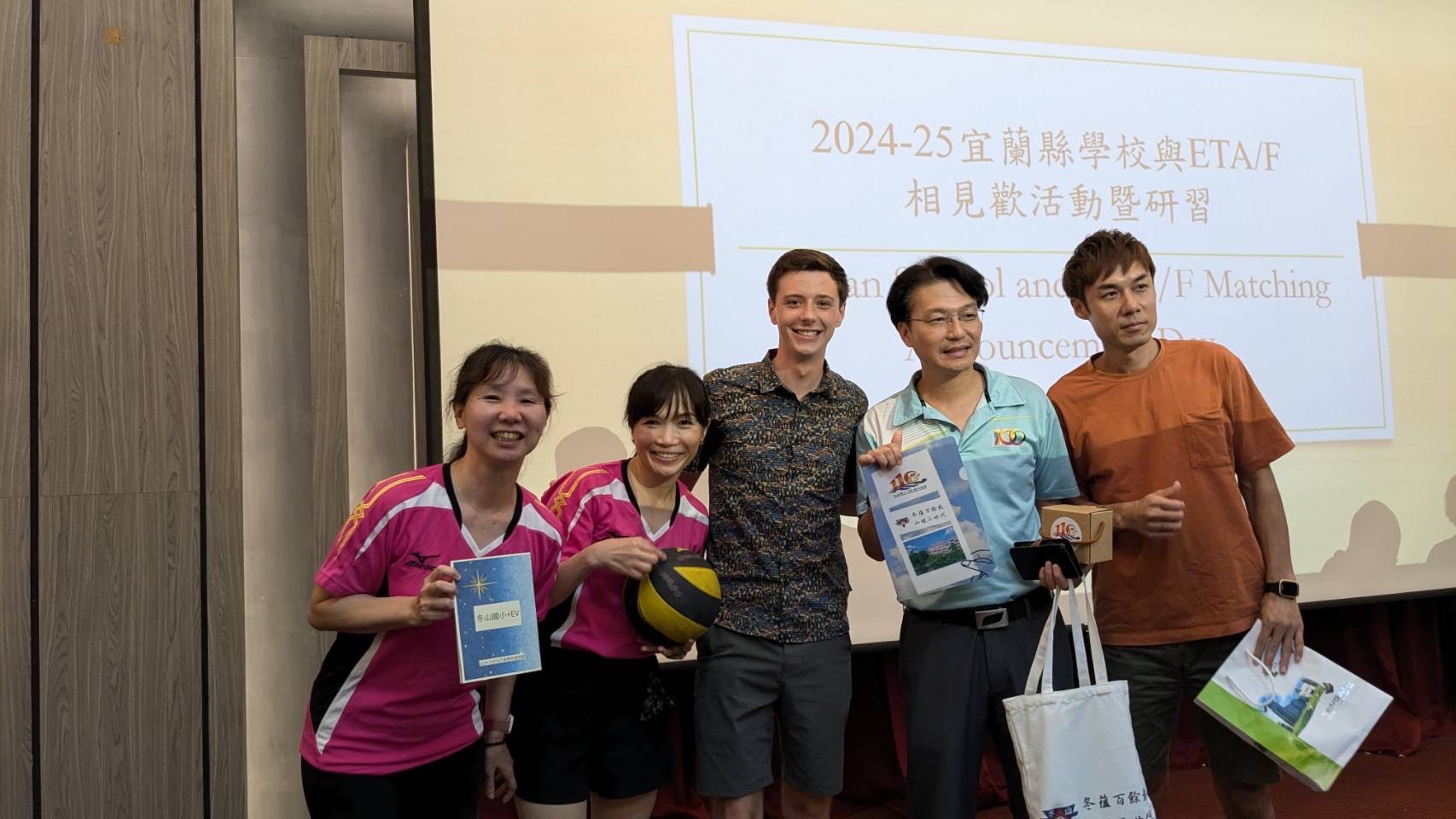
Gongzheng Elementary School, Luodong. School match day! From left to right: Jennifer, 6th grade co-teacher; Tina, 5th grade co-teacher; me haha; Dongshan Elementary School Principal Lin Hongjie; Dongshan Elementary School Dean of Academics Wang Chenghe.
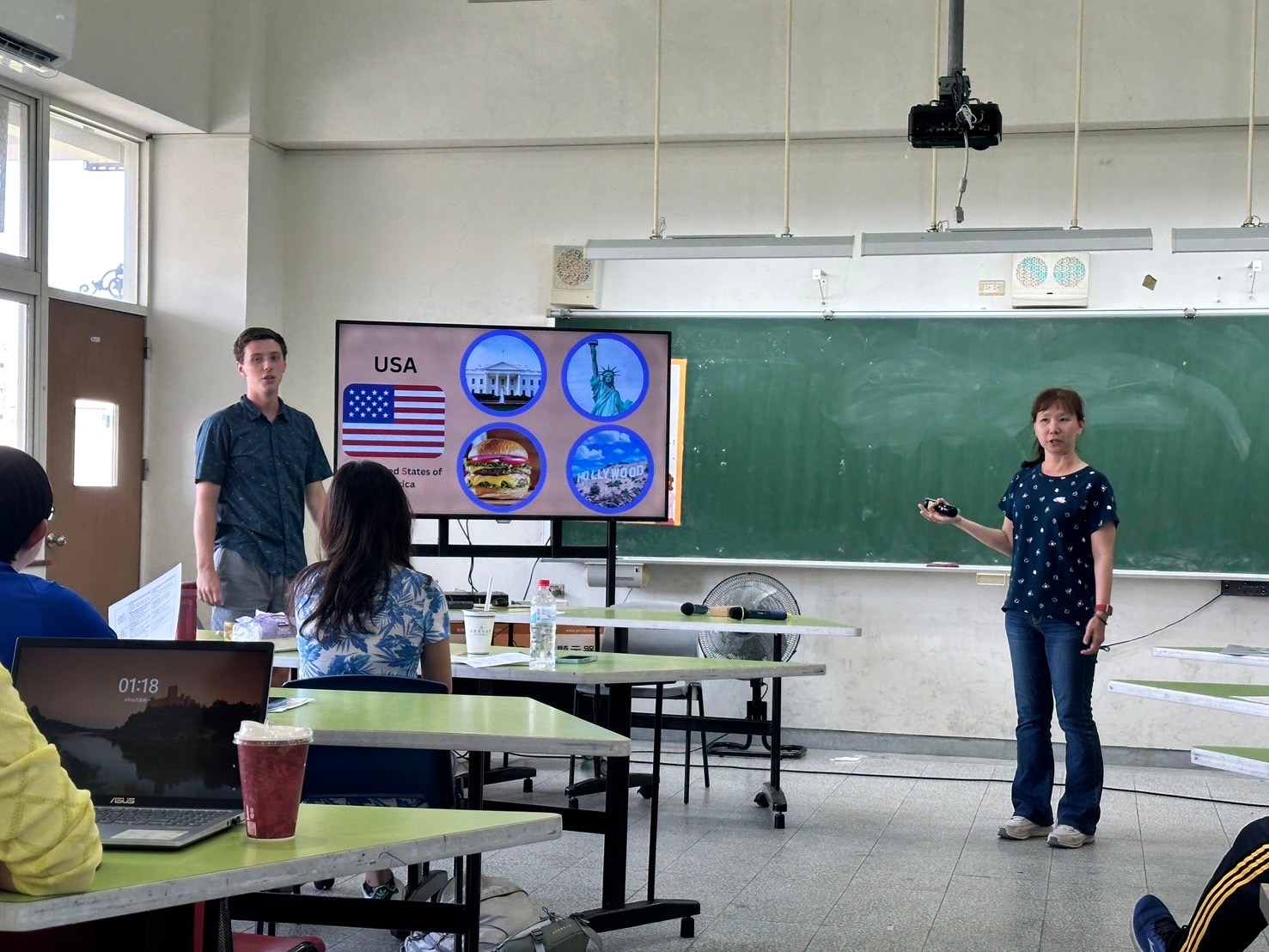
Zhongxing Elementary School, Wujie Township. Micro lessons to close out our summer orientation.
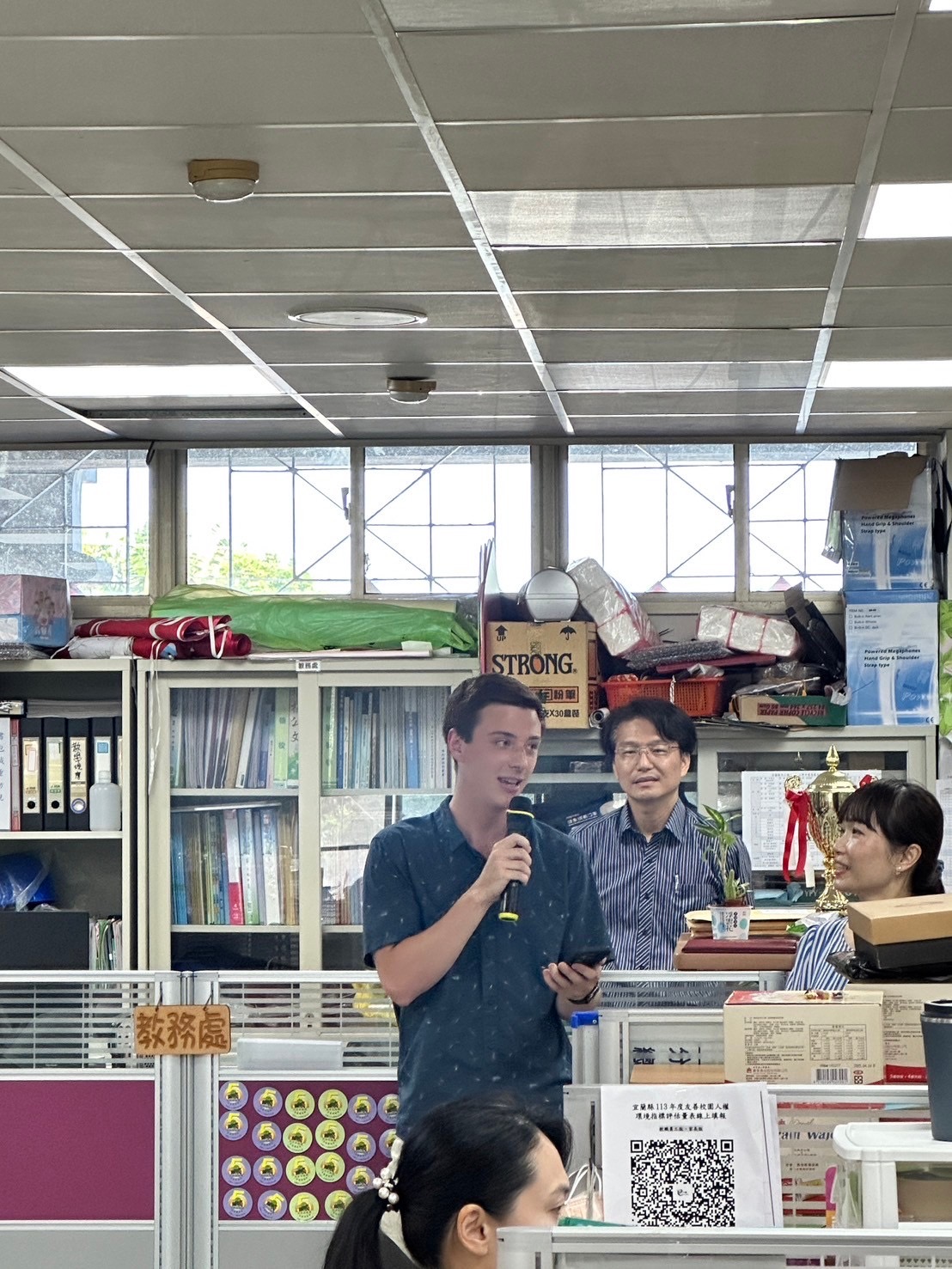
Dongshan Elementary School, Dongshan Township. Introducing myself in English and Chinese on the first day of school at a staff meeting.
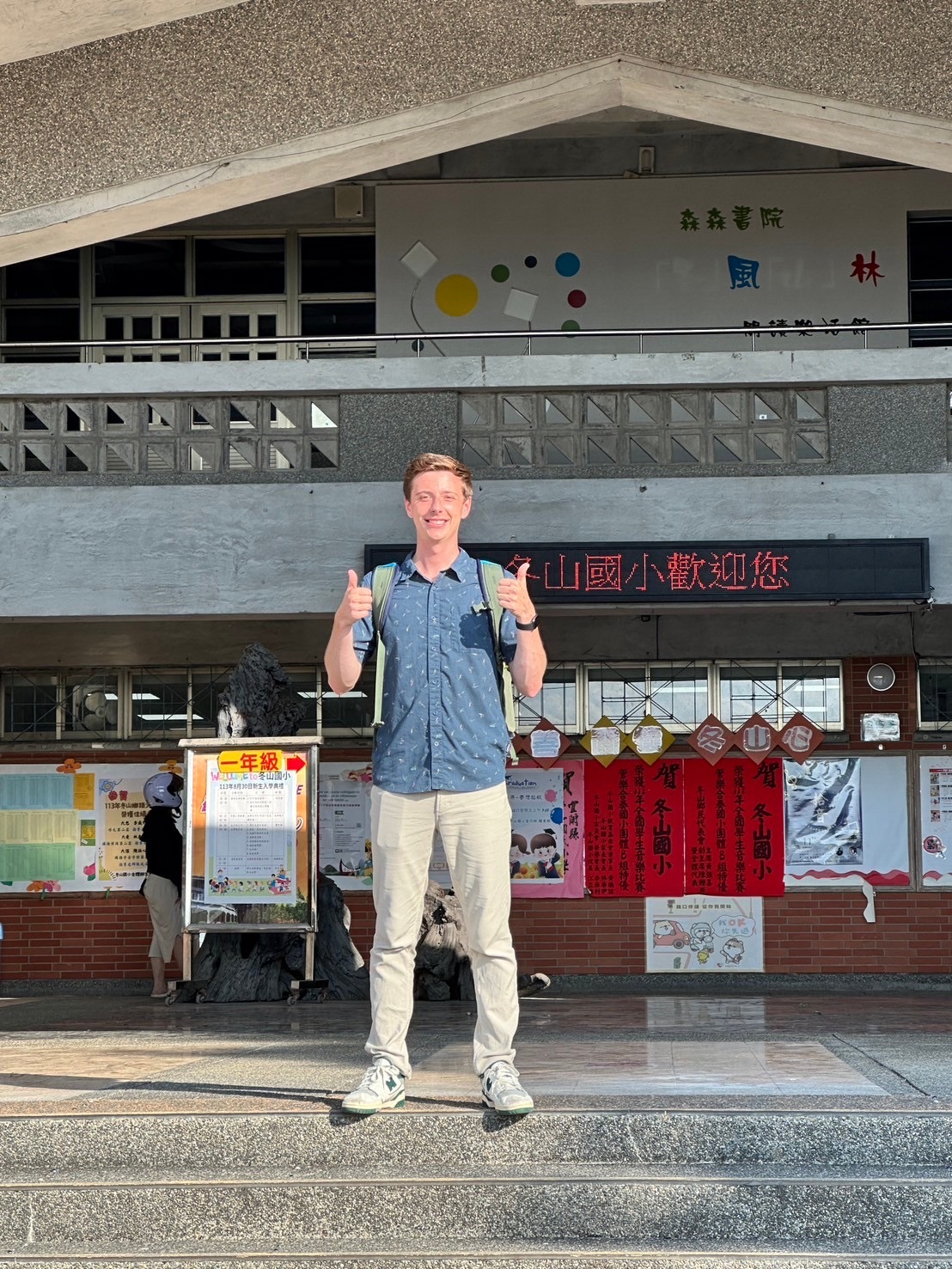
Dongshan Elementary School. First day of school!
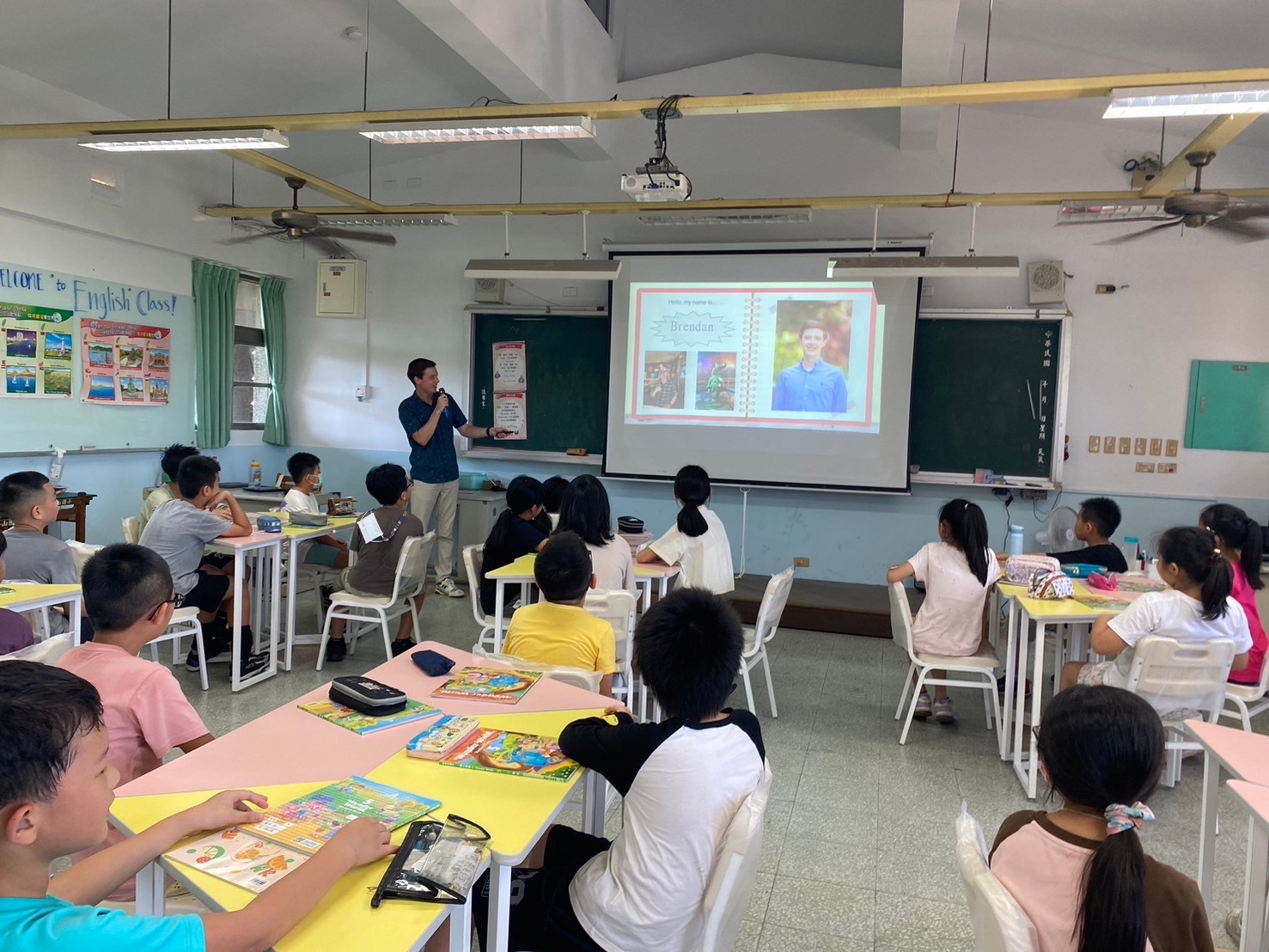
Introducing myself to 24 of my total 93 5th graders.
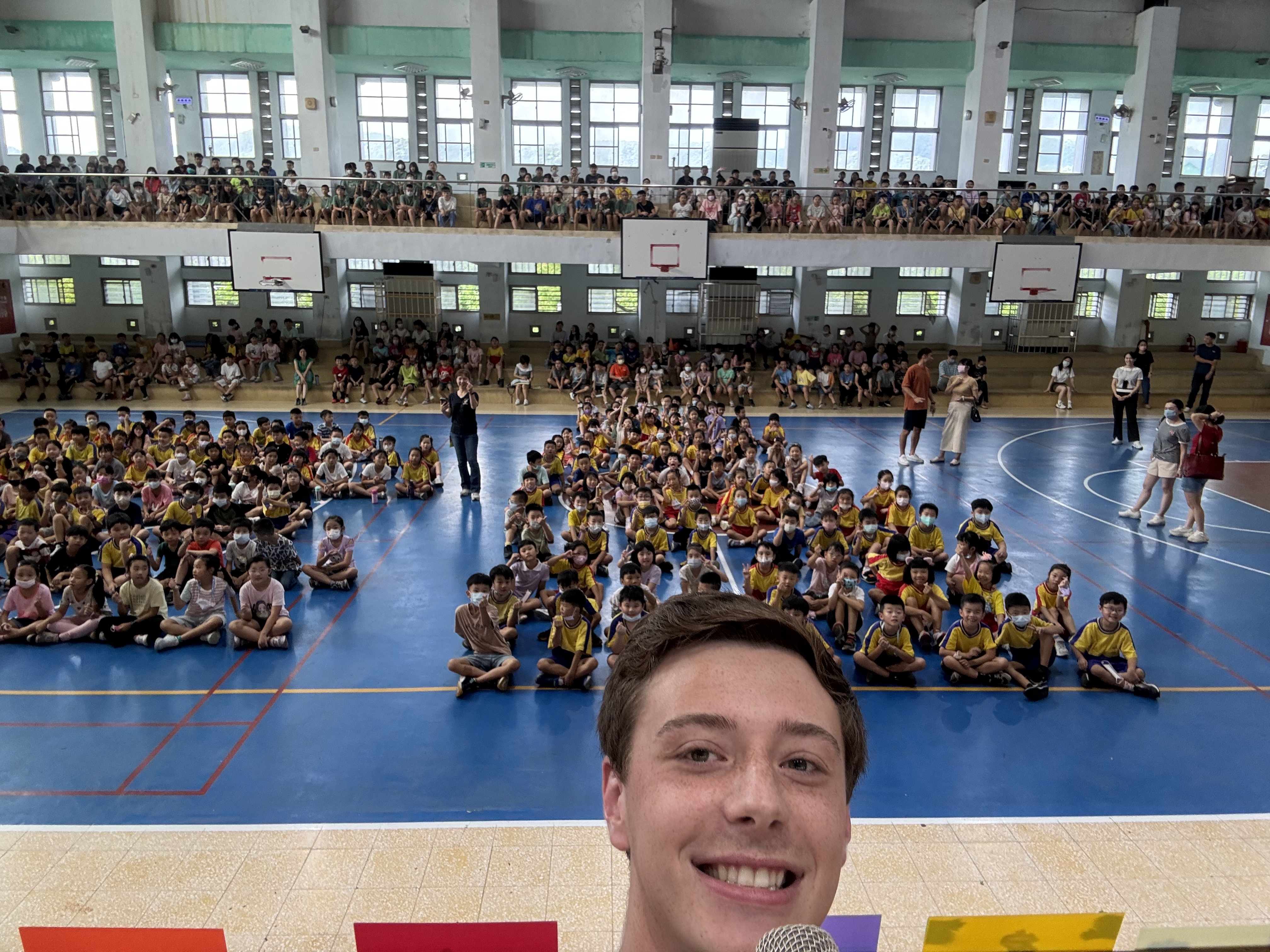
Up on stage introducing myself to the 600+ kids at Dongshan ES, grades 1-6.
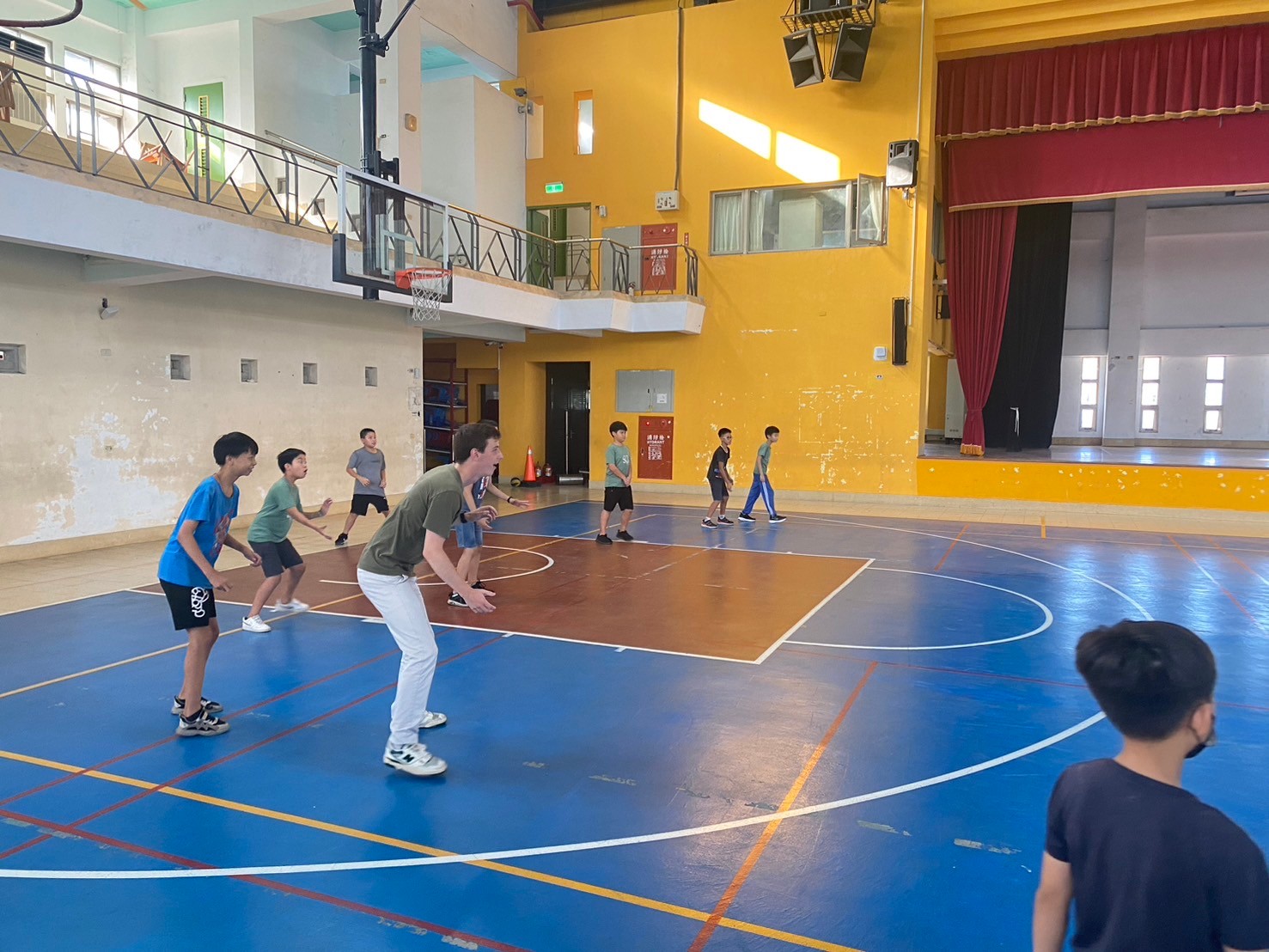
Dongshan has two main extracurriculars: wind band and dodgeball. This was my second day of school and I got invited to the kids’ first practice of the year. 90+ degrees, long pants, lots of smiles, and even more sweat. This combo would be a trend for the year to come, little did I know. Another funny thing: looking back on this now, I remember trying to let some of the other kids on my team throw the ball and no one wanted to which I thought at the time was just them wanting to give me a chance. Now I know that all of these kids behind me are gamers and not on the dodgeball team.
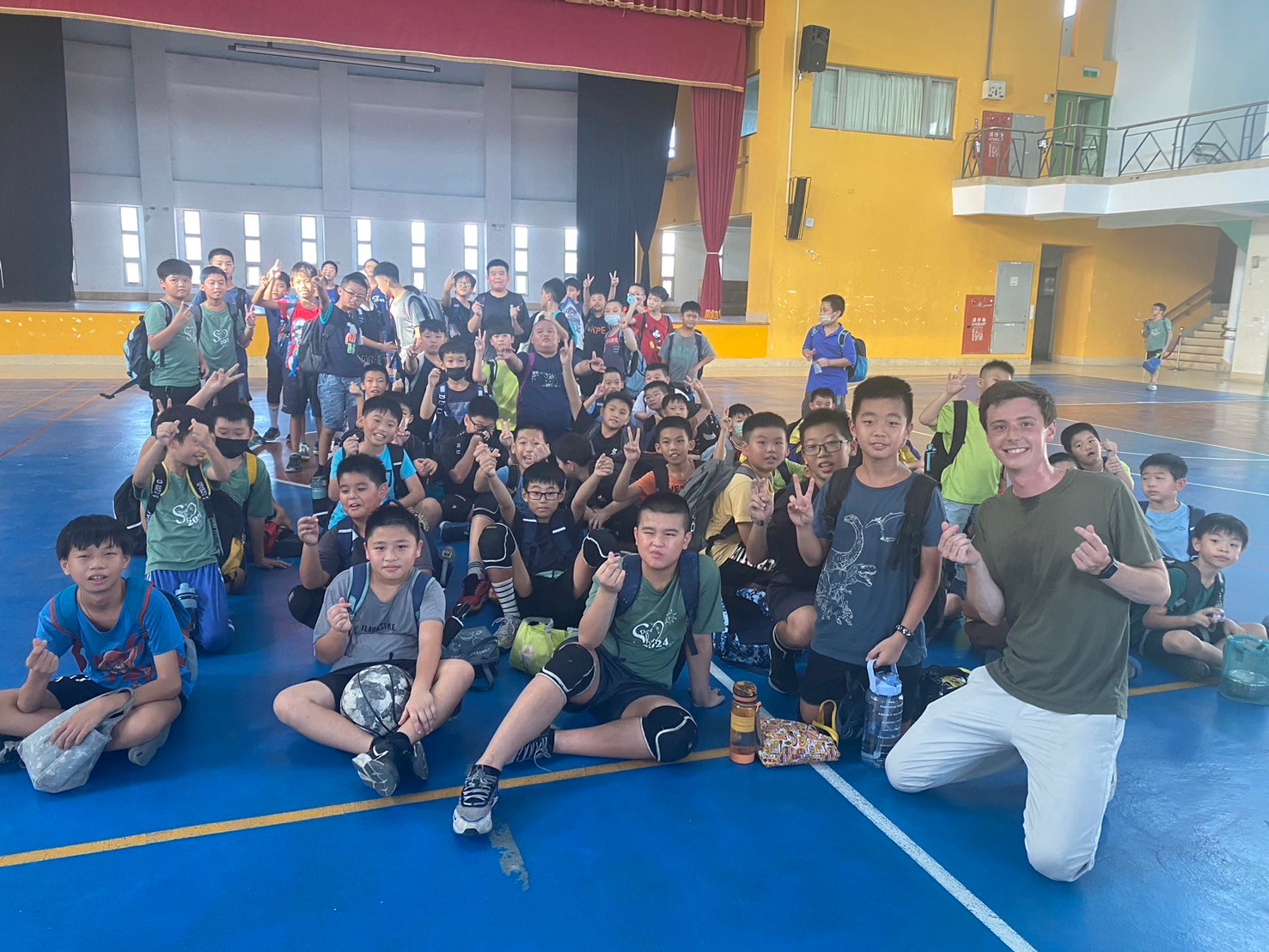
Overwhelming picture at the time, but so many familiar faces now.
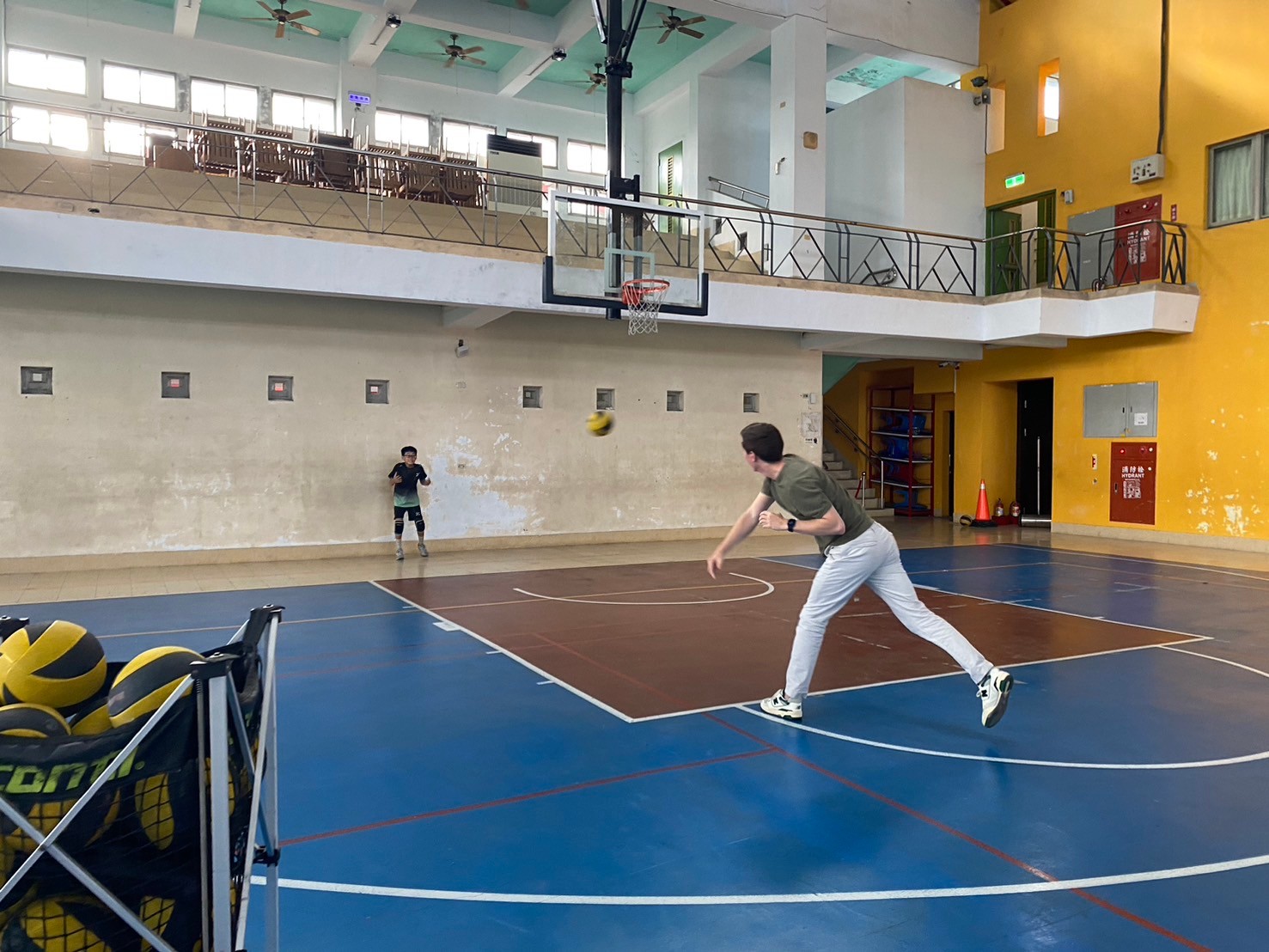
1v1. I got schooled on the other end of this.
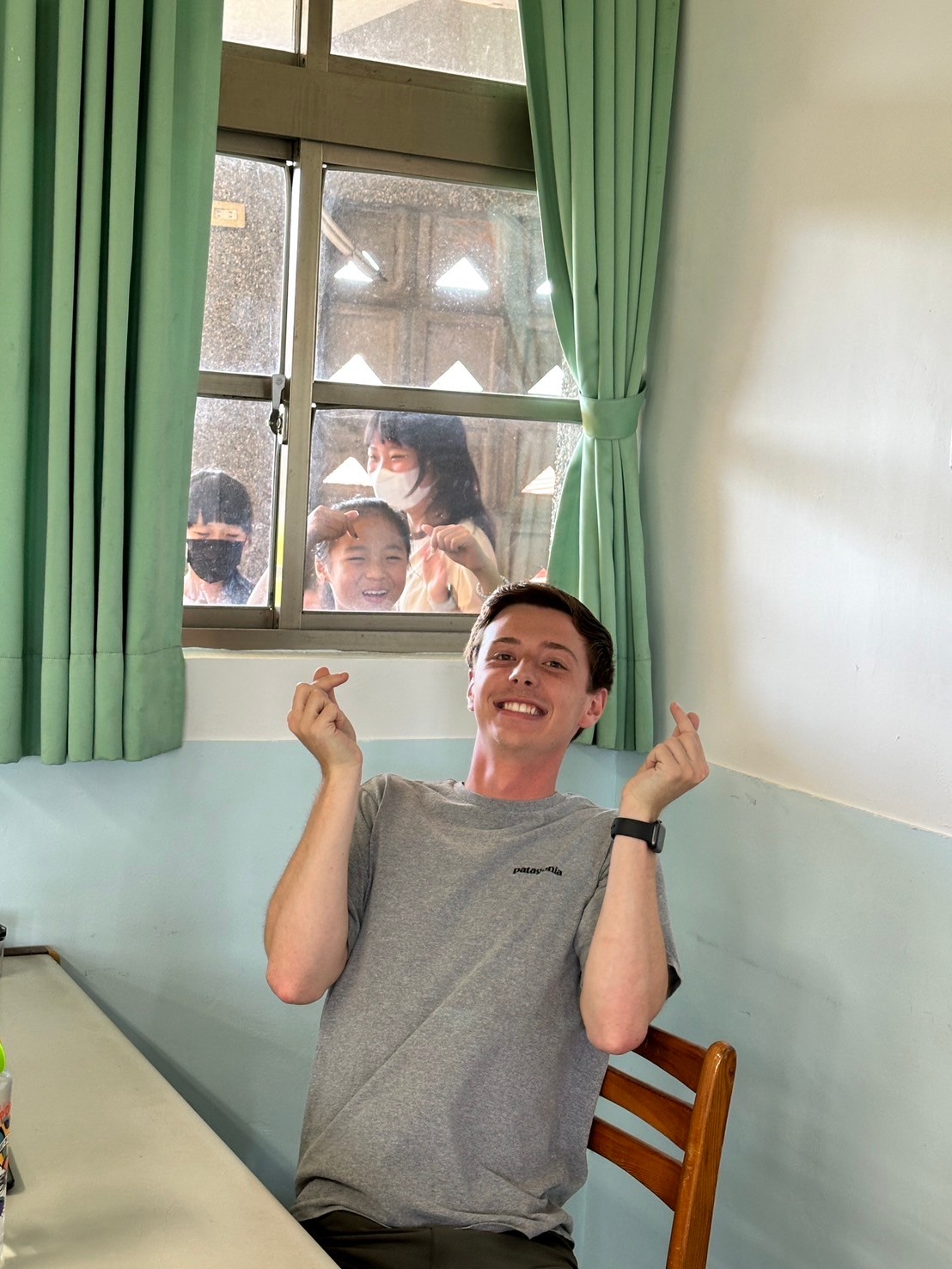
My fan club.
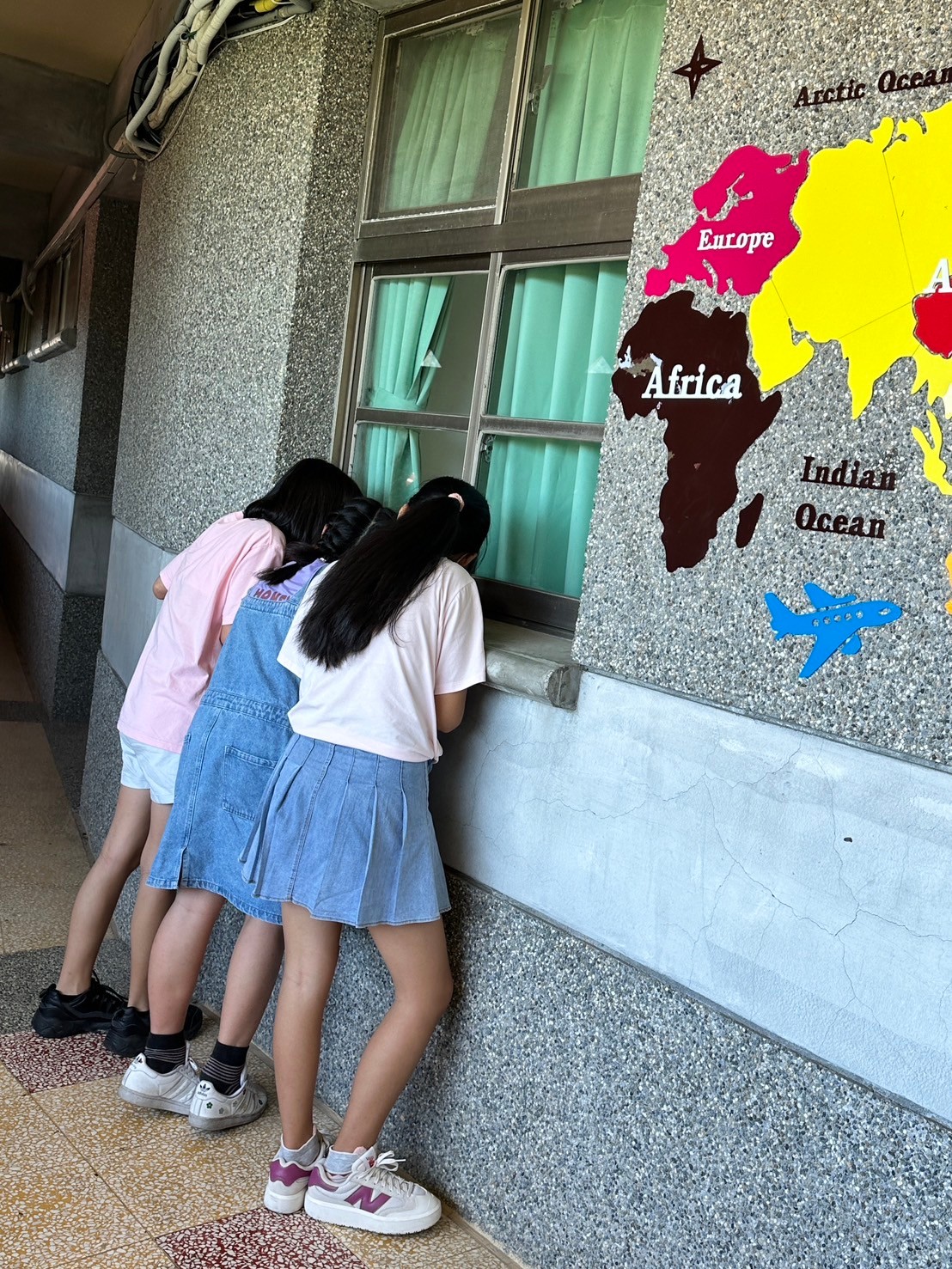
Other side of my window.

Soy Milk Breakfast, Dongshan Township. Some typical Taiwanese breakfast at a shop across the street from school.
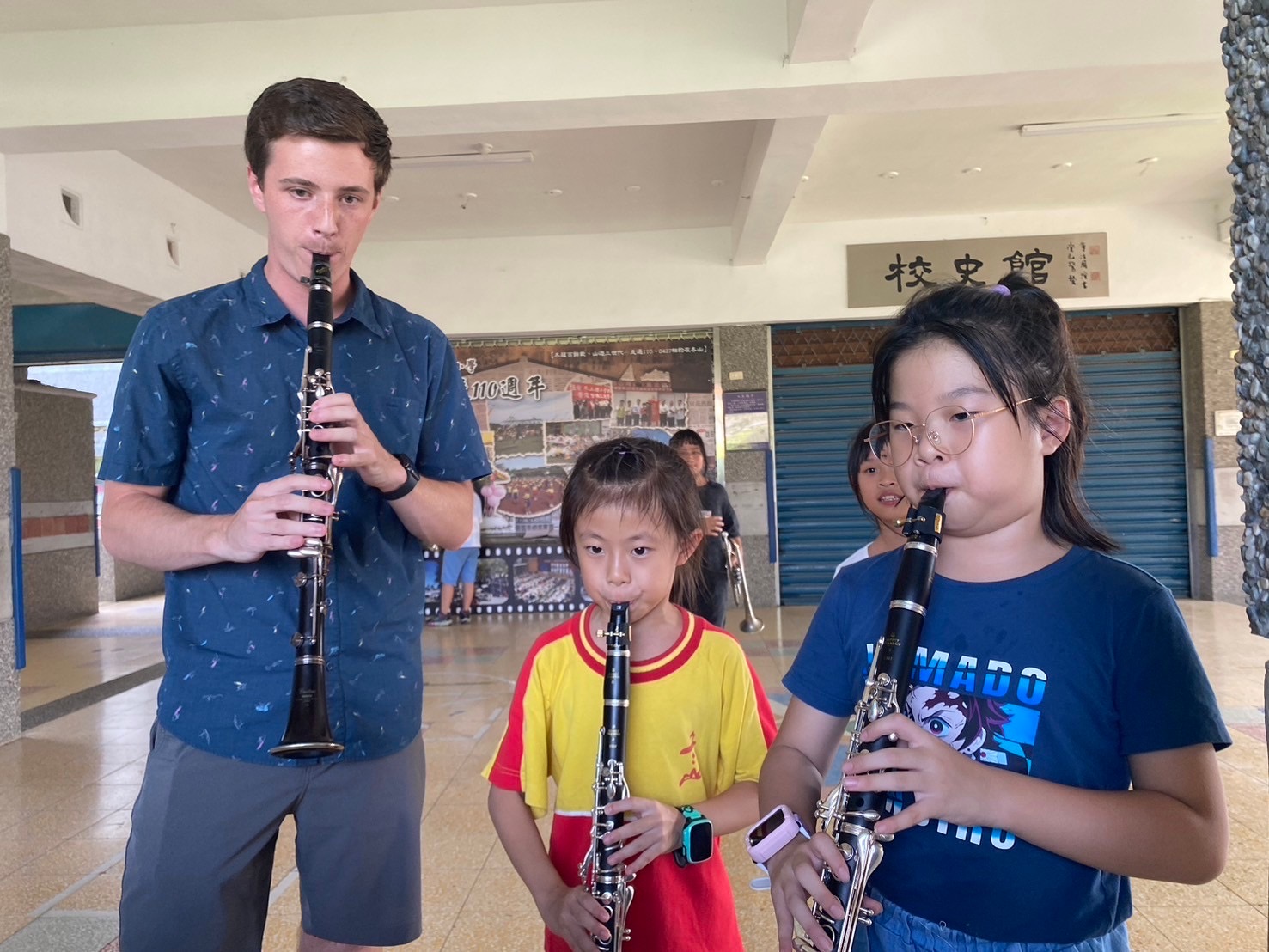
Music time with the kids. They are all astoundingly talented and practice multiple times a day, everyday.
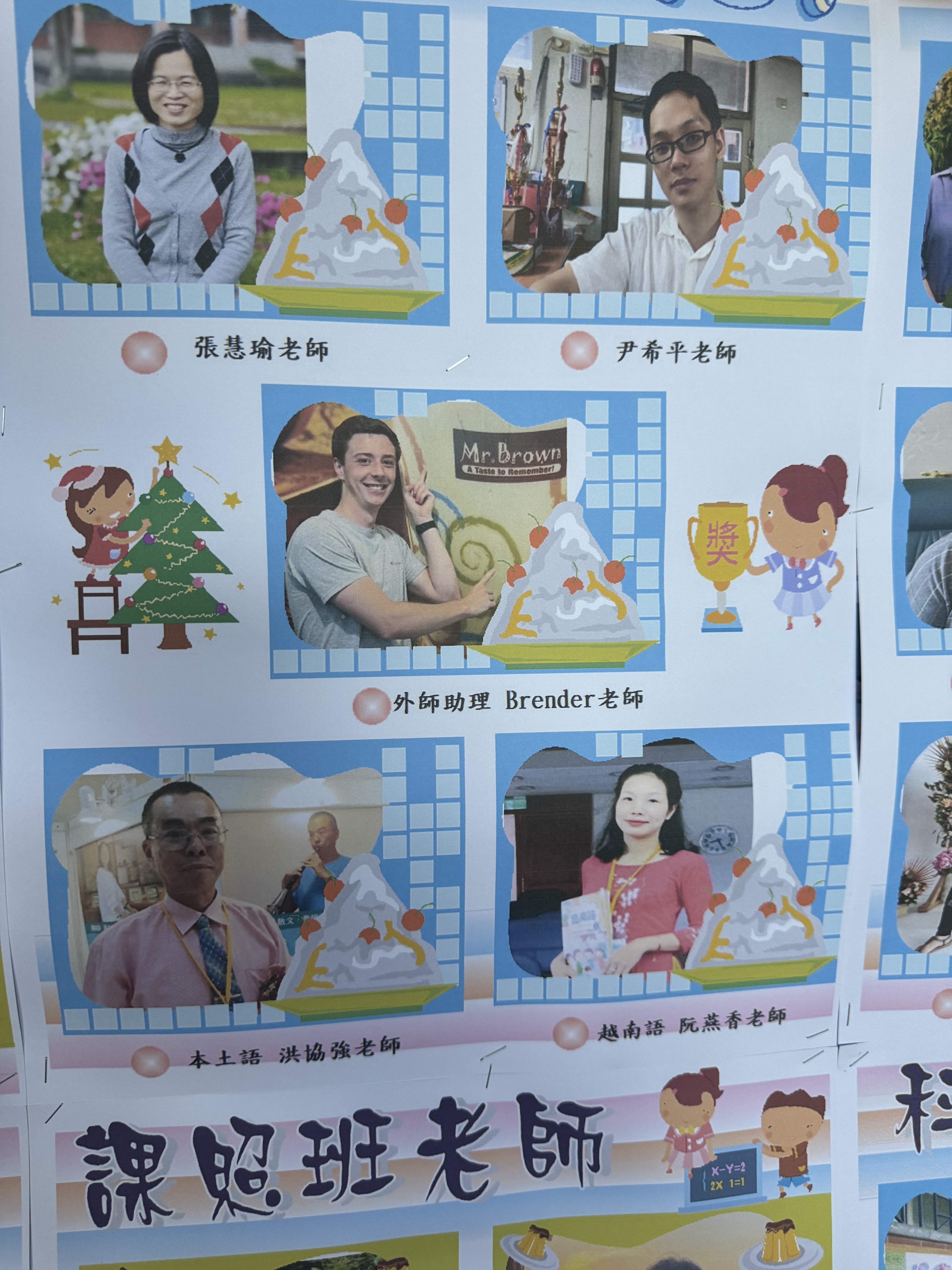
Teacher Brender.
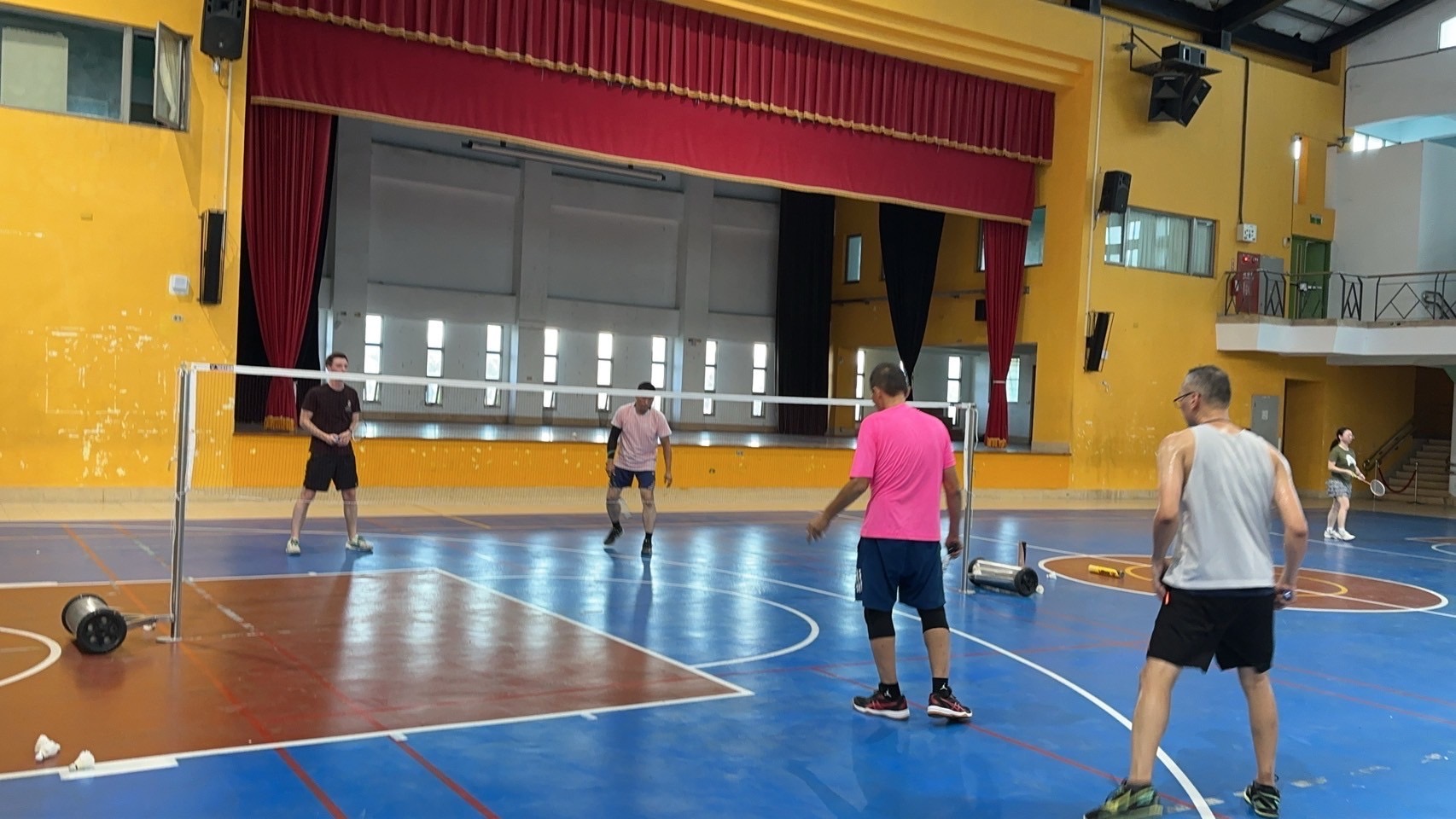
After school badminton with teachers and parents. There were about five gym teachers at Dongshan and they were all amazing at badminton, so I appreciated them catching me up to speed even through some pretty difficult language exchange.
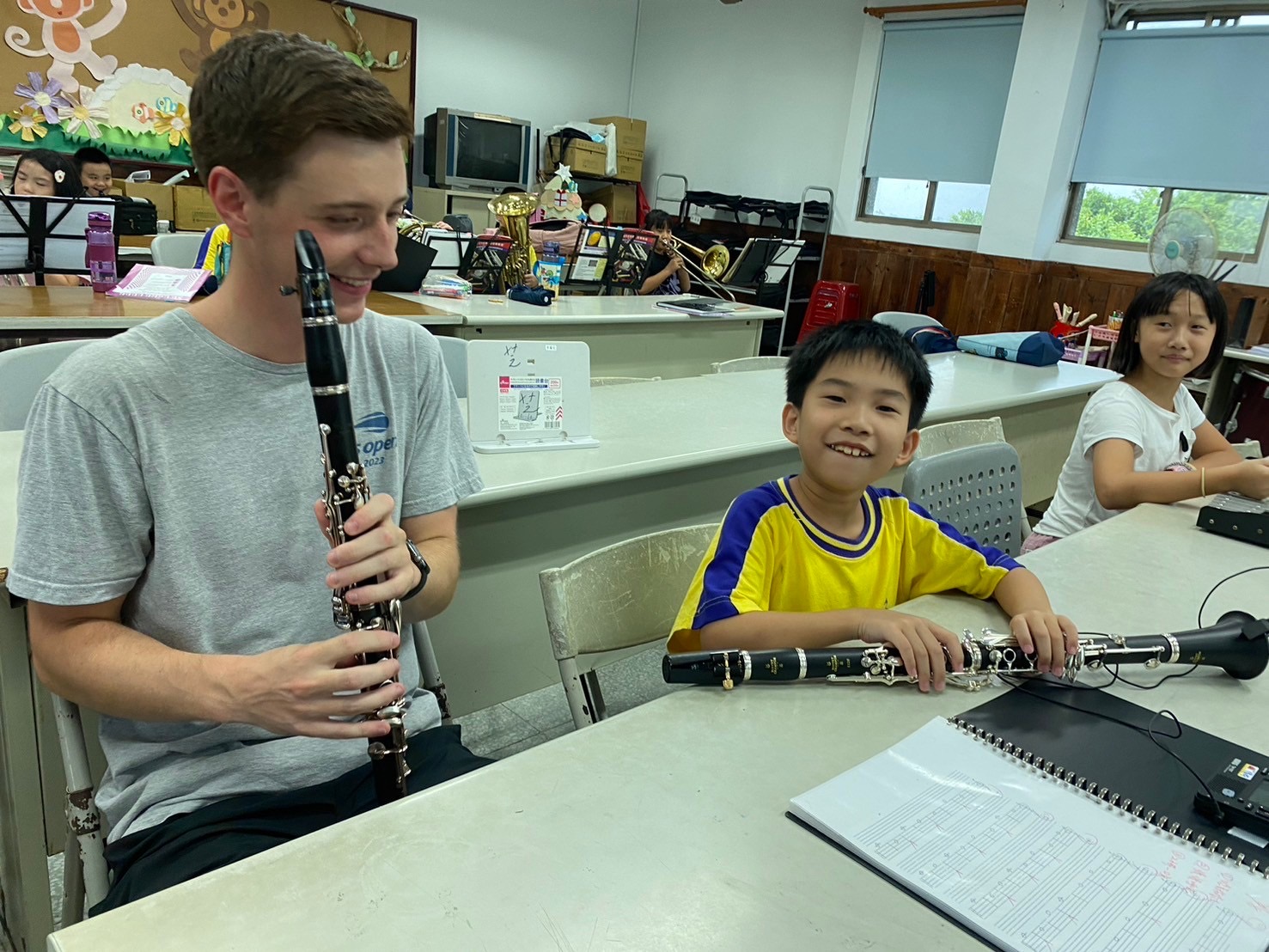
More music time with 3rd grade. Adorable!
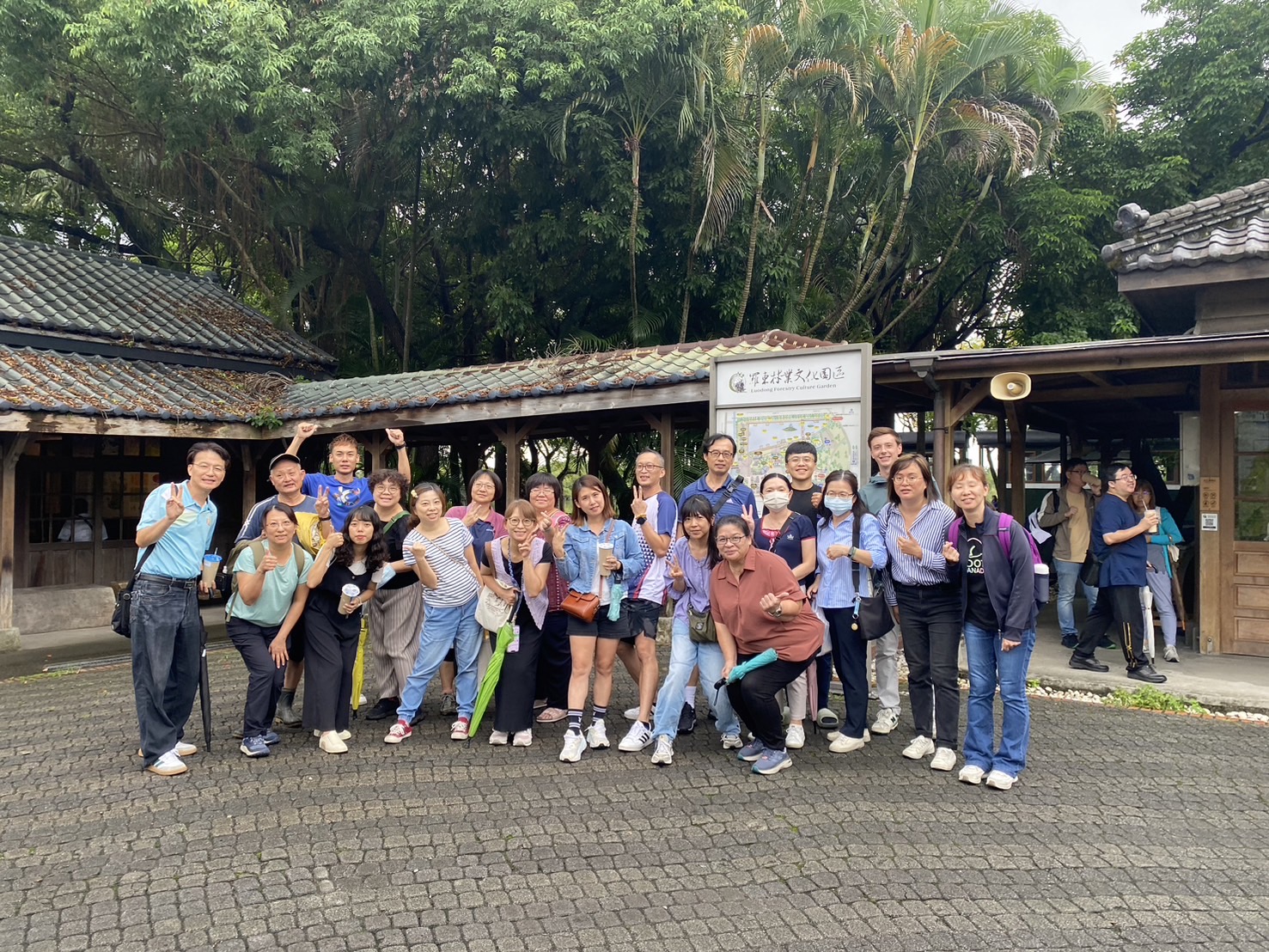
Luodong Forestry Park. Offsite with some staff.
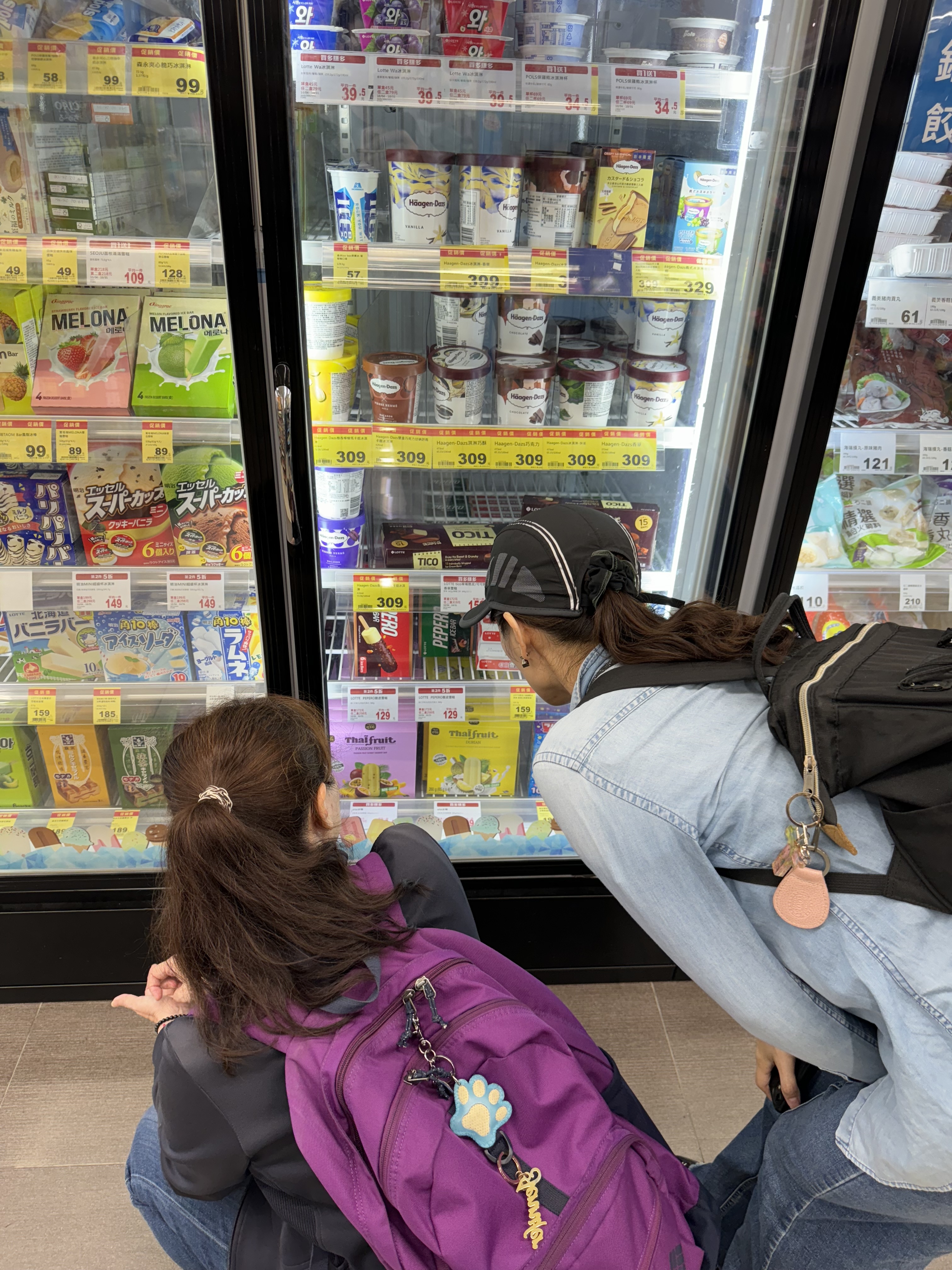
Tina and Jennifer, my LETs, picking out a spread of snacks to share at a grocery store.

Me and one of the gym teachers, Wenxiang (or more affectionately known around the office as bro), after some badminton.
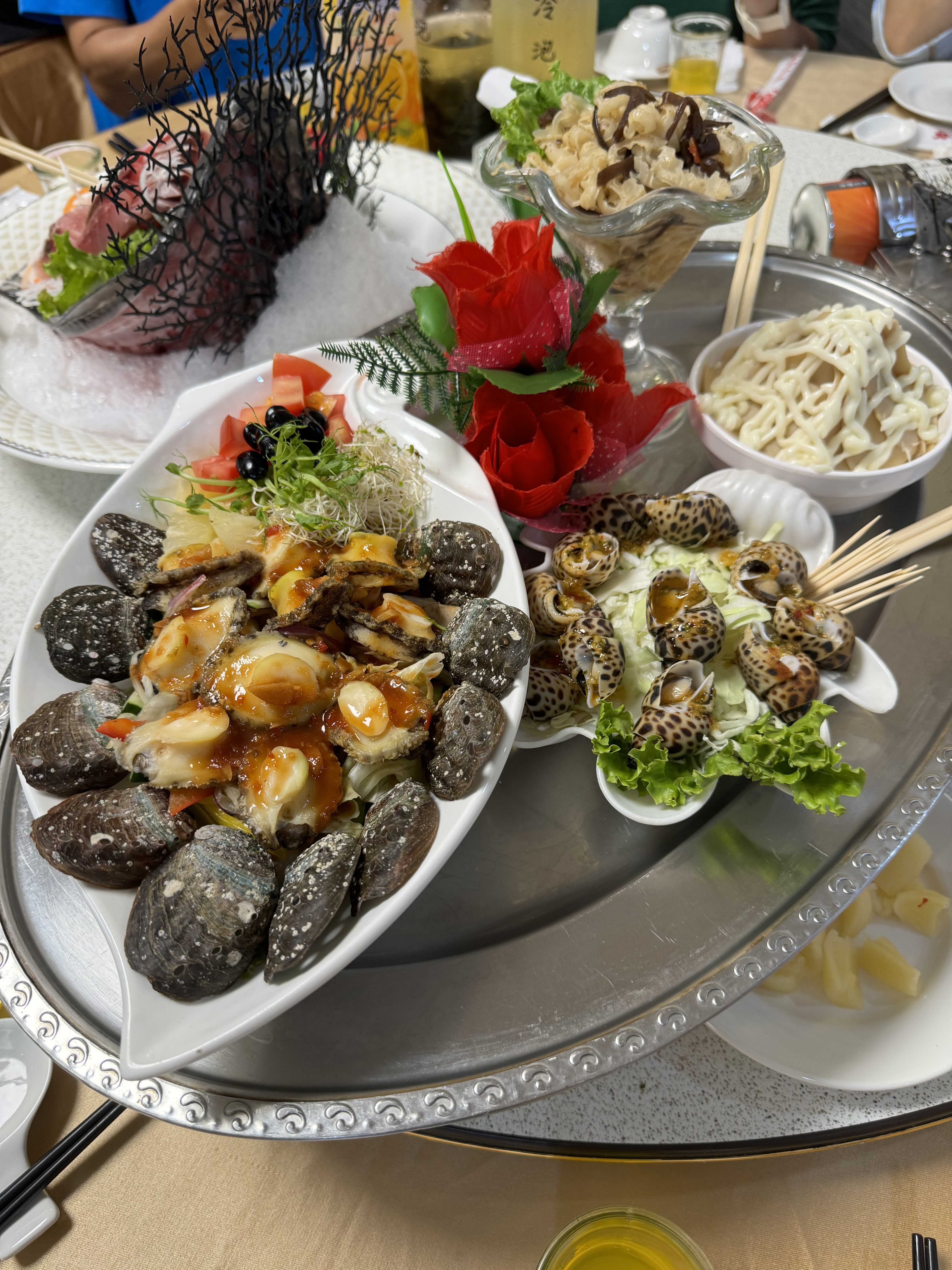
One of many family-style staff dinners to come. A bunch of dishes brought out in succession and passed around on a big tabletop lazy susan. Pictured: (left) abalone, (right) sea snails, the rest I can’t remember.
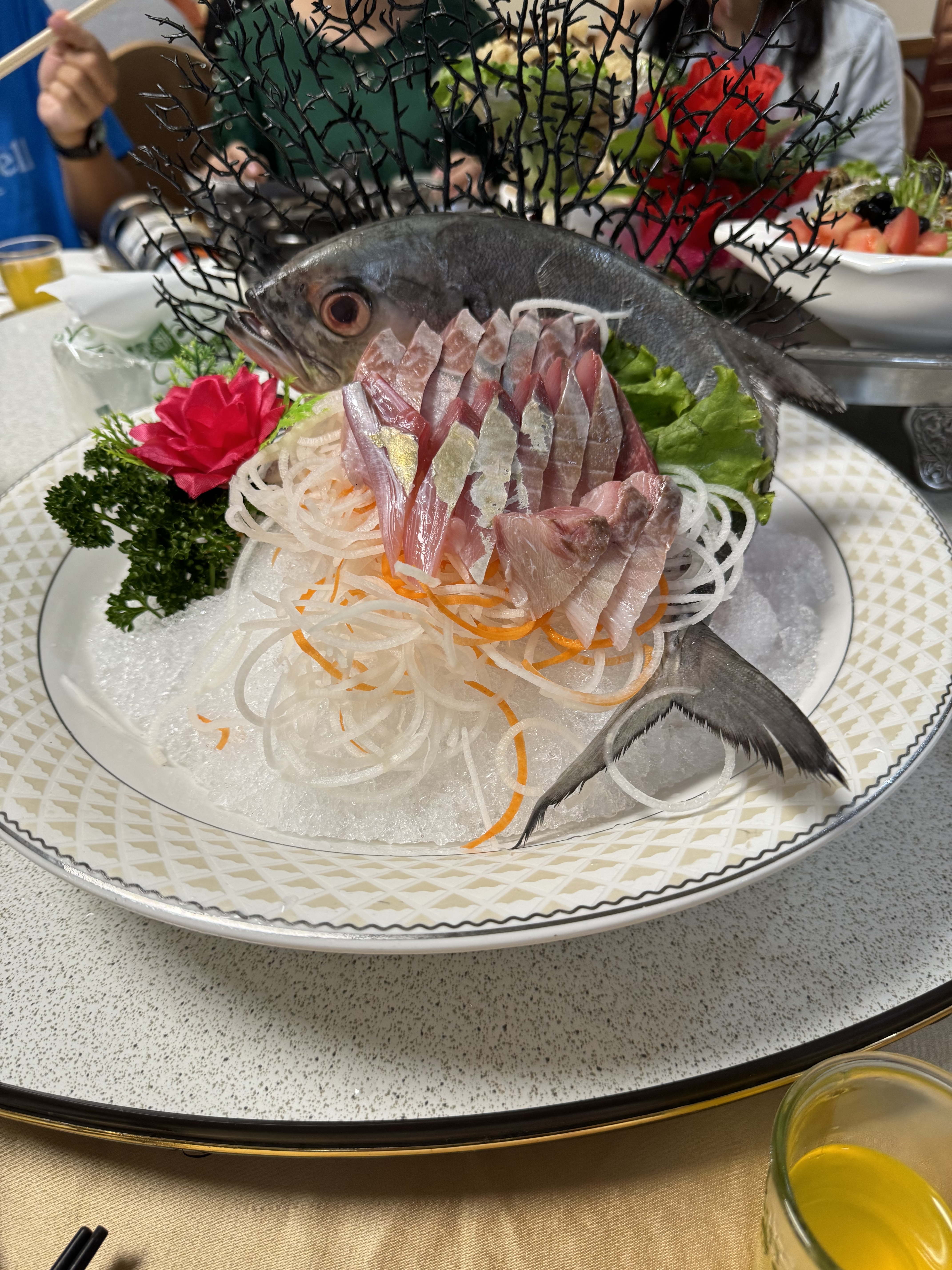
Sashimi!
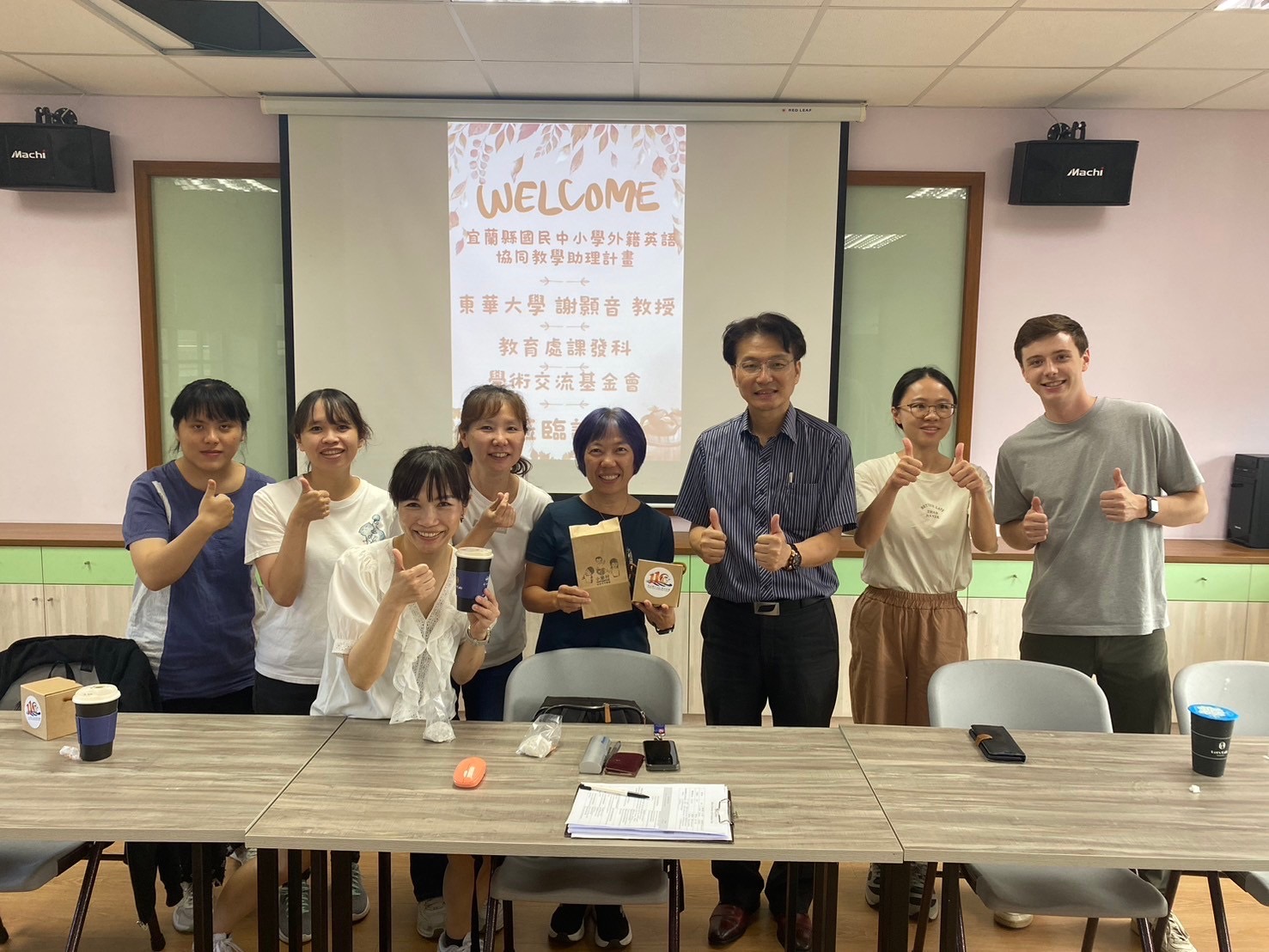
Part of the English co-teaching experience is semesterly observations by education professors from local universities. Jennifer and I had ours first semester, and Tina’s was second semester.
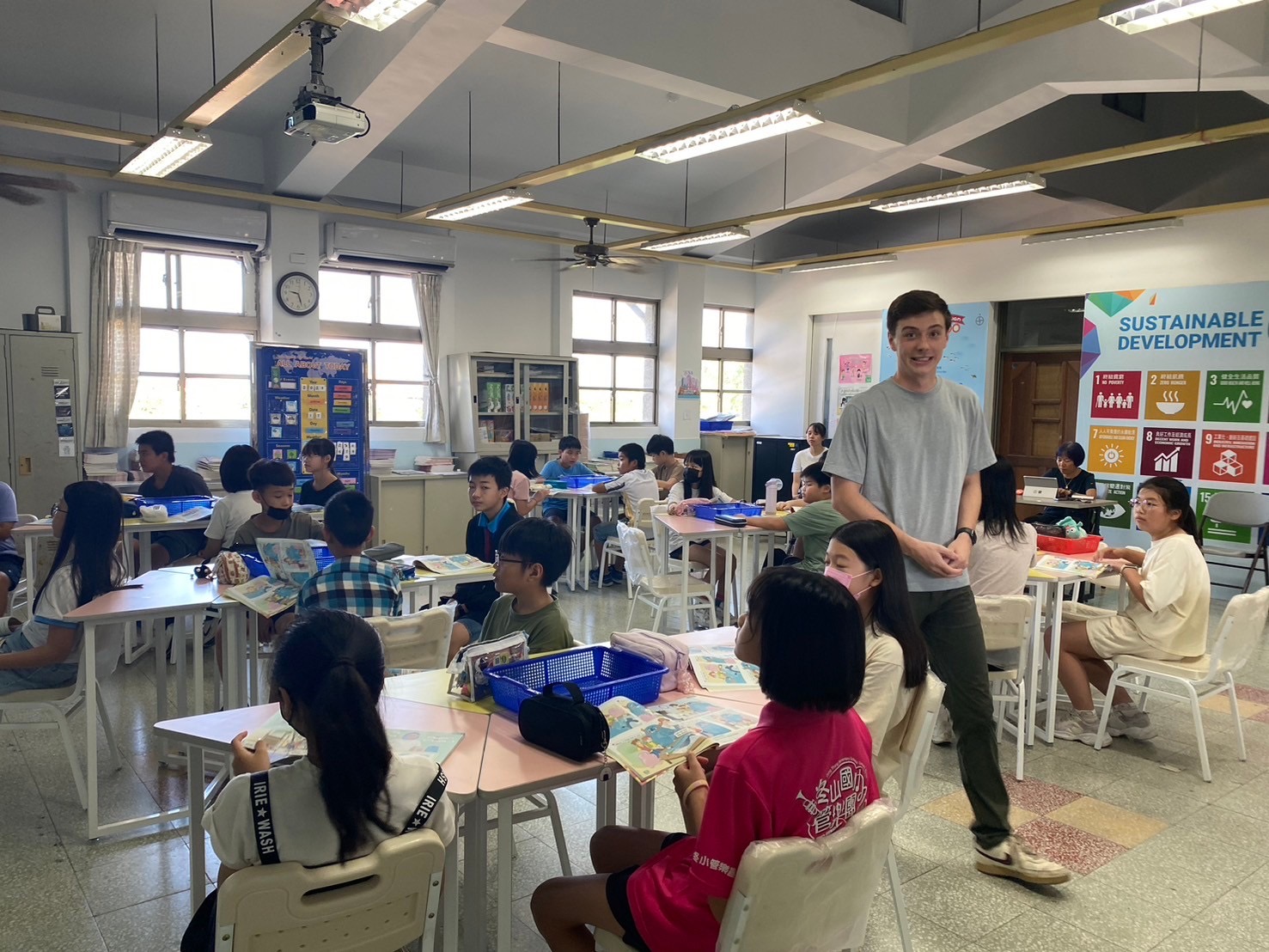
Action shot from observation day. Kids were particularly well behaved that day.

More staff dinner with some silly gym teachers.
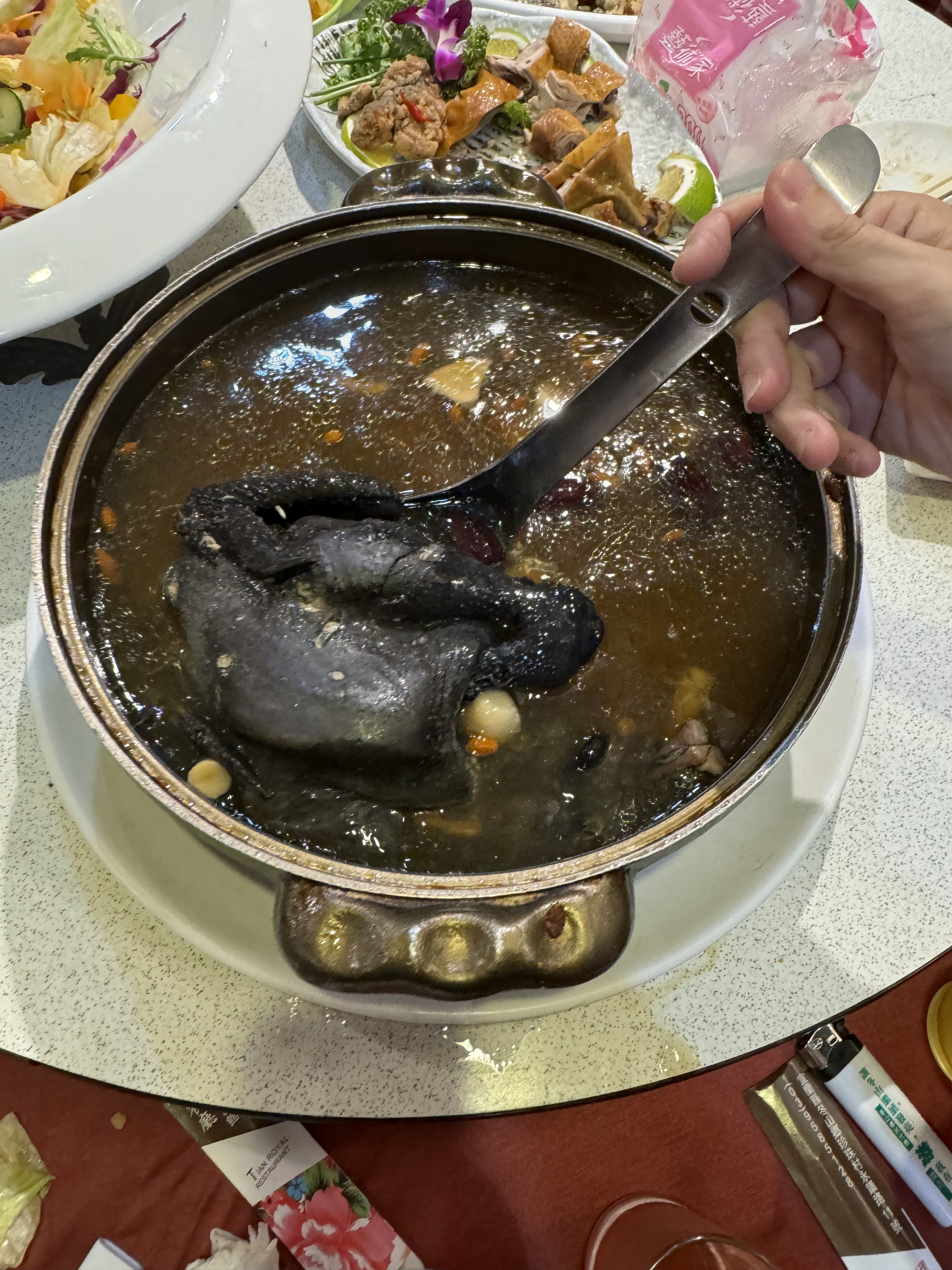
Black chicken soup. I learned to be brave this year.
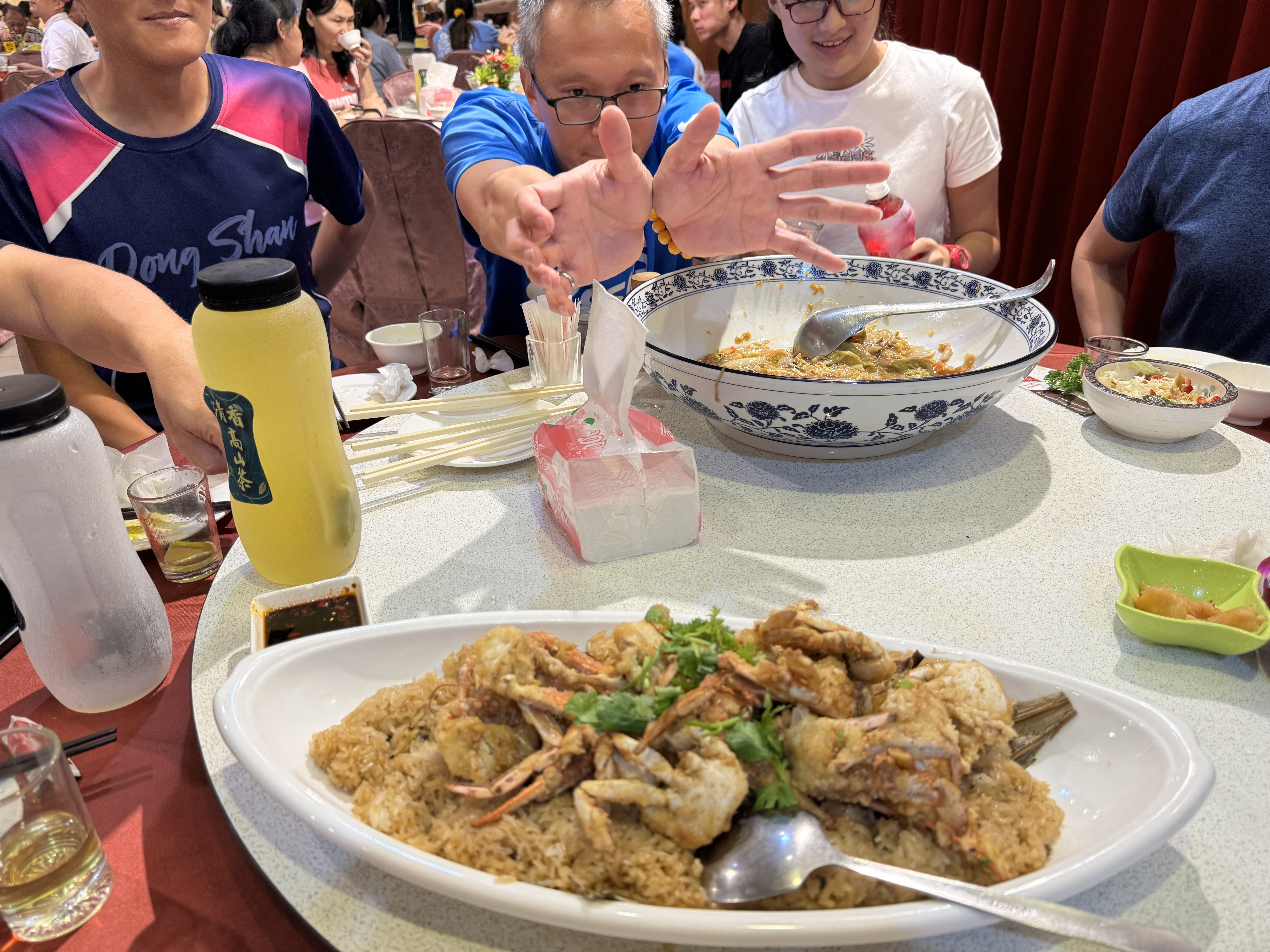
Spider crab and a helpful demonstration.

Dongshan River Park, Wujie Township. Post-11k awards pic! My school wanted me to run with them at this race, but I got to Taiwan after the sign-up deadline had passed, so I instead ran with another teacher’s bib. Trophies were given out to the top five racers in each age group. Of course, the teacher I was impersonating was at least 55 years old, so, while I may have stolen a trophy from an arguably more deserving elderly race participant, technically, after looking at the race data, I would have still gotten a trophy in the 18-24 group. So. That’s how I sleep at night.

Dongshan River Park, Wujie Township. Me, Tina, and Jennifer after the race!
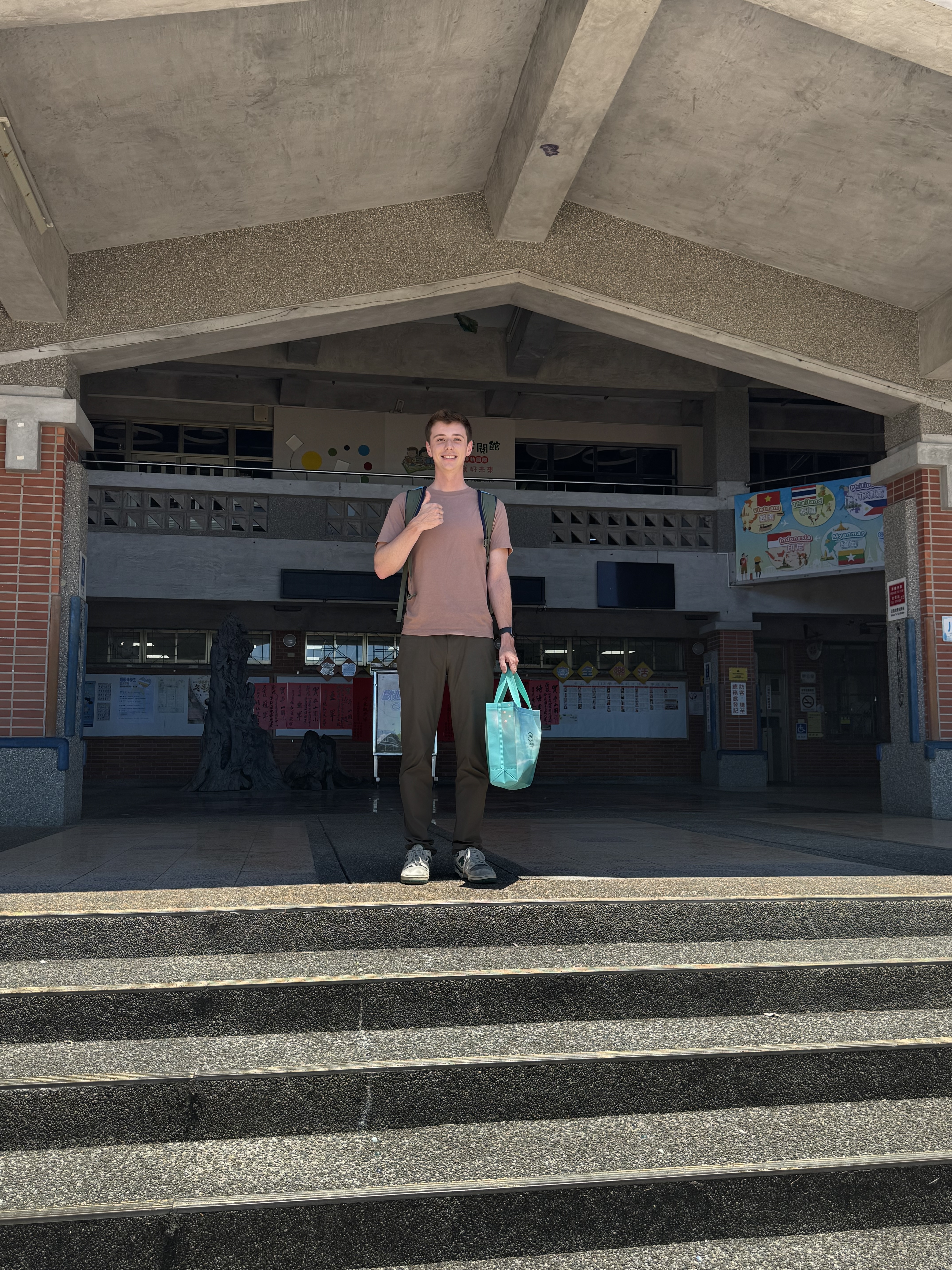
Last day of school.

I'll miss these boys so much.
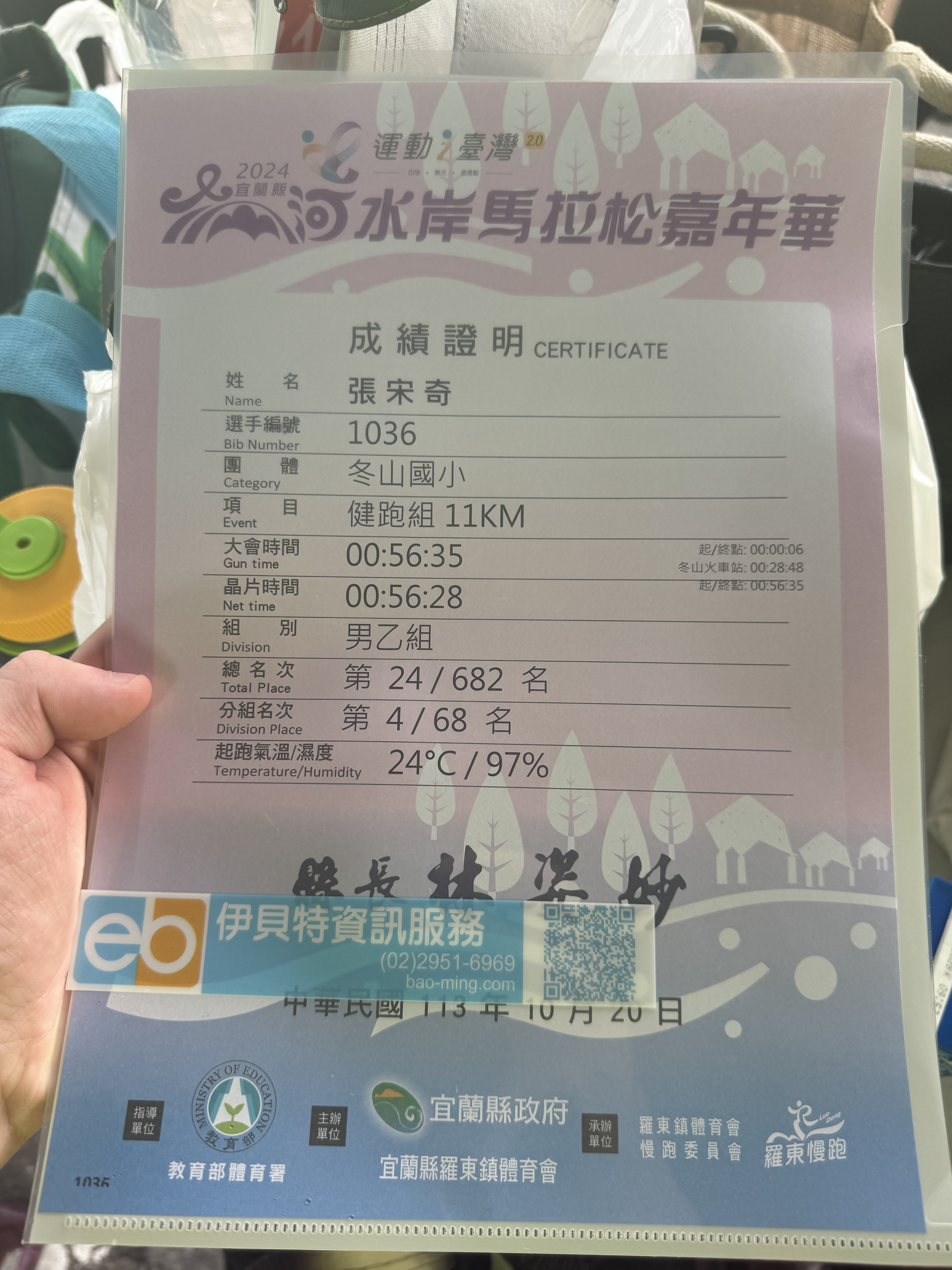
I don’t really know what 97% humidity means but if 100% means all water no air then I believe it because while my mouth was never dry, I did think I was gonna drown after 45 minutes of swimming through this nasty heavy air.
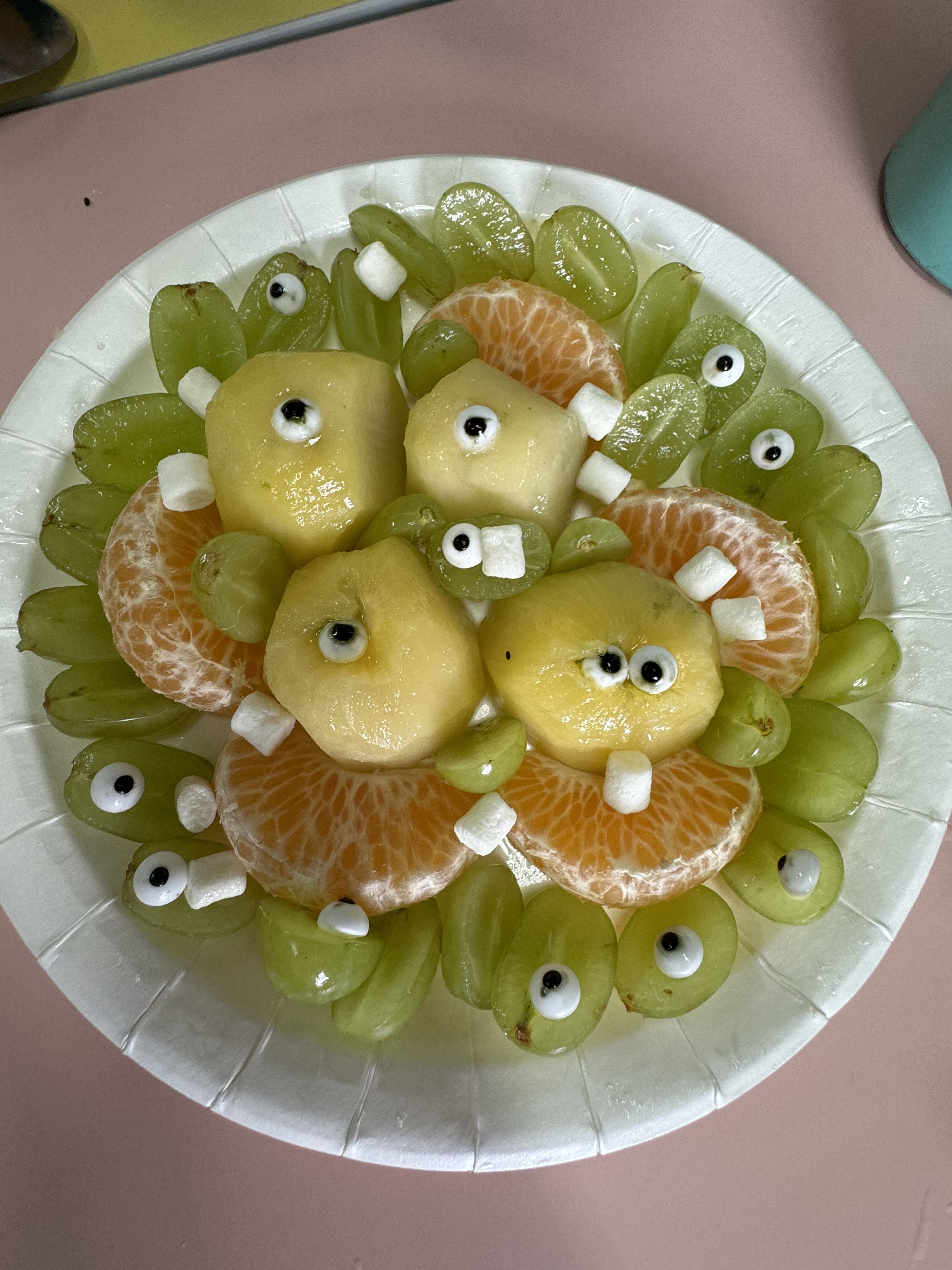
Halloween fruit platters with 5th graders to match up with our food ordering and fruit unit.
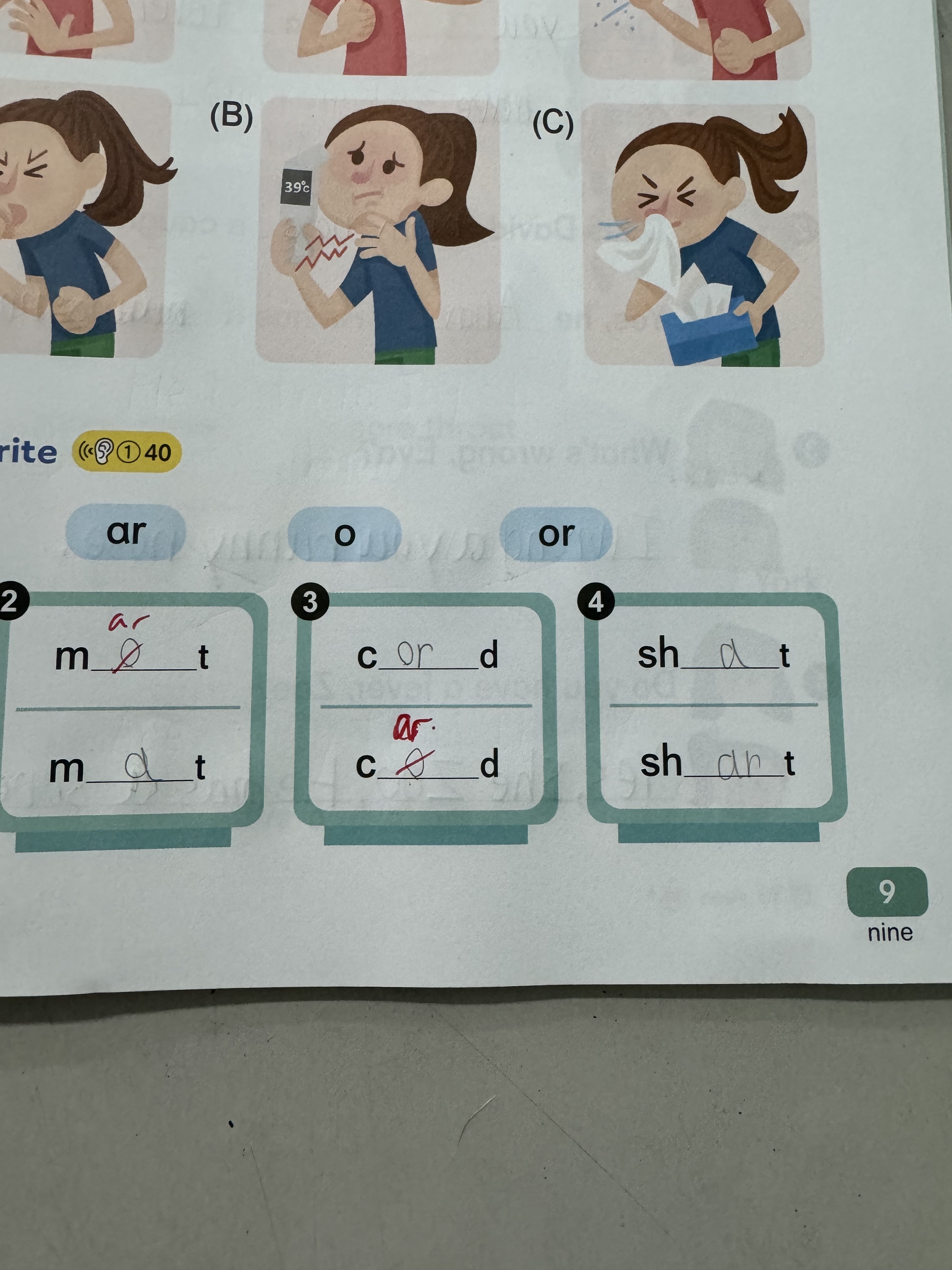
The joys of teaching a foreign language. Question 4 honestly seems like a set up.
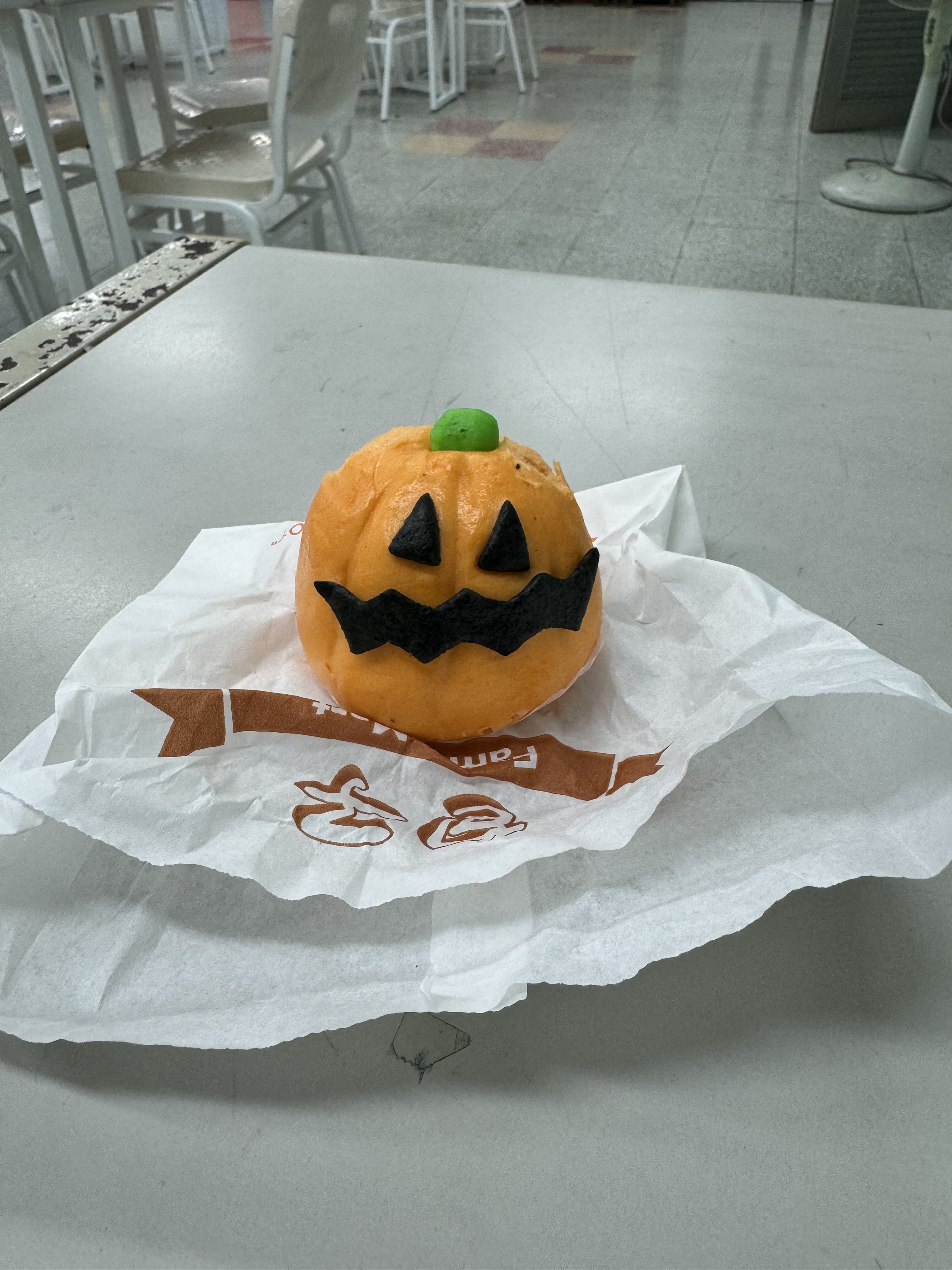
Happy Halloween!
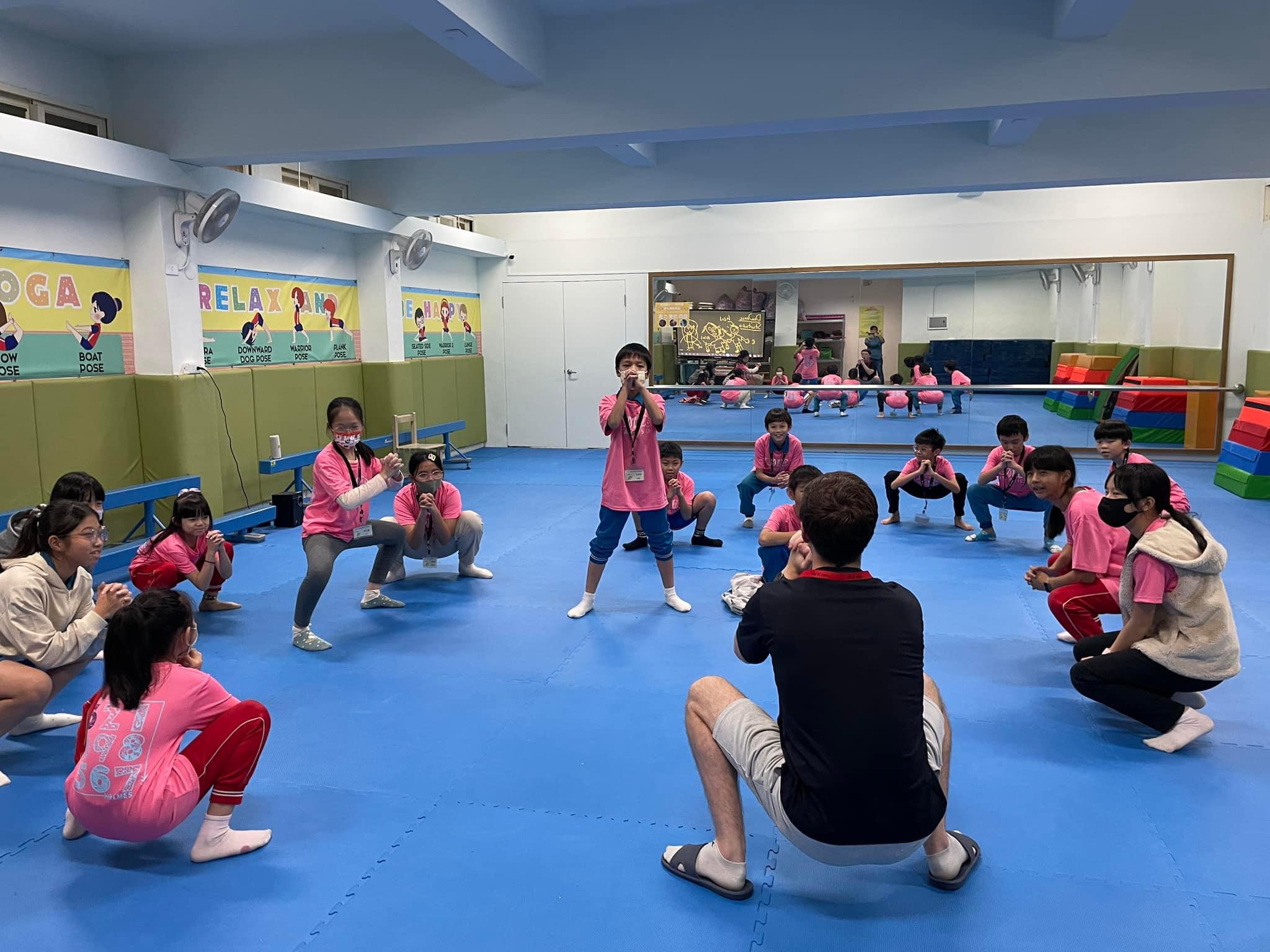
Xinsheng Elementary School, Yilan City. Squats to warm up for the macarena.
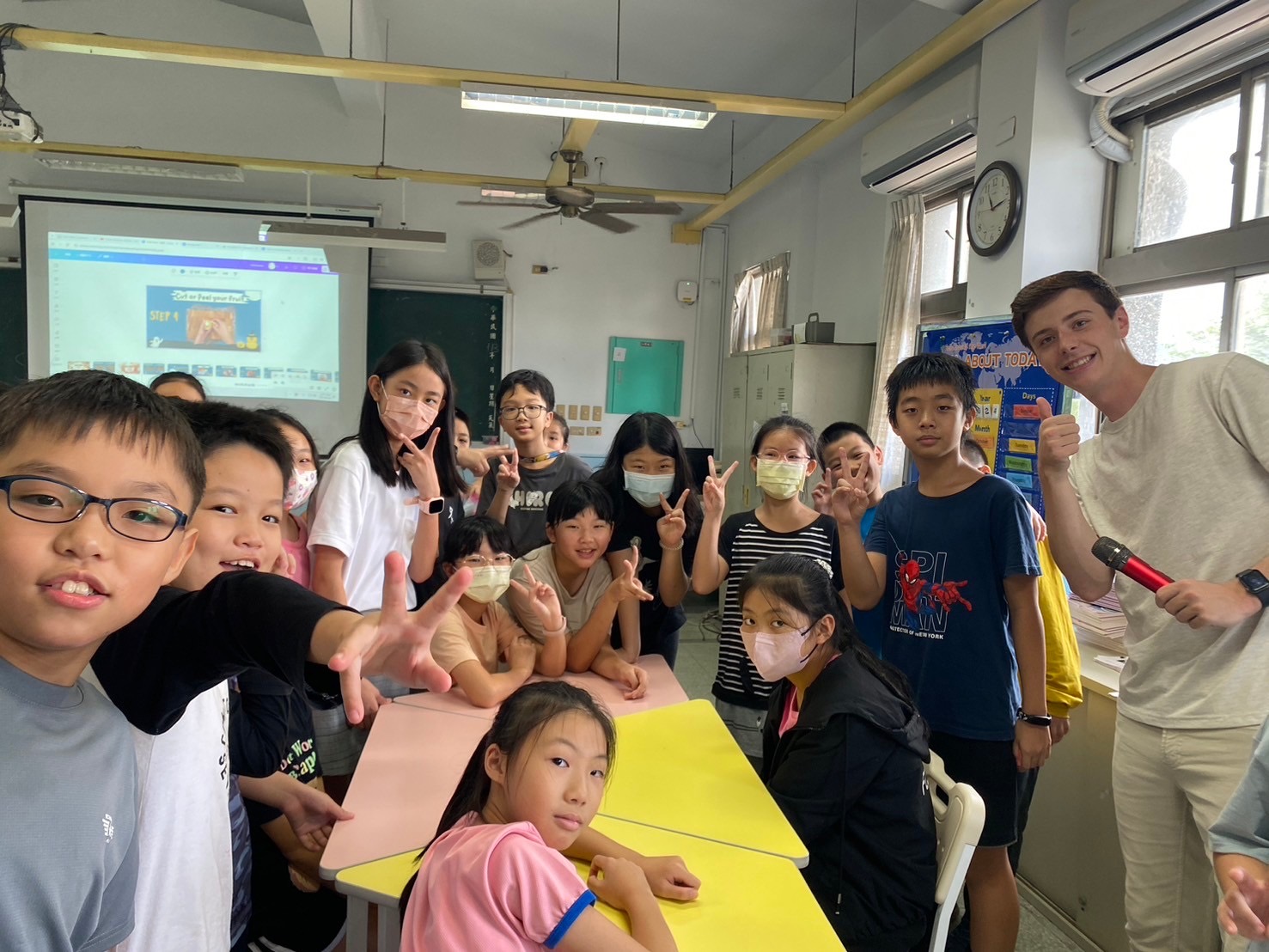
Fifth graders!
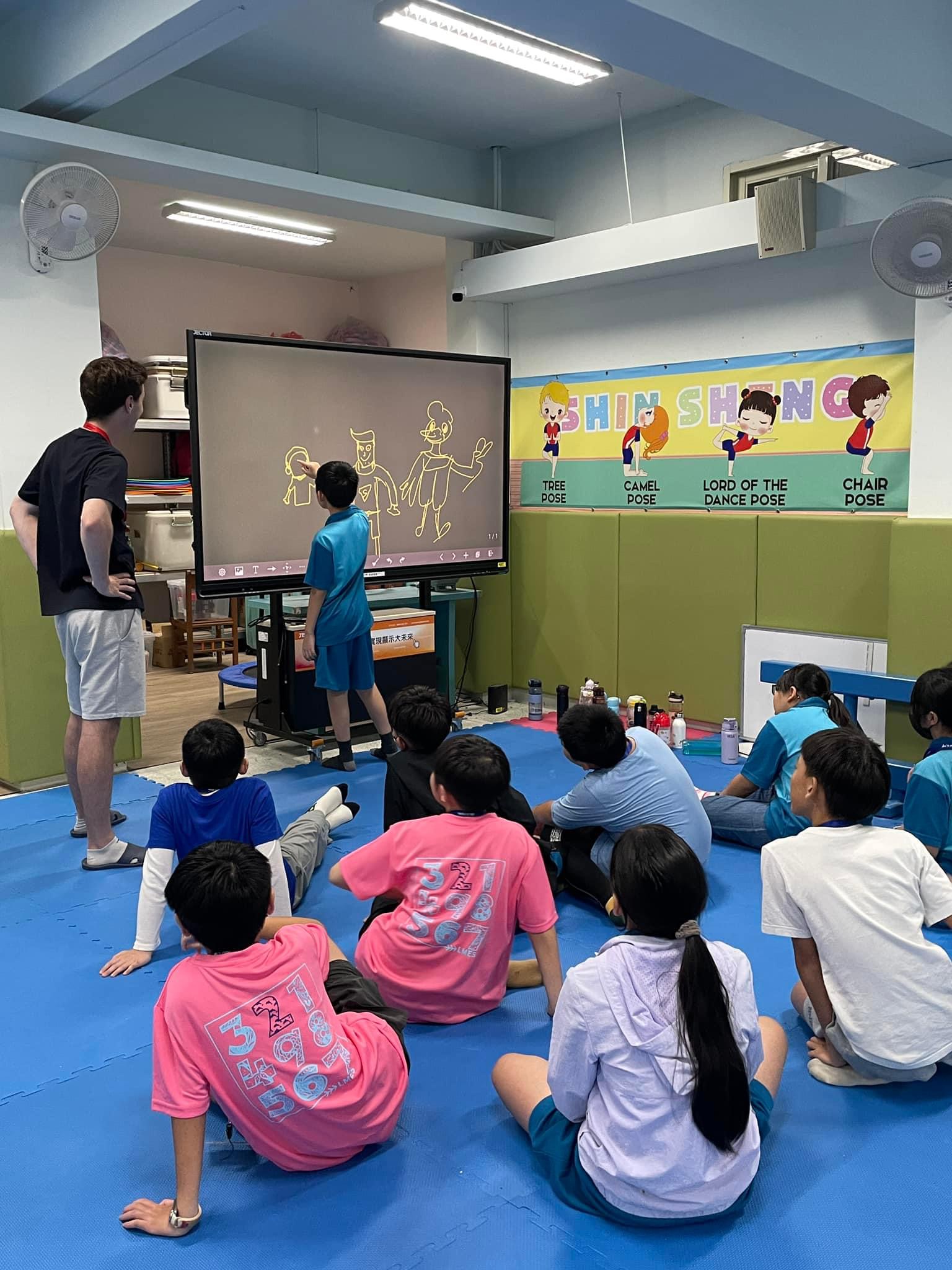
EV. Before teaching about the parts of the body, I had kids come up and draw me so I could write each part down and point to it as a reminder. Usually the kids were very very shy and I had to call on them randomly to come up and draw, but some students loved it so much that they’d sneak away and keep drawing while I was teaching something else.
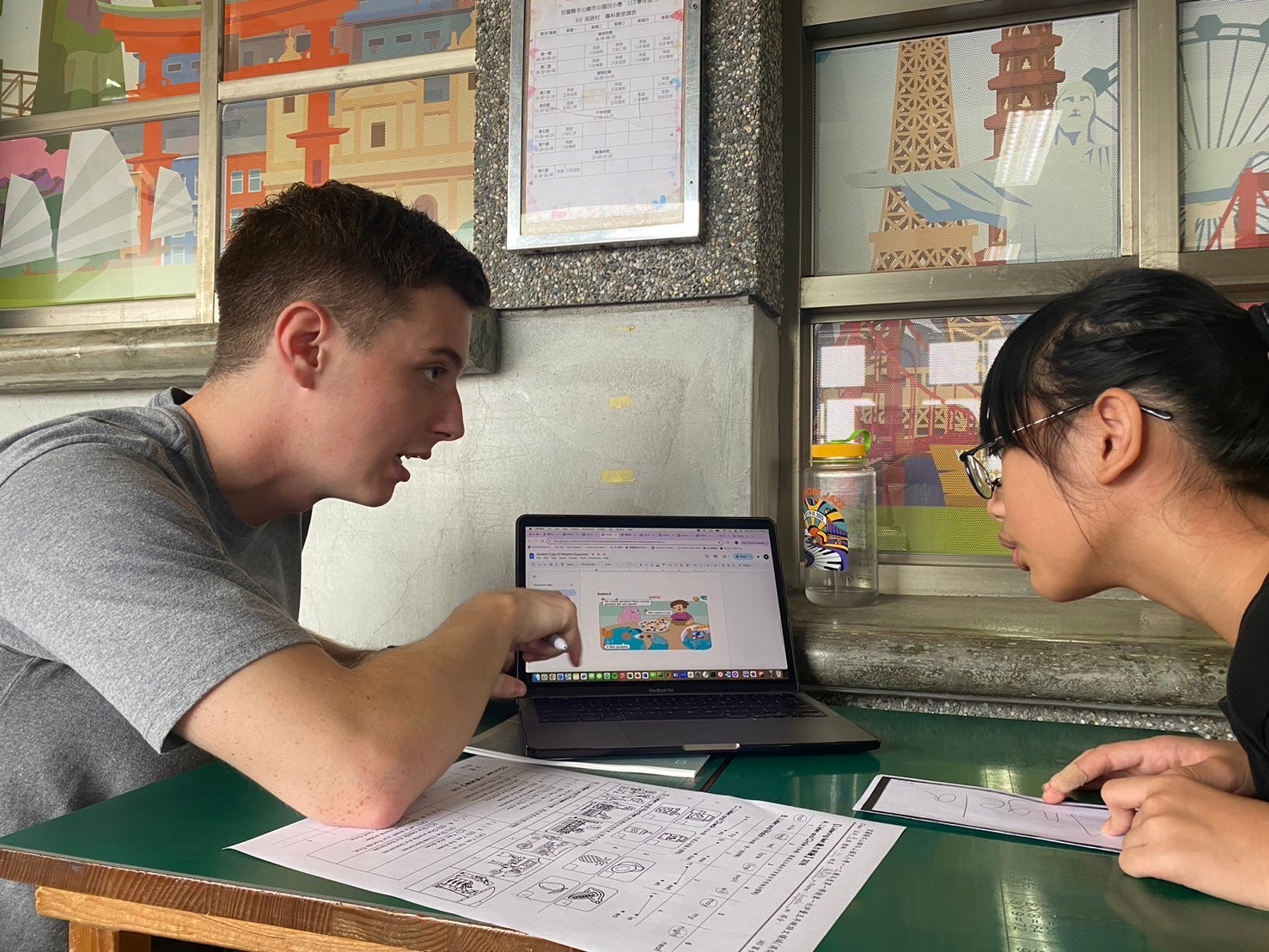
Speaking exam with fifth grade.
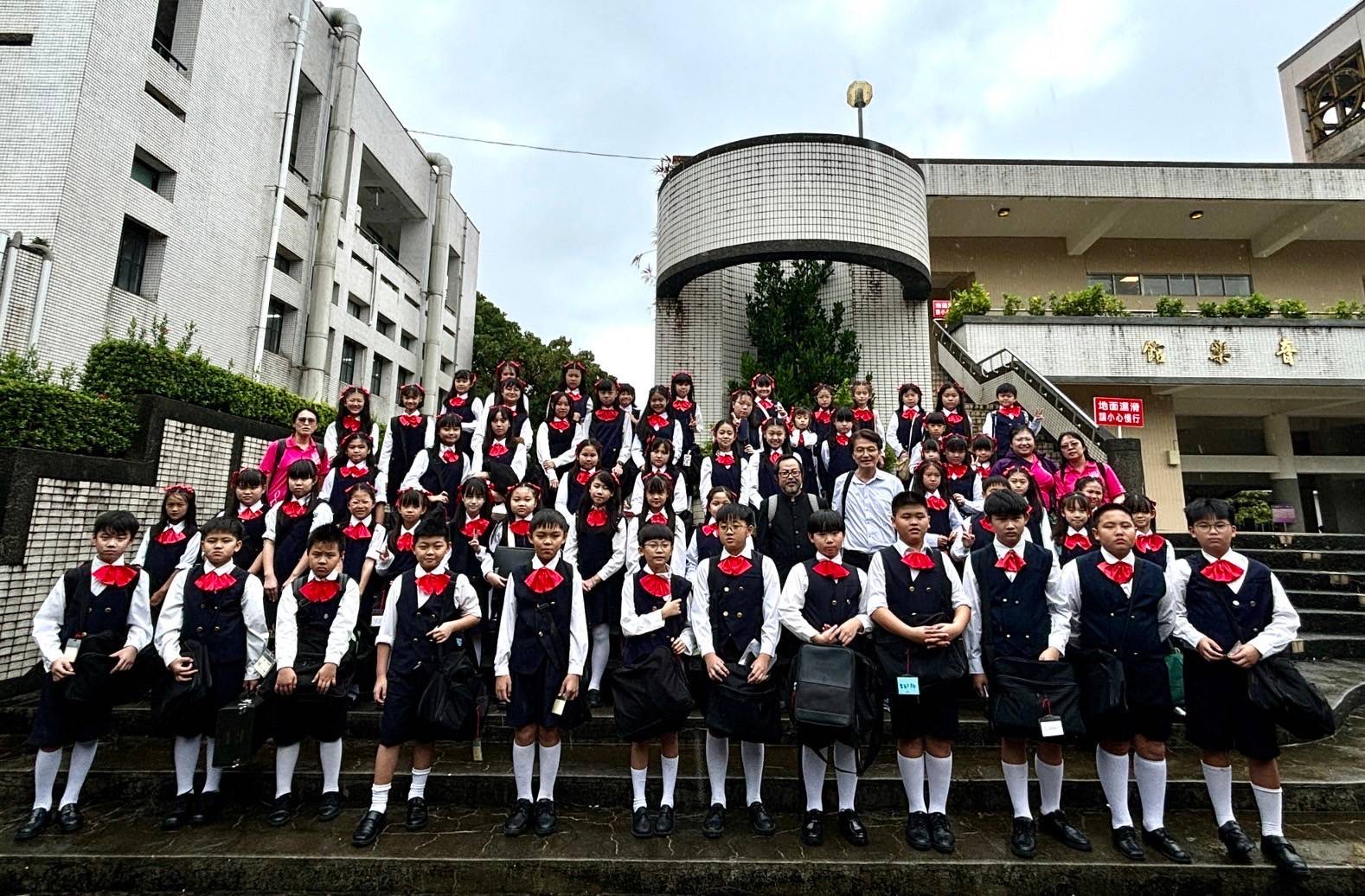
Wind band students in their concert attire at the national elementary school competition.
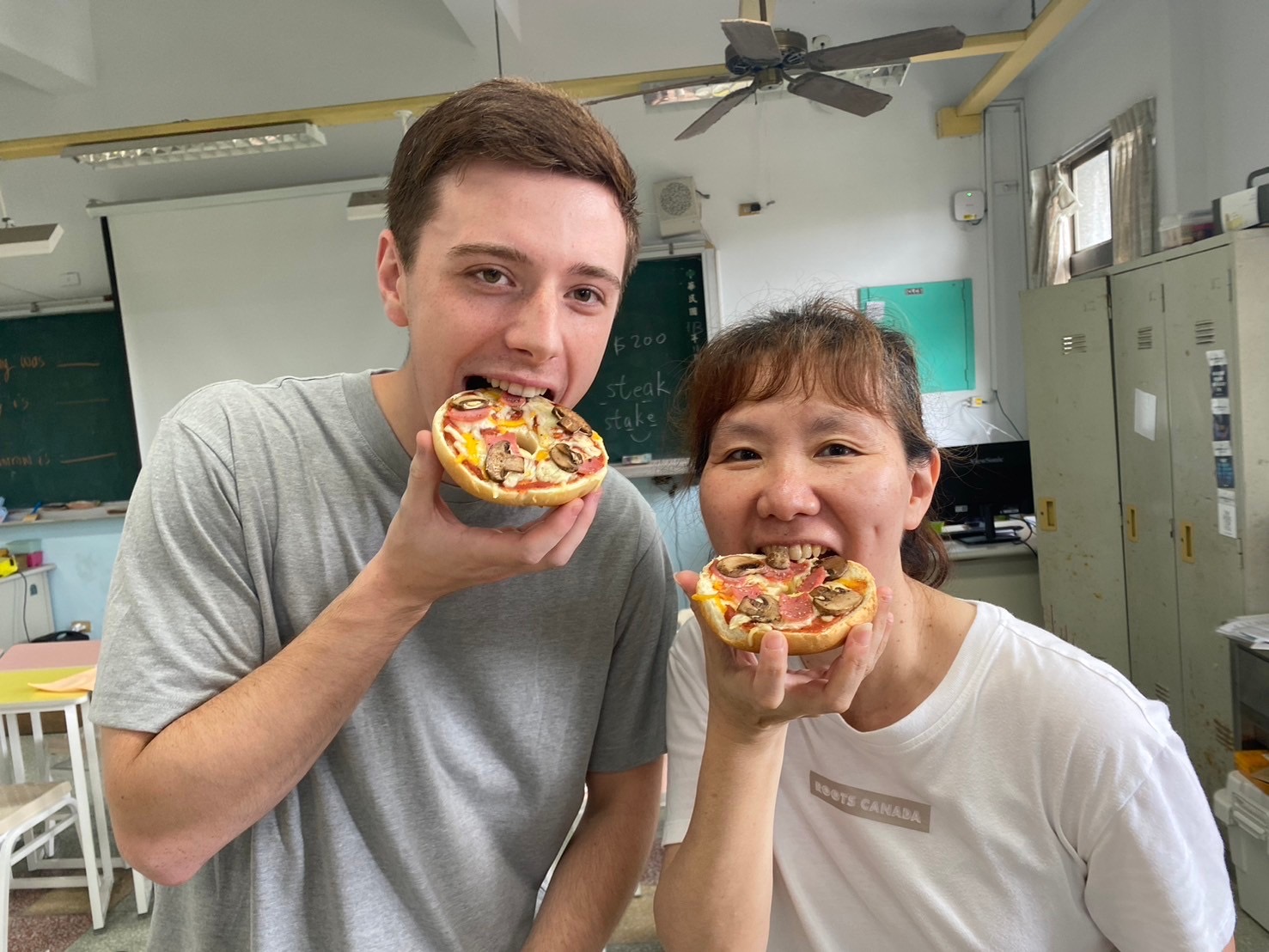
Jennifer and I chowing down on some pizza bagels. Very important to me to have introduced this to my kids.

Home. Making cranberry sauce for fifth grade Thanksgiving lesson. Missing pumpkin pie severely.
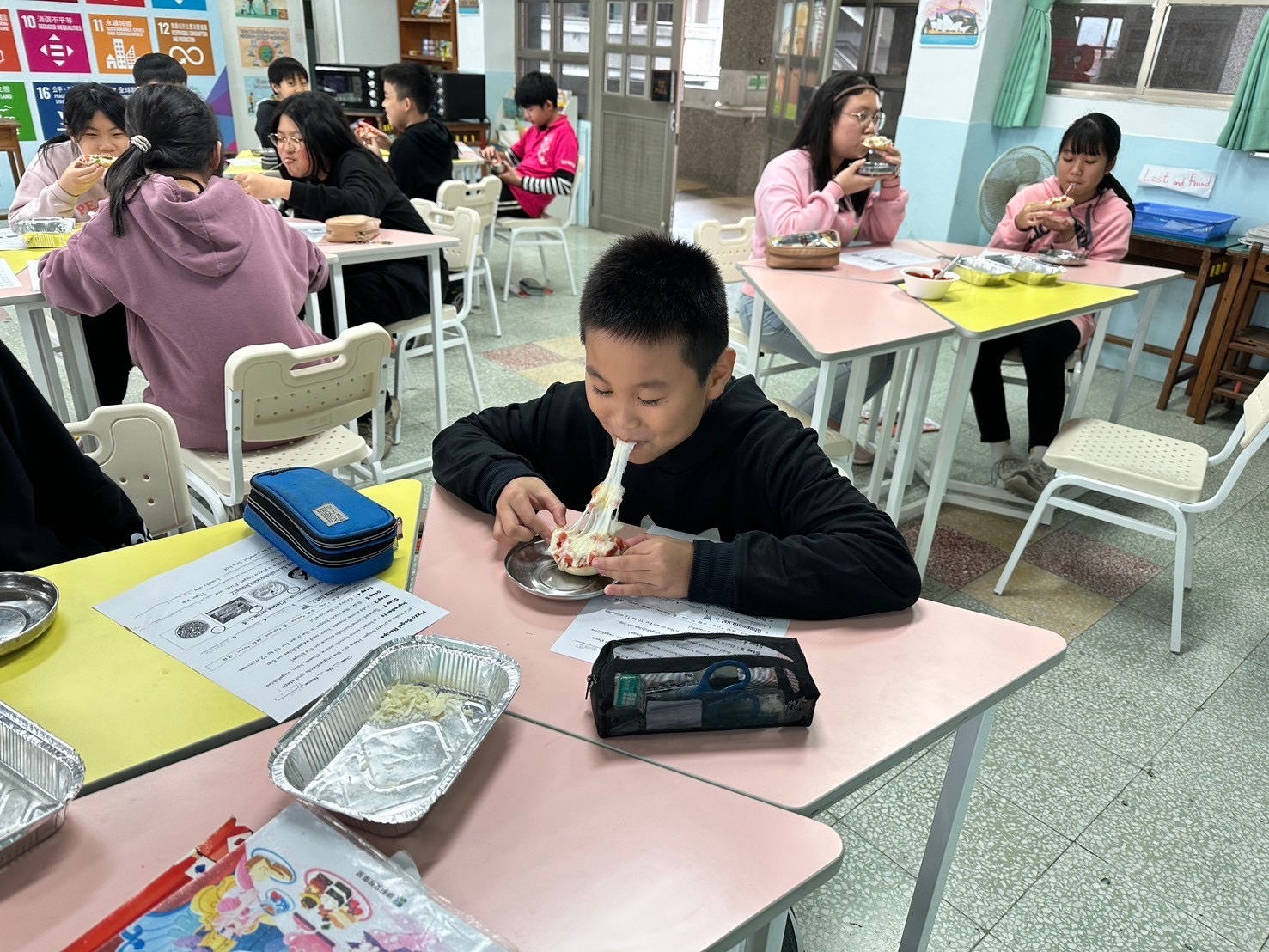
Jimmy with a huge cheese pull.
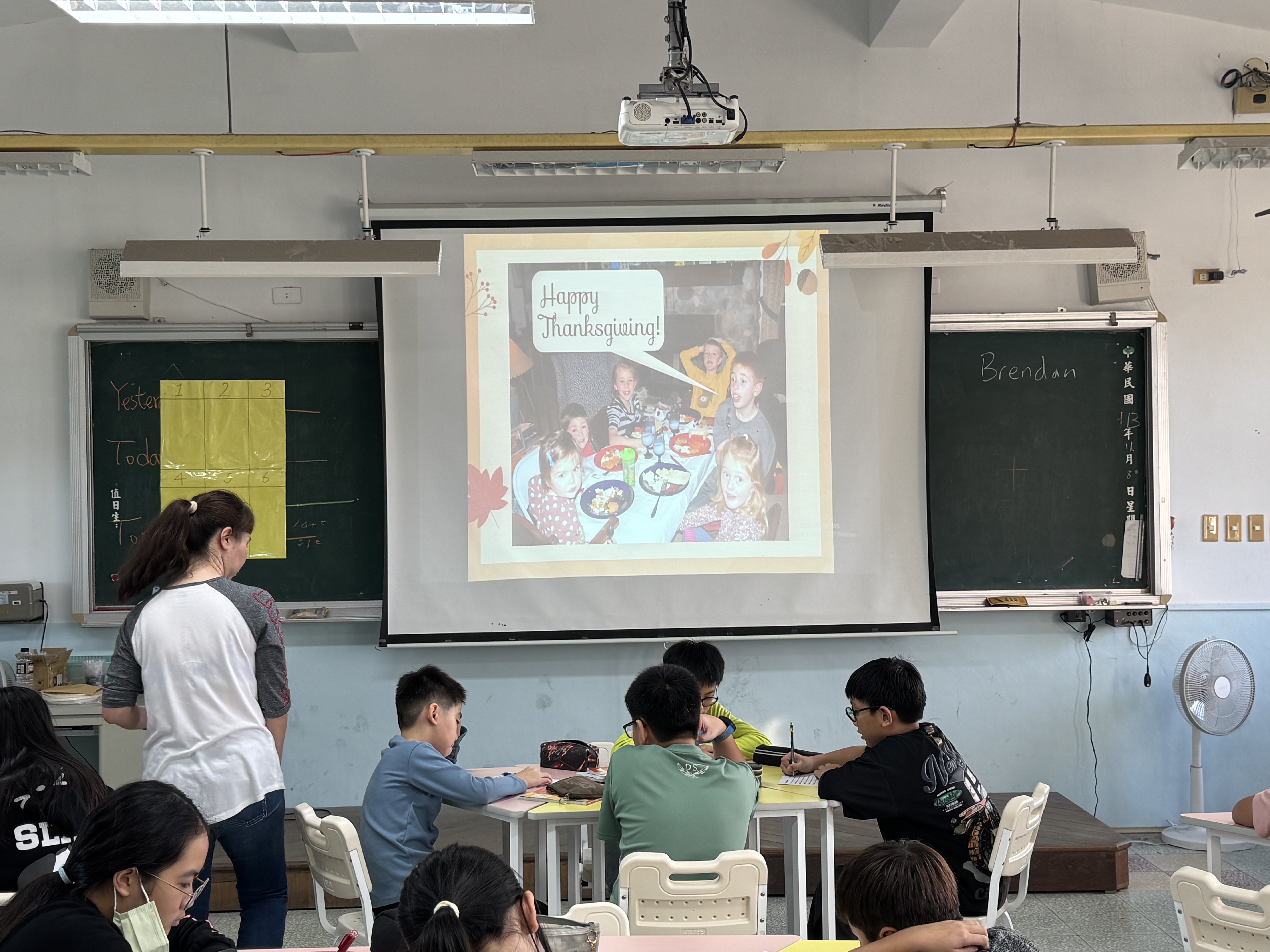
Teaching Thanksgiving with some photos from home.

Tina’s House. Tina hosted me and my roommates Benton and Eric for a Japanese curry lunch. All homemade and way way too much to eat in one sitting.

Tina’s House. Curry party!
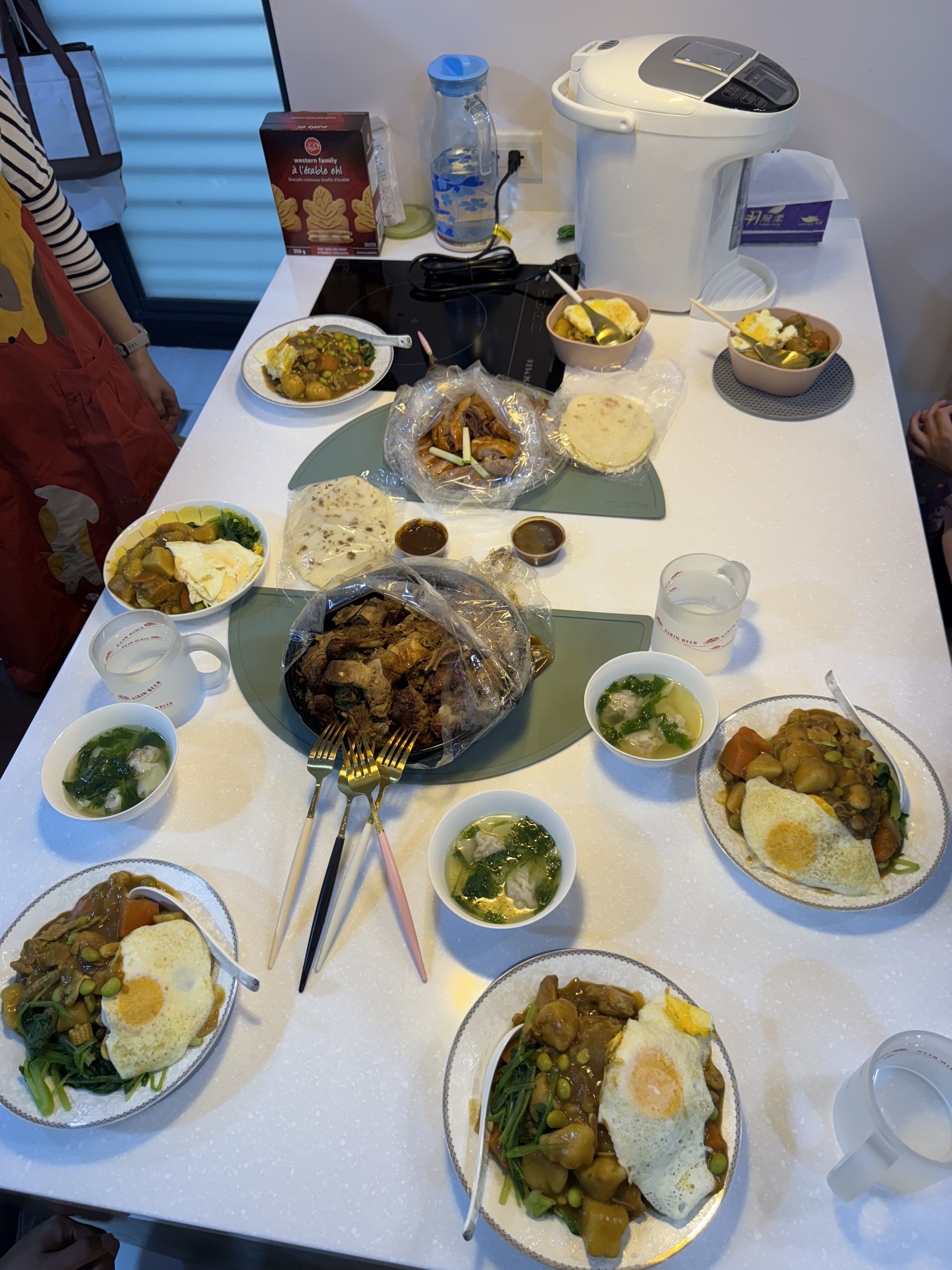
Tina’s House. Wonton soup, curry, eggs, greens, and duck. Stuffed.
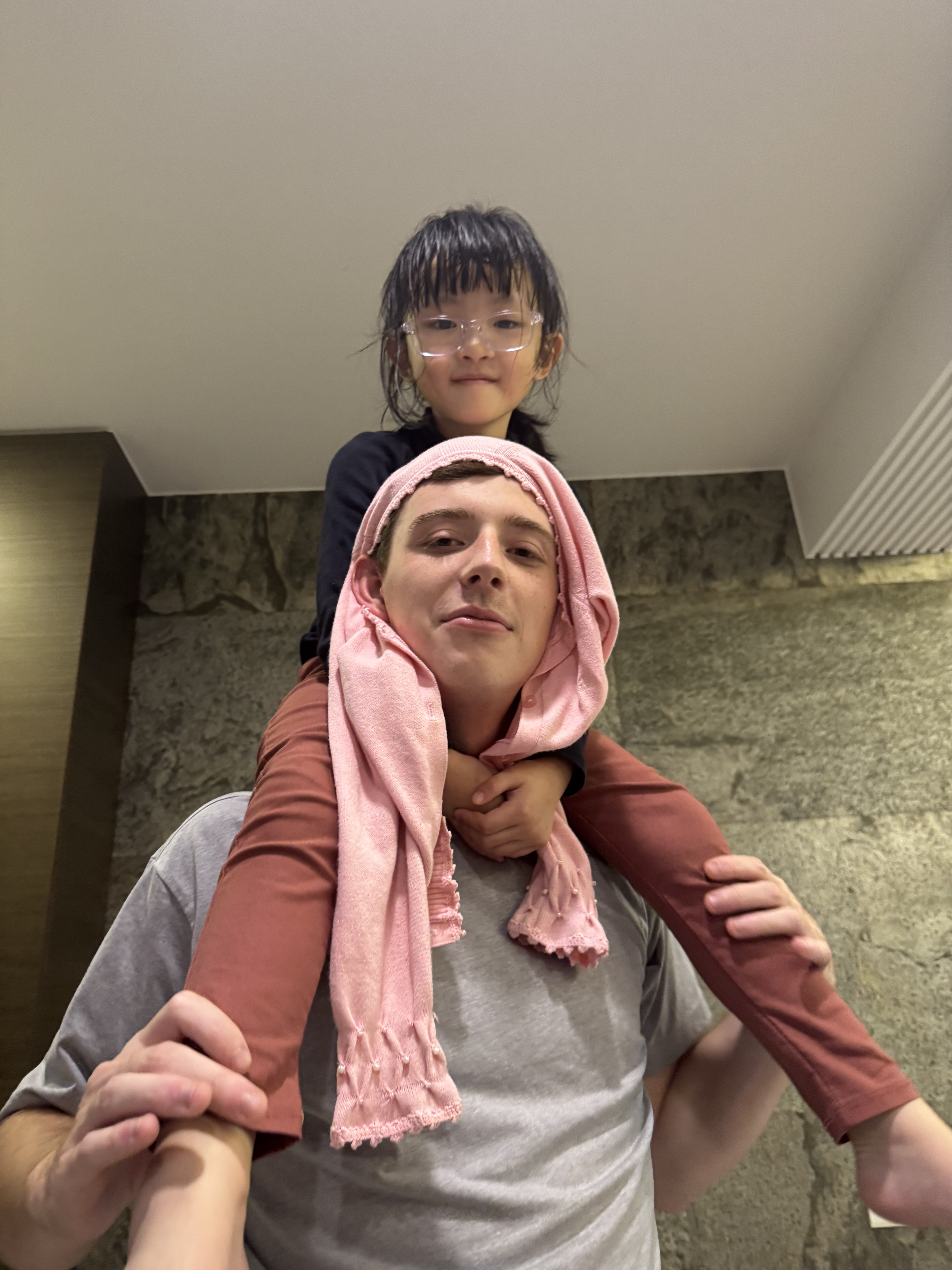
Tina’s House. Me and Tina’s youngest daughter Zoe.
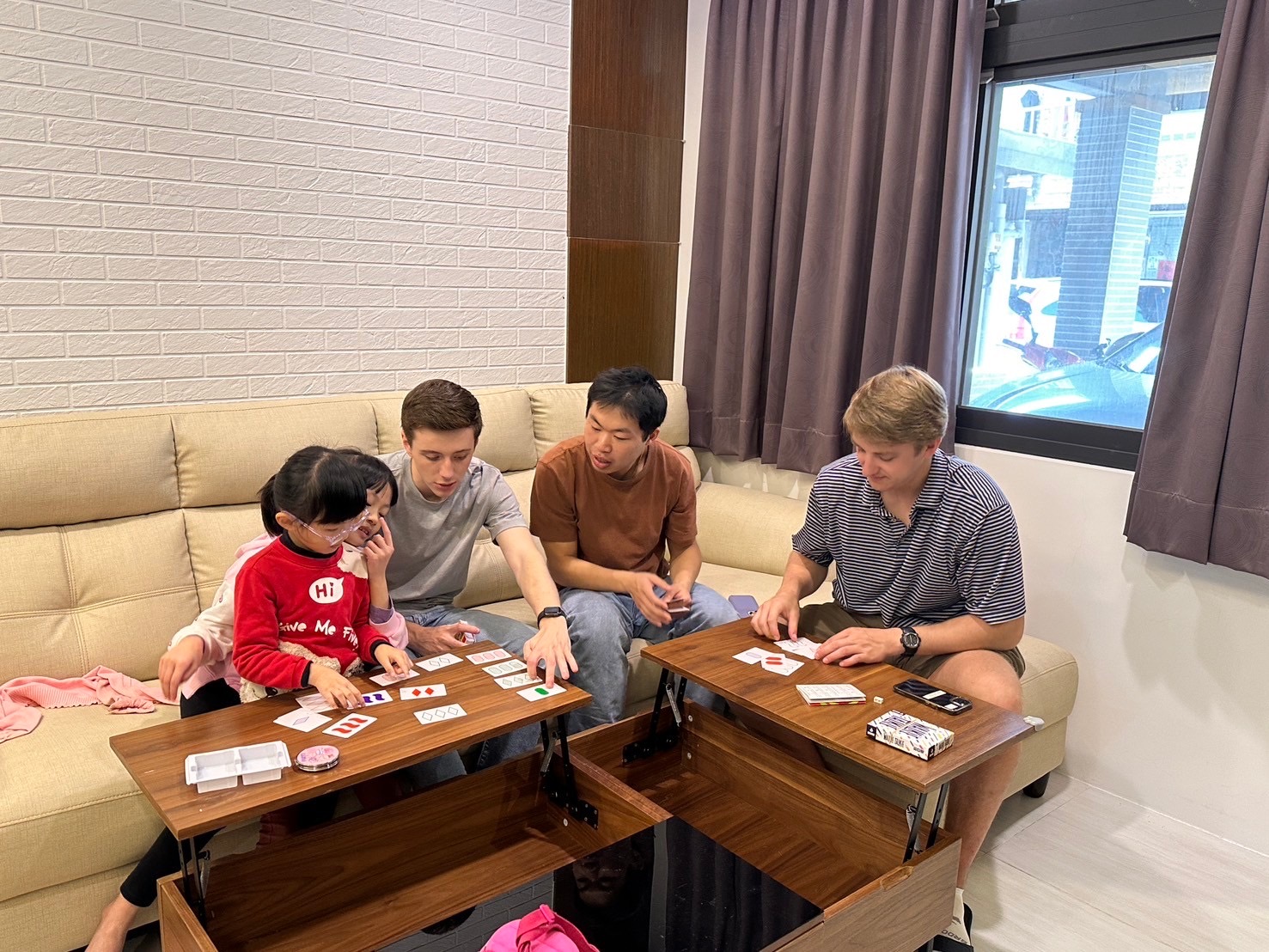
Tina’s House. Teaching Tina’s daughters how to play Set. In Chinese. Also teaching myself.
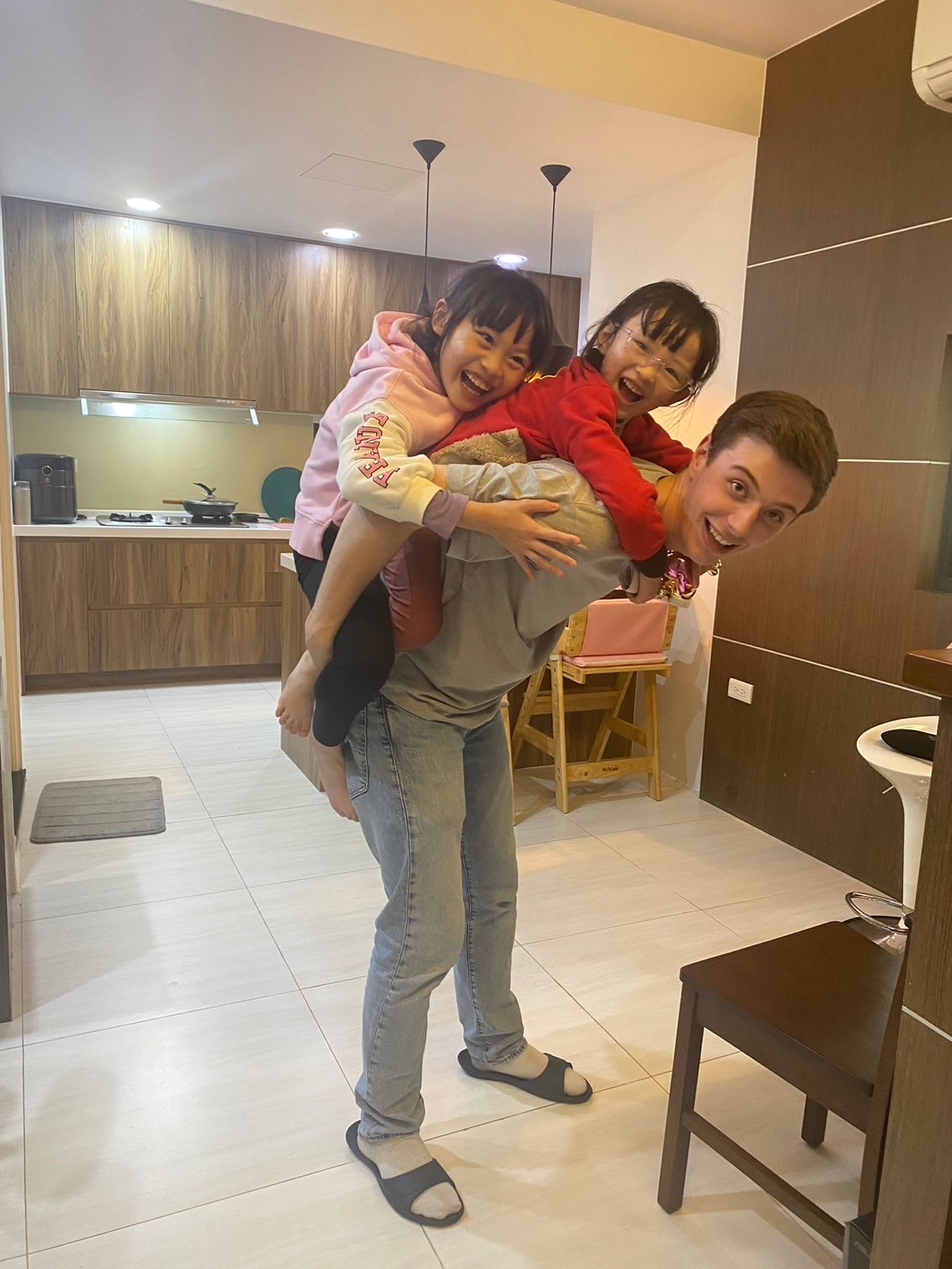
Tina’s House. Cuties.
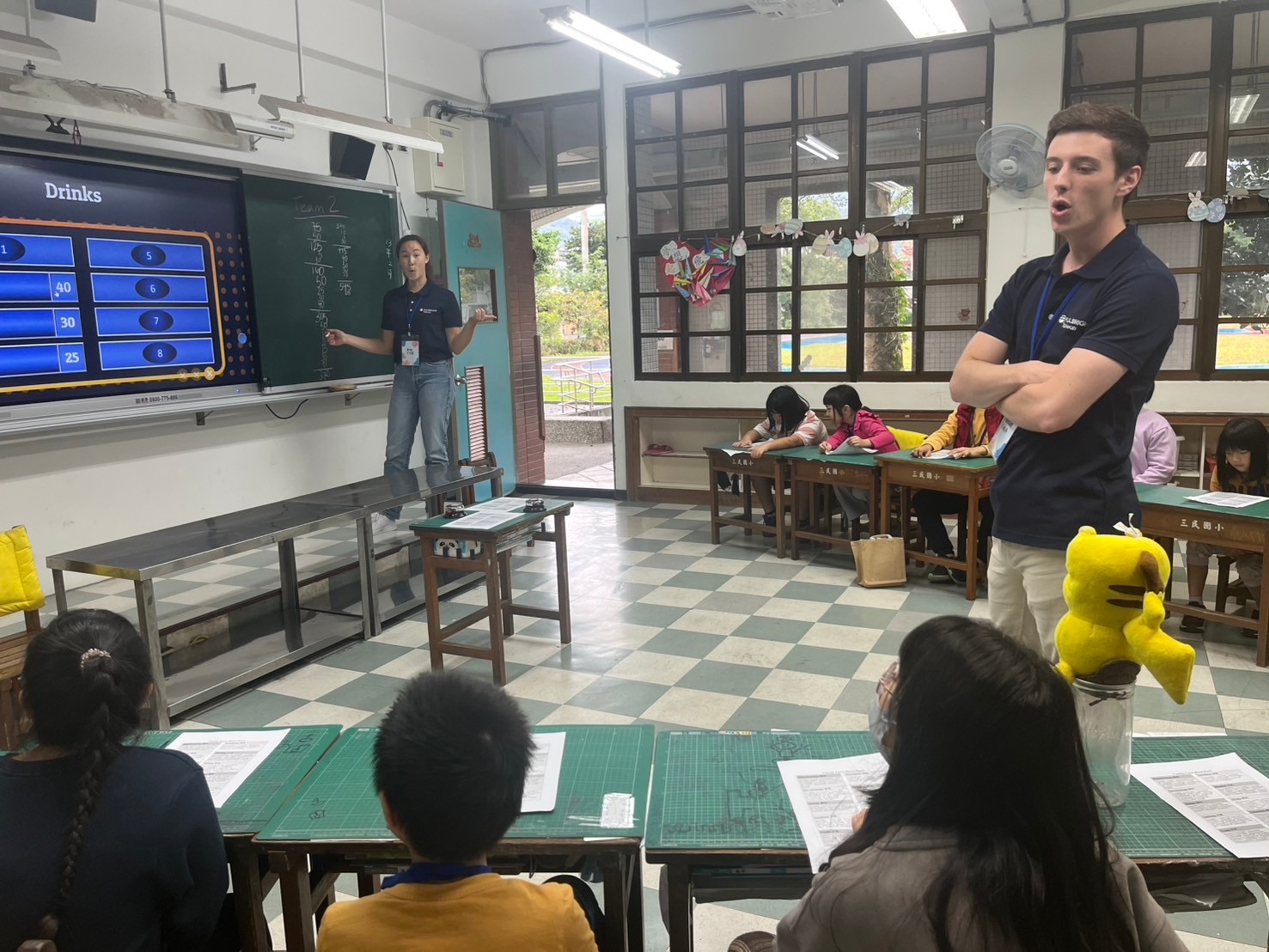
Sanmin Elementary School, Jiaoxi Township. First semester English camp at Sanmin Elementary School. Our theme was game shows and Erin and I were running some Family Feud.
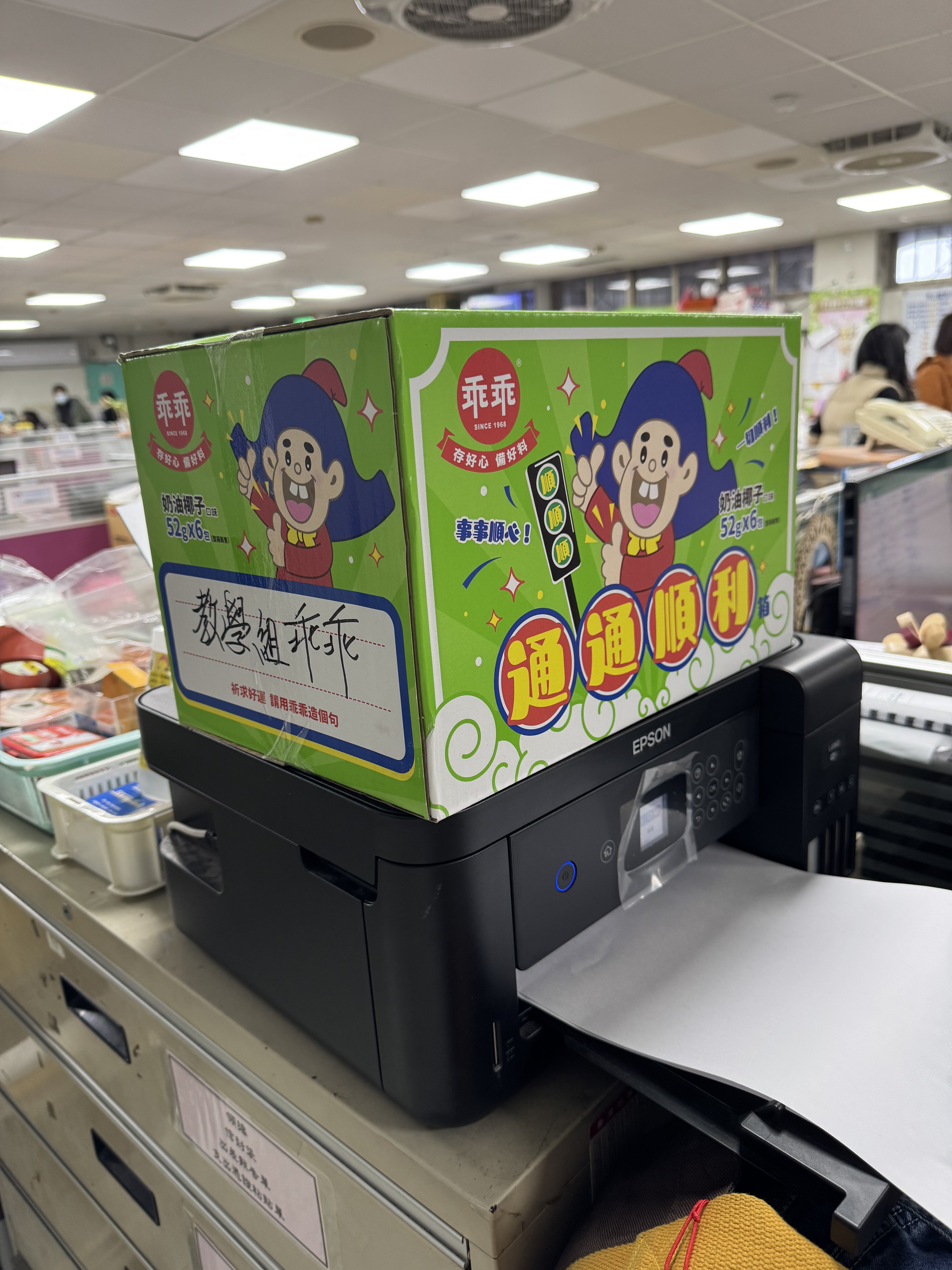
School. Taiwanese culture is full of superstitions, and one of them can probably be found in every office in Taiwan. This bright colored box holds six bags of a puffcorn-like snack called “guai guai,” which translates to well-behaved or obedient. It’s very common to see these boxes stacked on top of printers, computer CPUs, and other electronics to ensure that they behave. In fact, TSMC, the massive semiconductor manufacturer in Taiwan, has a partnership with this snack food company and produces limited edition products that sell for way more than a bag of popcorn ever should.
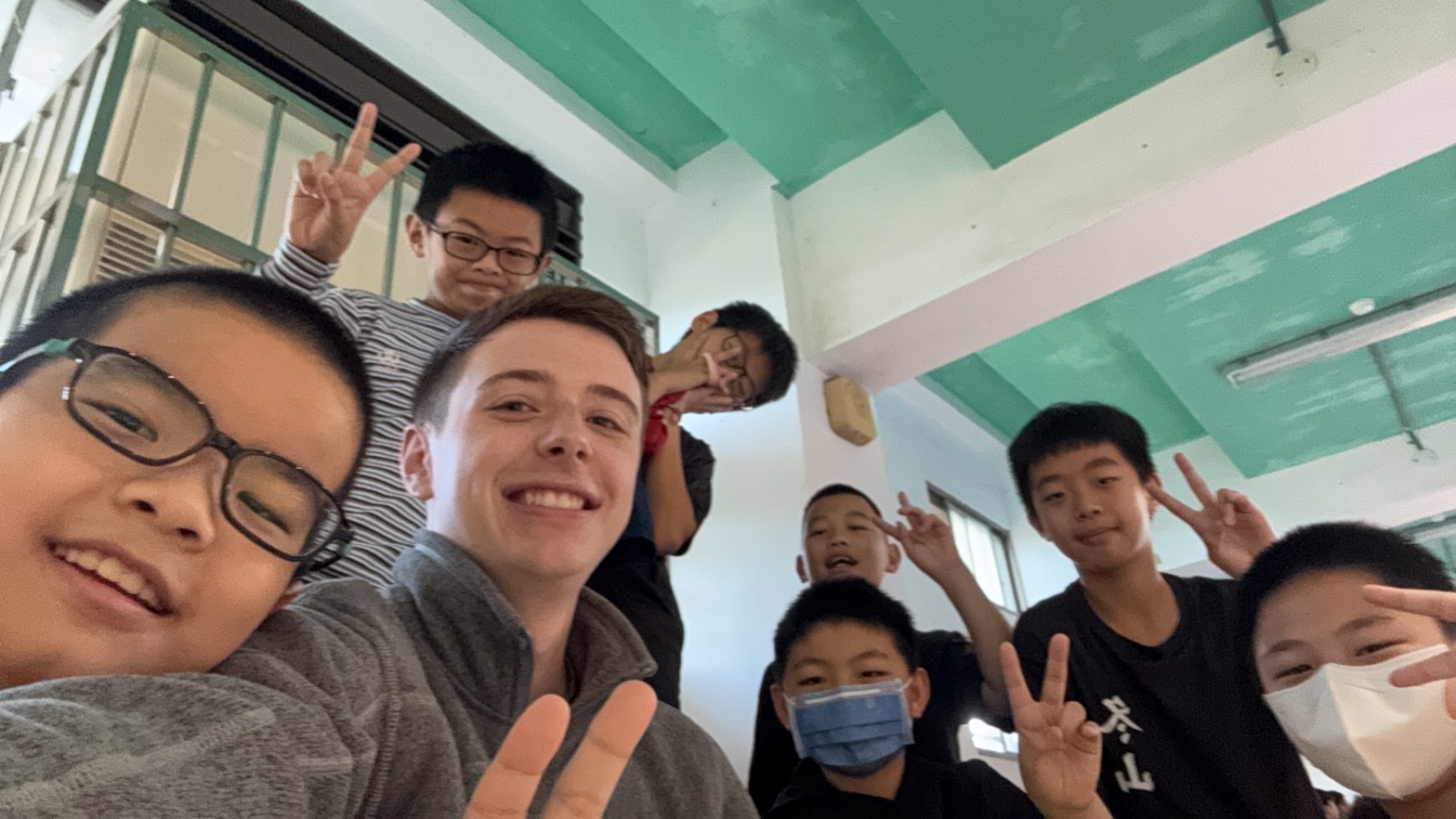
Selfie with the fifth graders at their school dodgeball tournament.
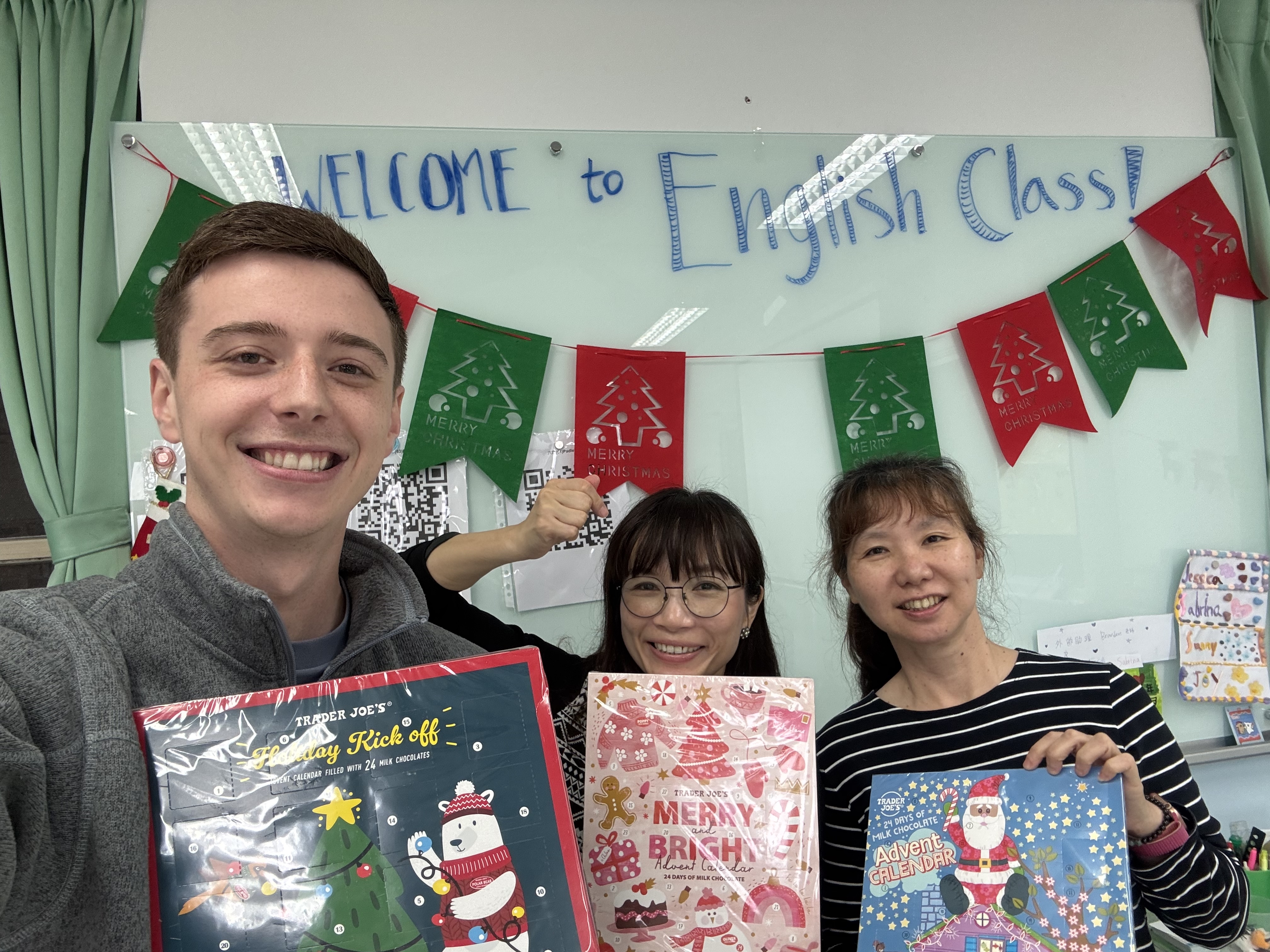
Tina, Jennifer, and I posing with our Trader Joe’s advent calendars shipped in from a friend of Jennifer’s.
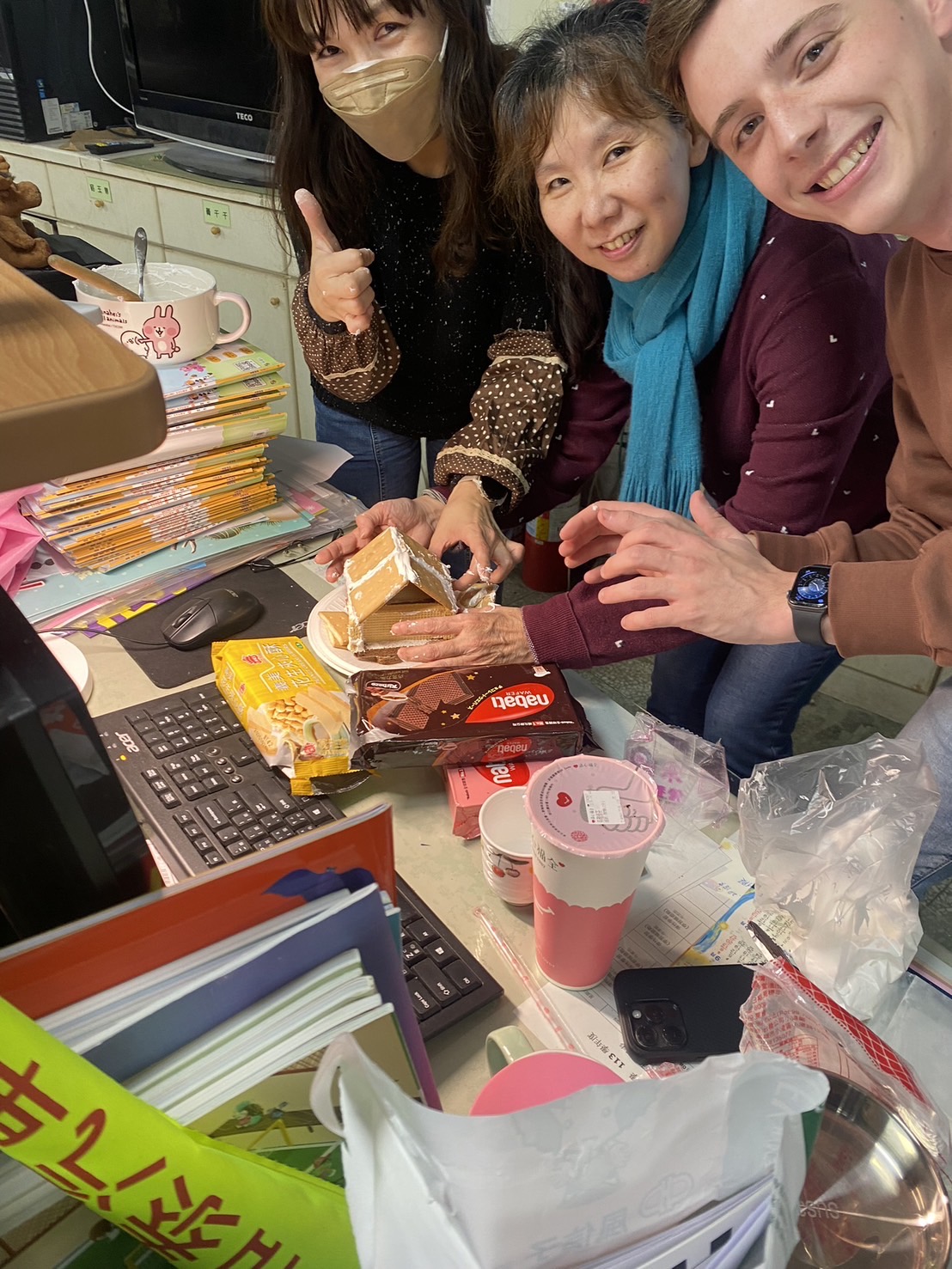
Testing whether gingerbread houses made with Taiwanese substitute ingredients will work. Turns out, just barely.
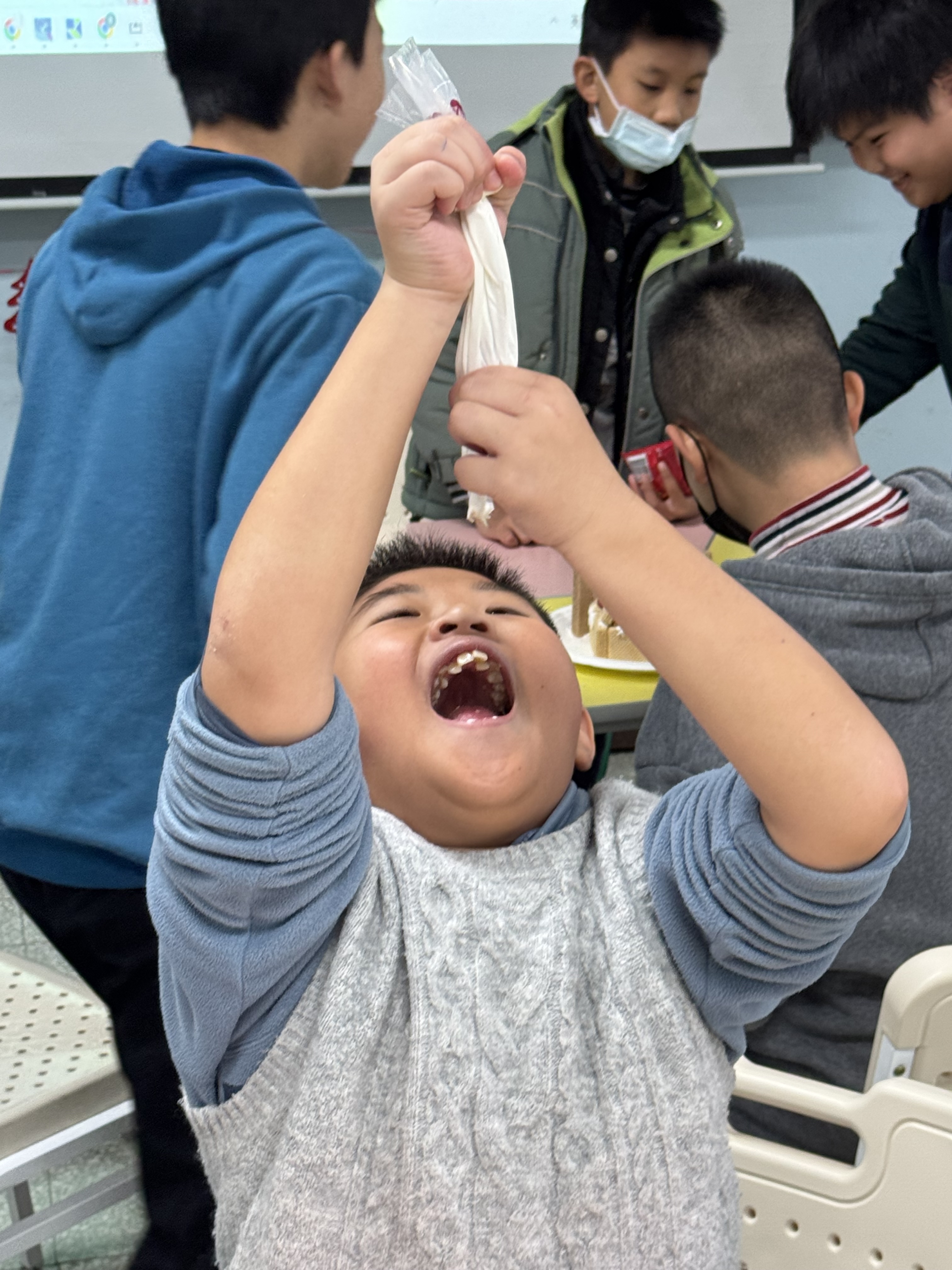
Frank waterfalling the icing.
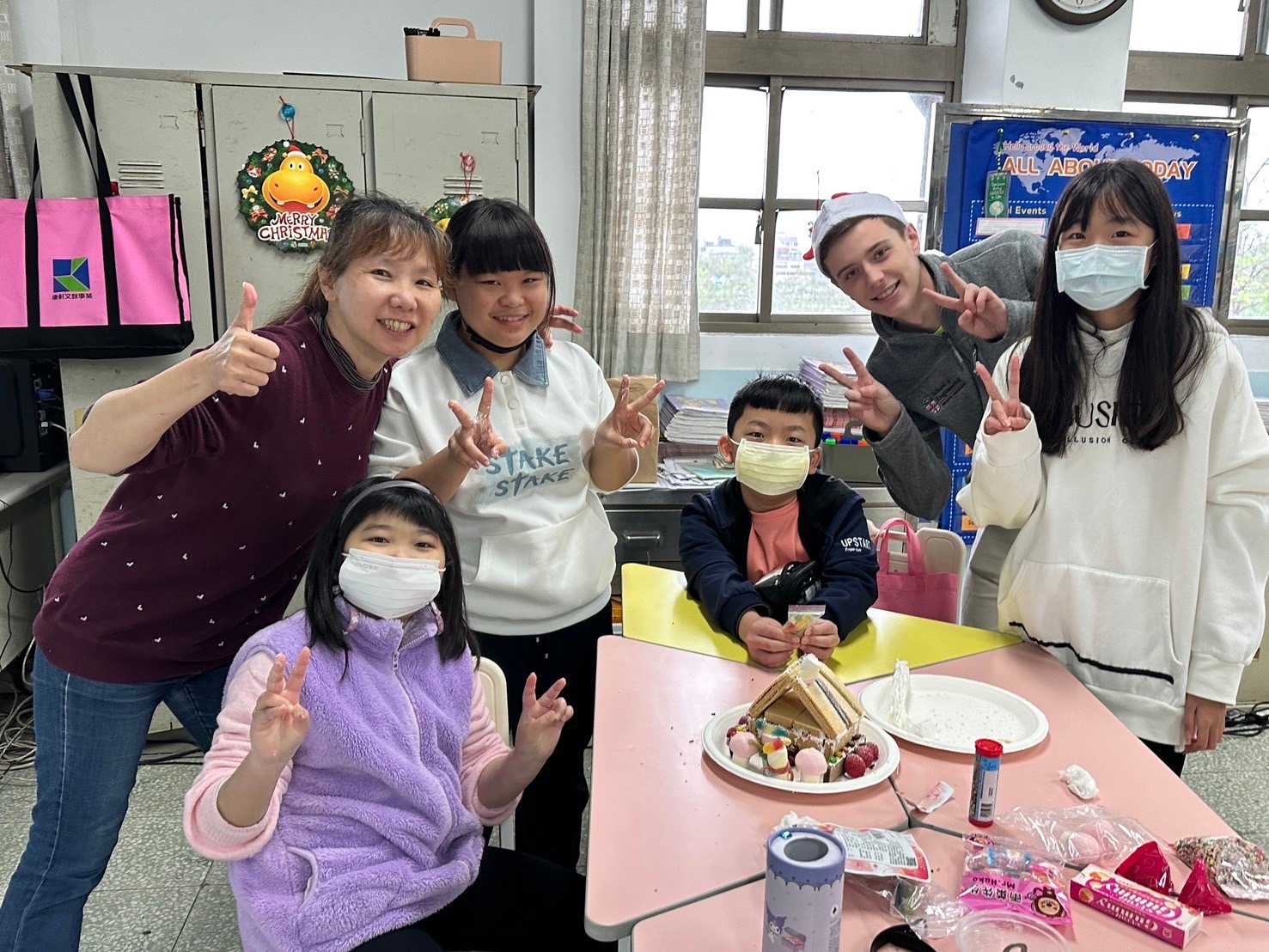
Gingerbread houses.
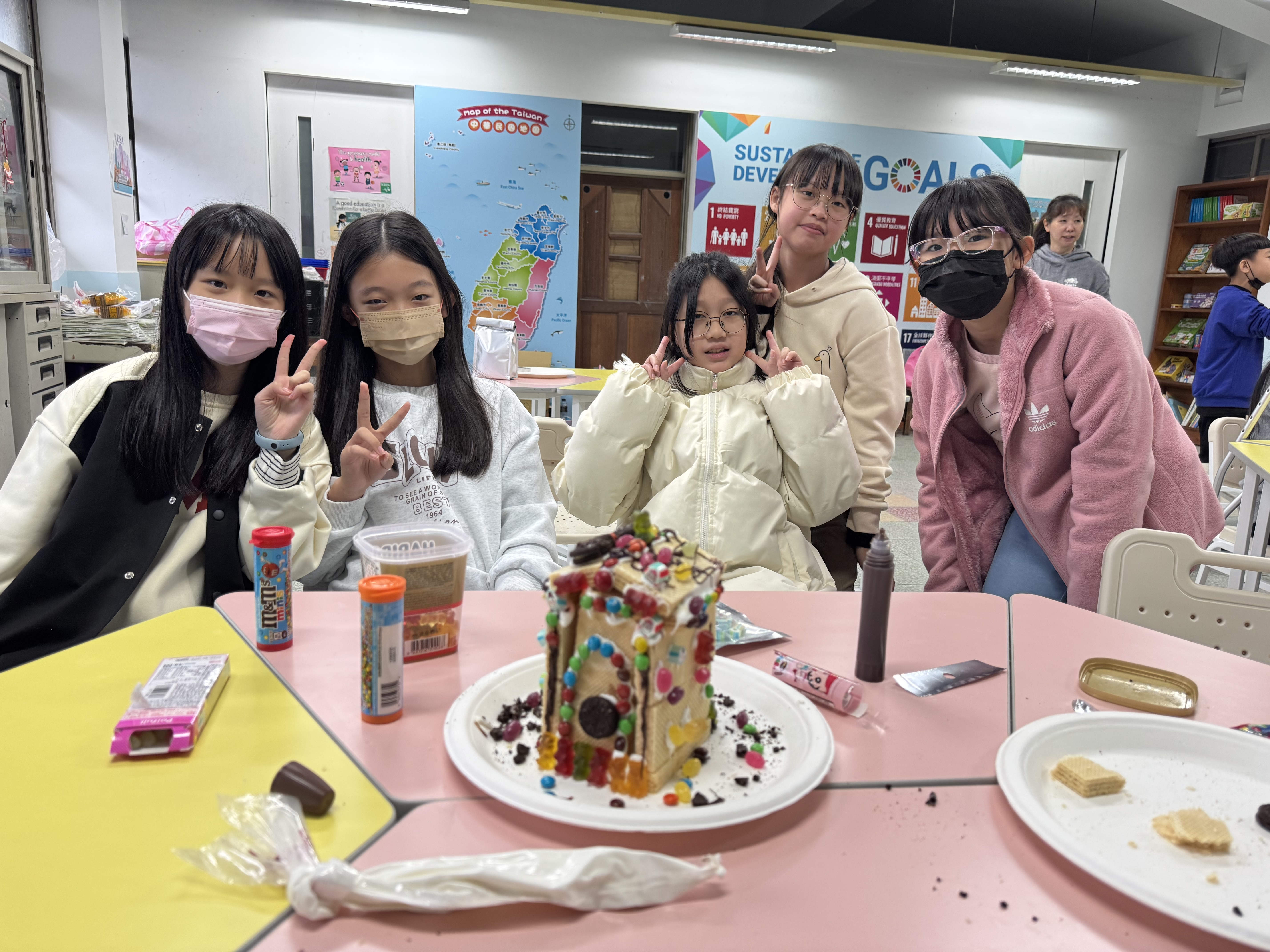
Gingerbread houses.
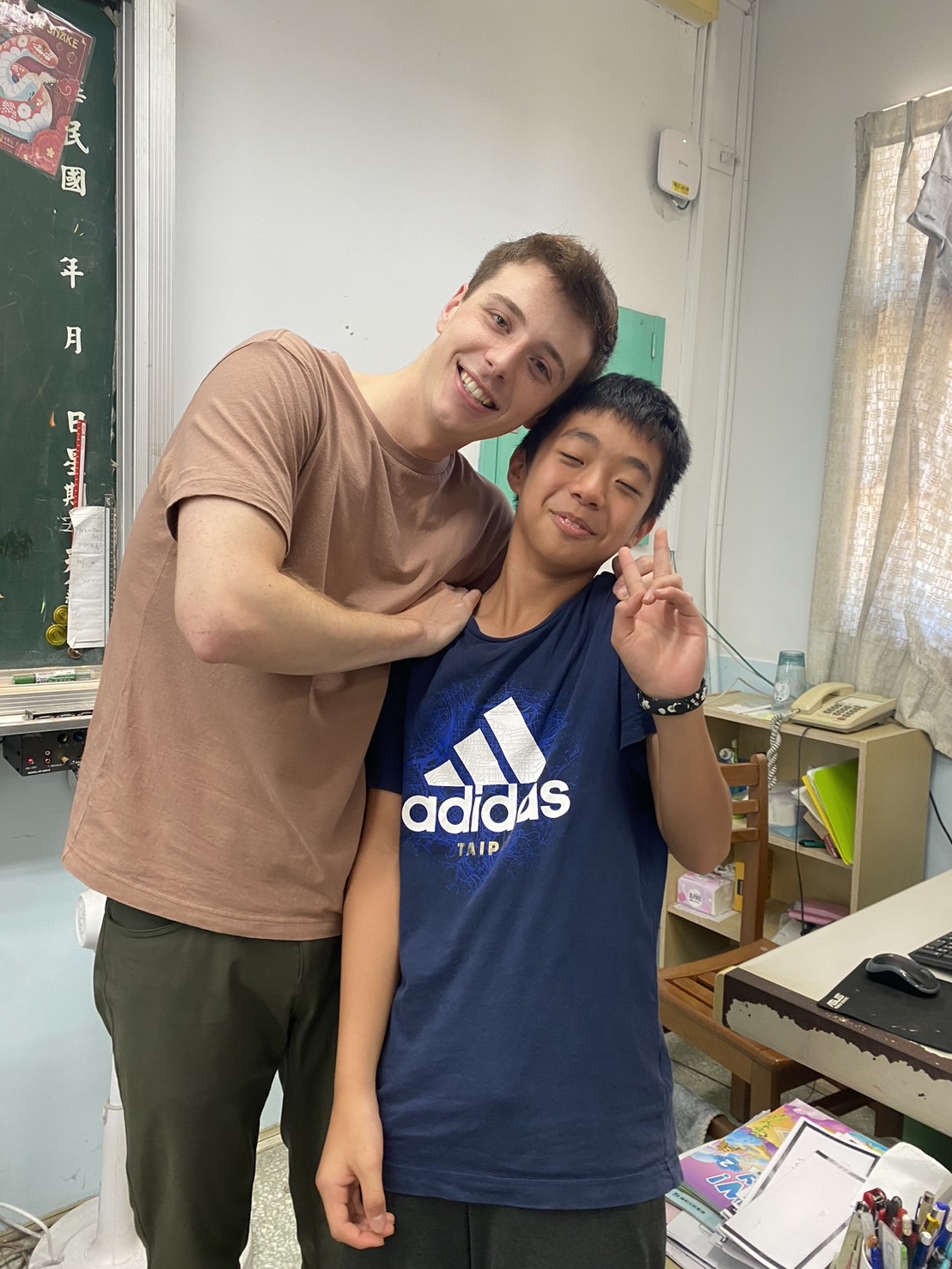
Me and Hero.
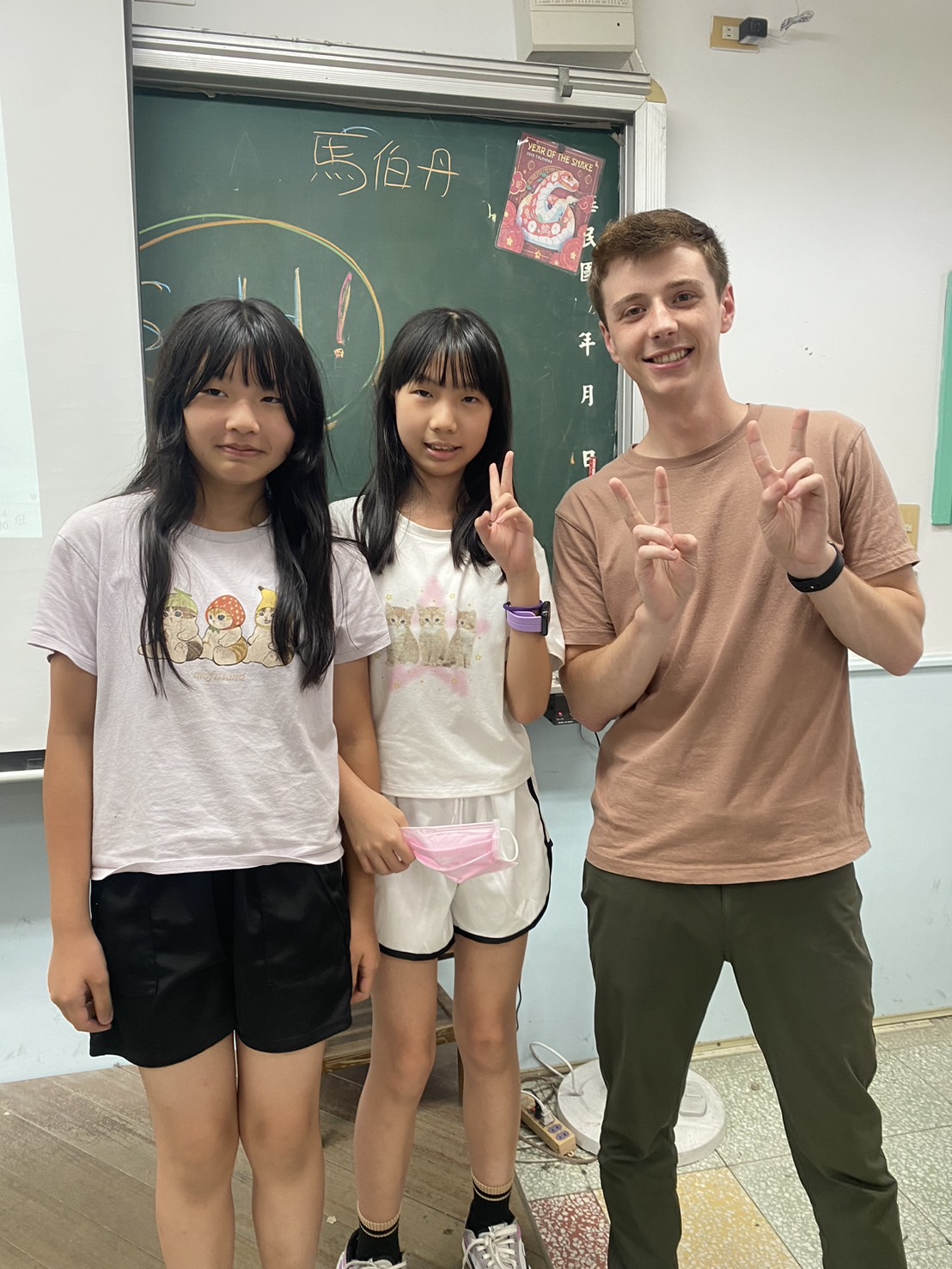
Me and some fifth grade girls sorry they look different without masks on I don't know their names...
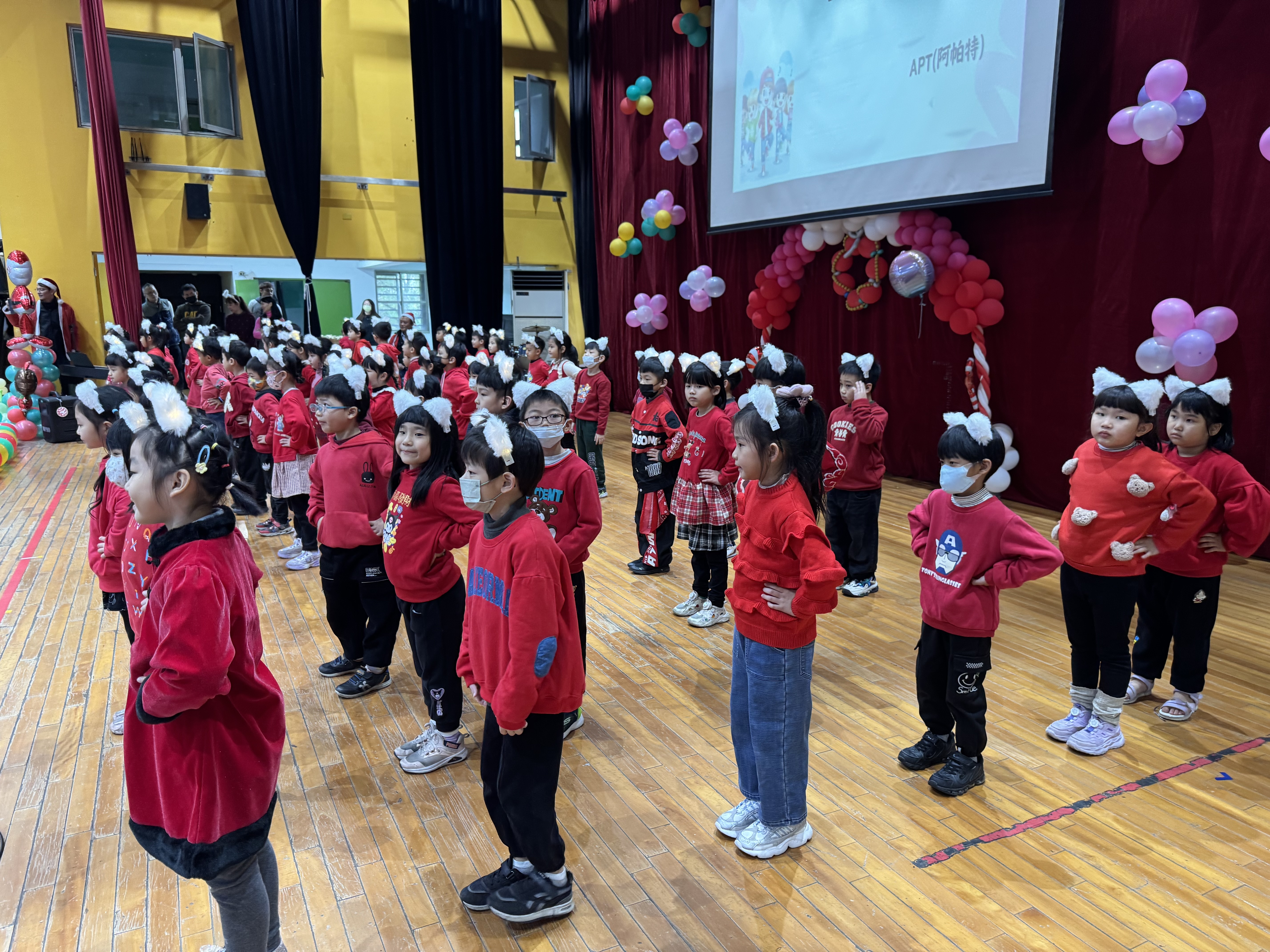
First graders dancing to APT, the hyper popular Bruno Mars x Rose song.

Apparently, a common drink.
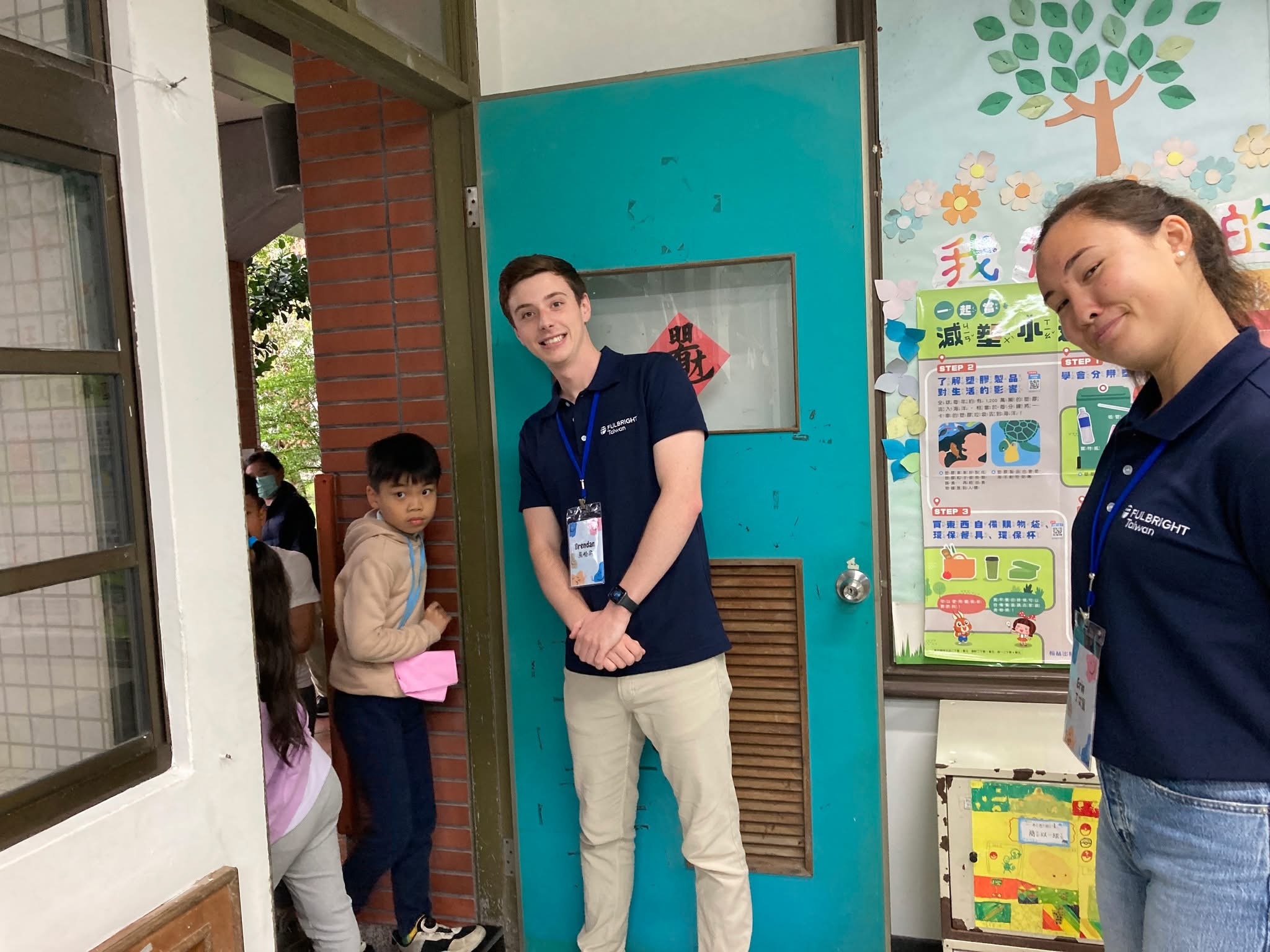
Sanmin Elementary School, Jiaoxi Township. English Camp!

School. Just wanted to point out that Oktoberfest in Chinese is simply “Beer Fest.”
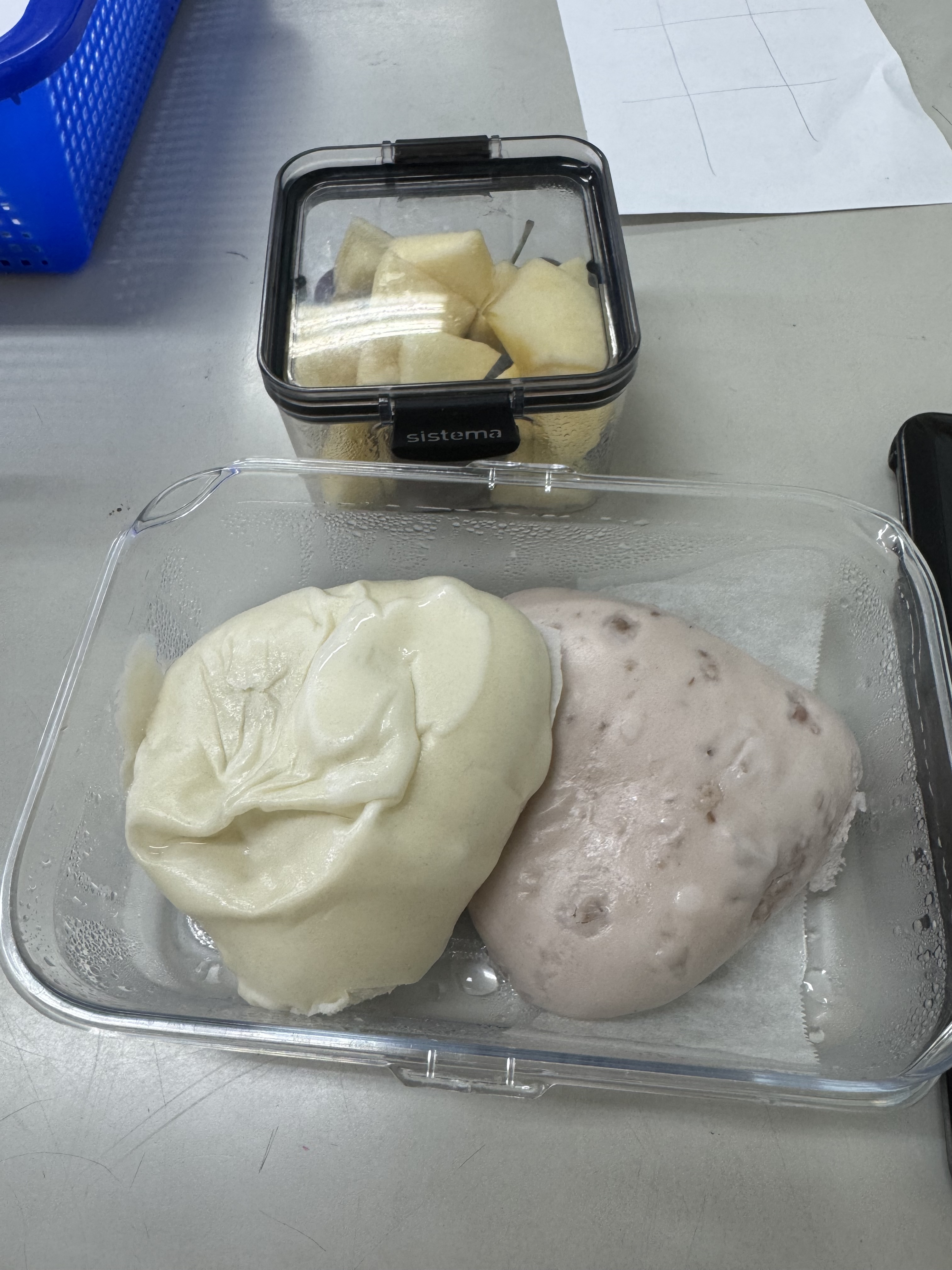
School. A huge huge shoutout to Jennifer and Tina for bringing me a breakfast spread every single day of school all year long. Pictured: (top) apples and cherries, (bottom left) pork bun, (bottom right) taro bun.

School. Sunburnt from a recent trip to Kenting but eager to dig into my birthday cake for breakfast. Thank you Tina and Jennifer!
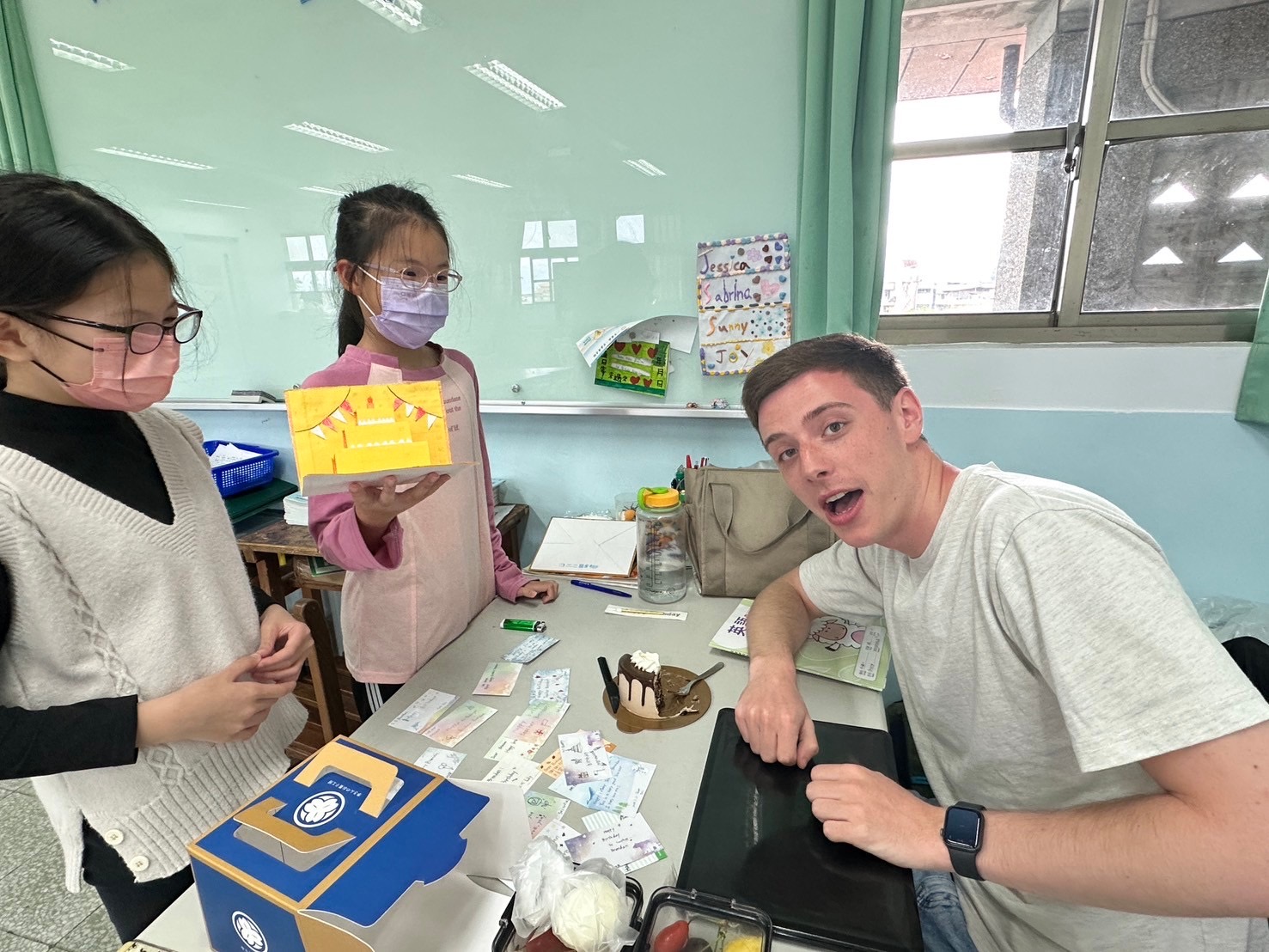
Kids inundating me with cards on my birthday. I will cherish them all.
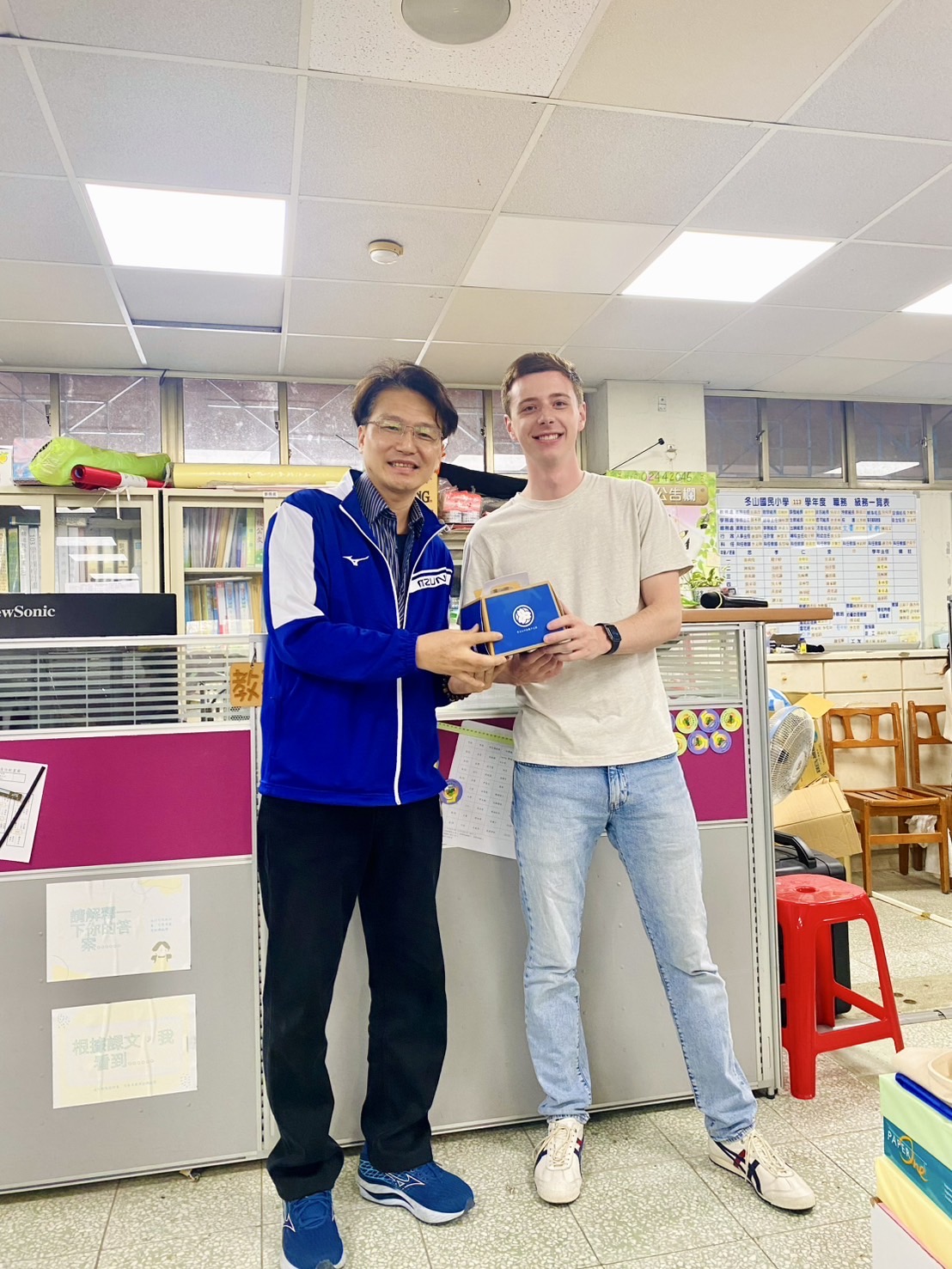
Me and the principal sharing a birthday pic.
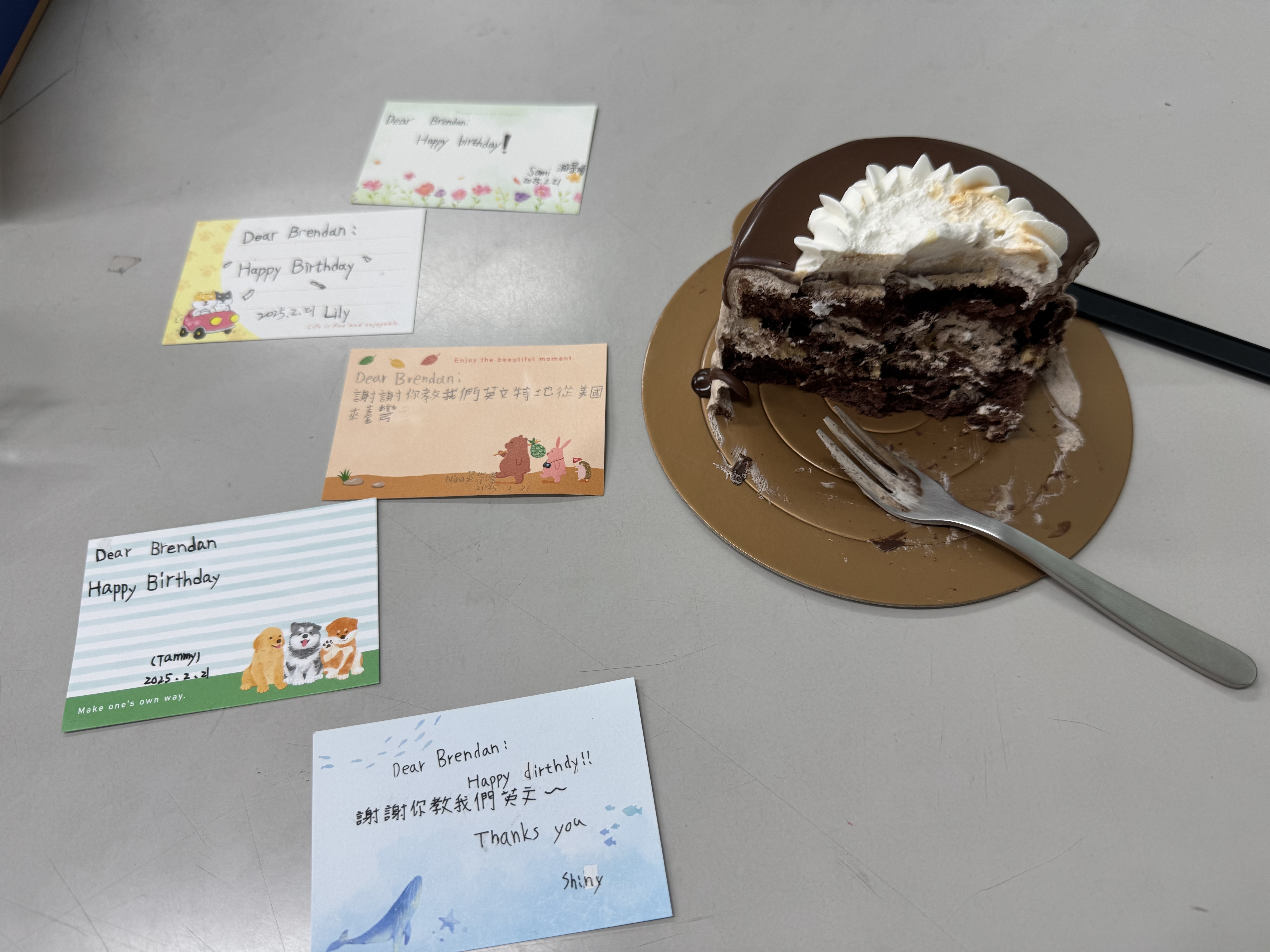
Happy dirthdy!

Home. Even more cake!
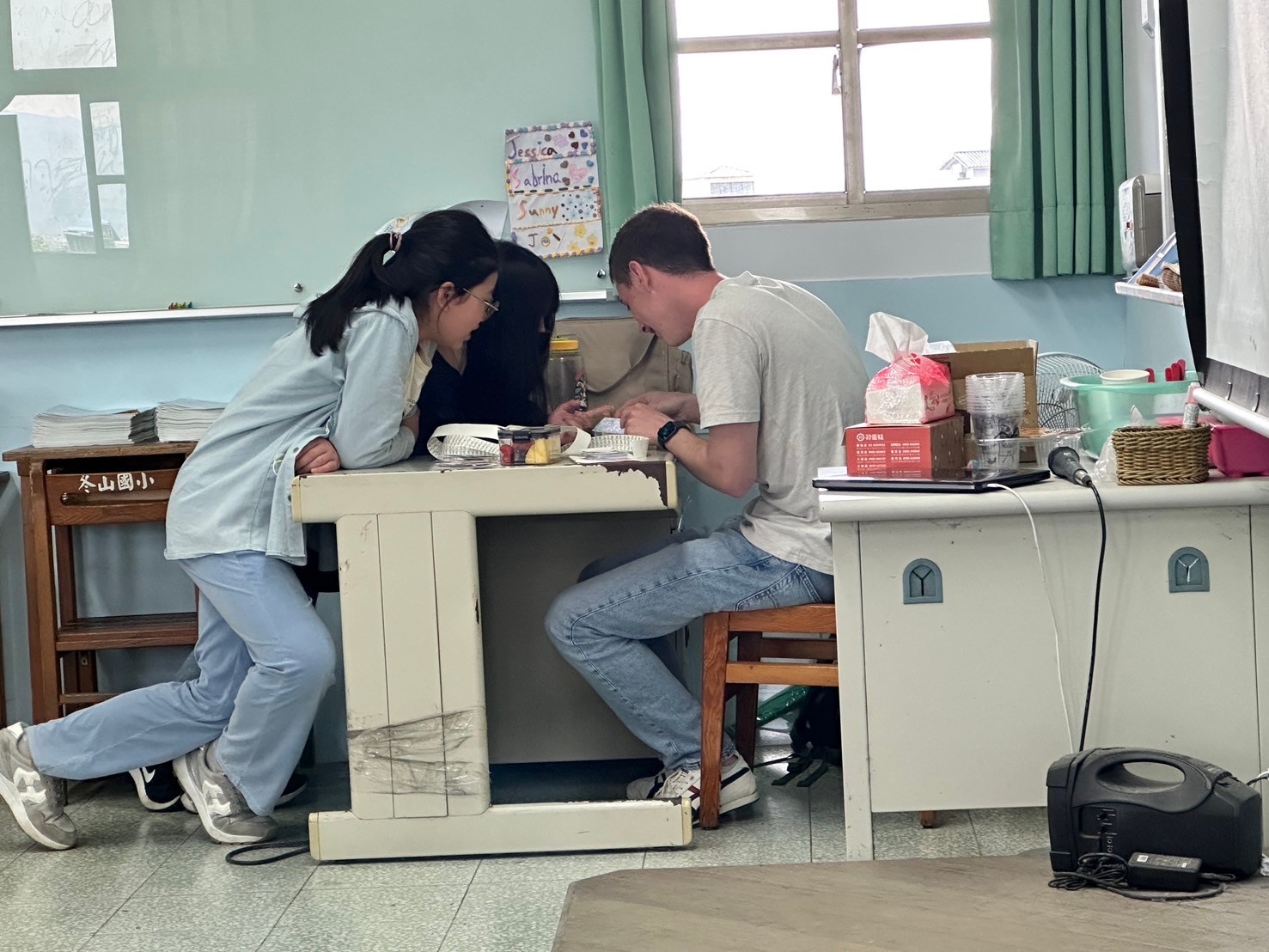
Some gifts needed careful instructions for opening.
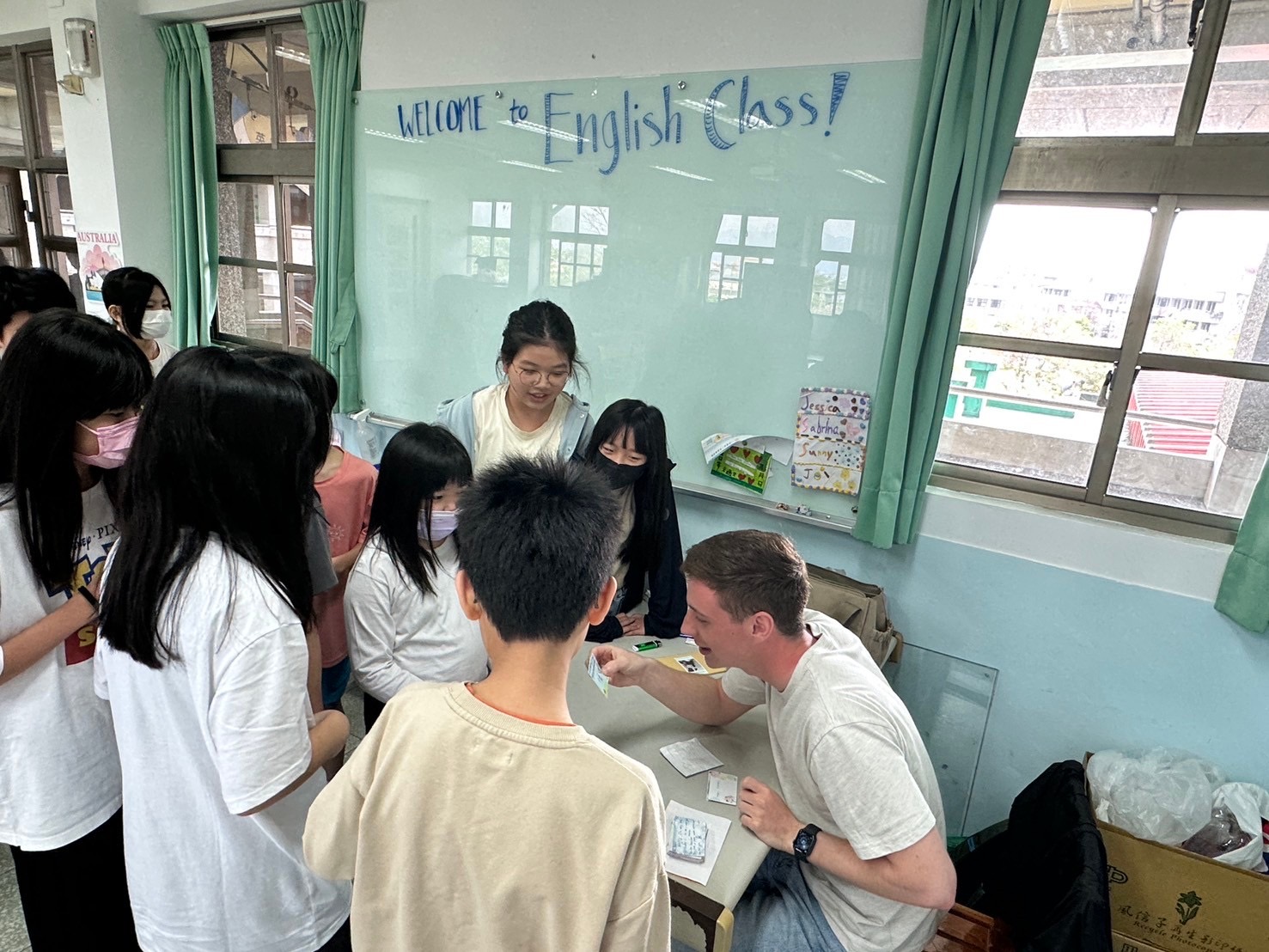
God this sunburn was so bad. But not the worst of the year…
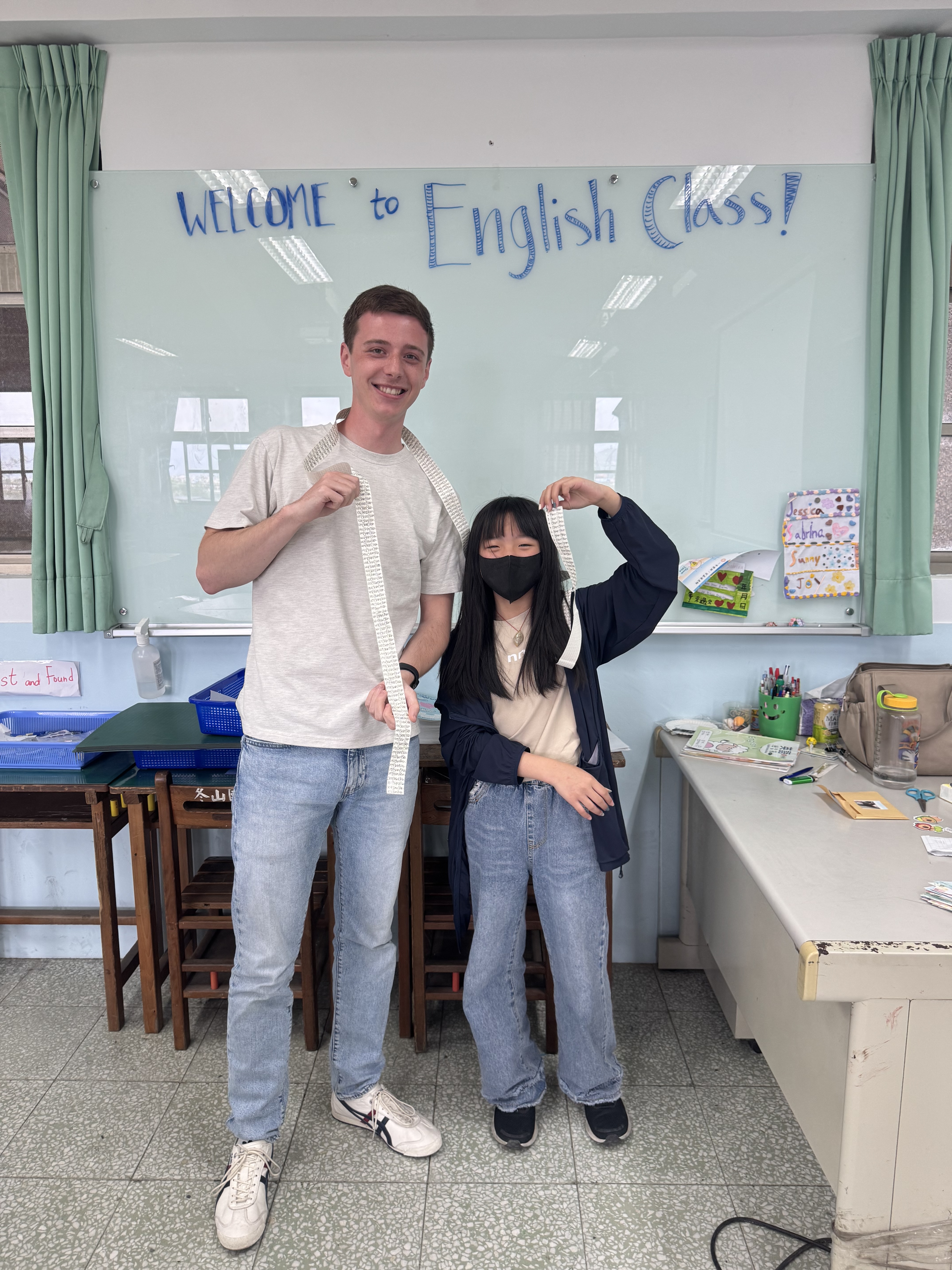
Sixth grader Mia wrote my name 303 times on a long piece of paper.

Yilan County Government Office, Yilan City. Made it on the news!

Yilan County Government Office, Yilan City. Our school in matching hot pink just before an 80+ degree 5k run.

Yilan County Government Office, Yilan City. High spirits and high temperatures.

Yilan County Government Office, Yilan City. Did not race well, but luck found me another way. Too bad I had to give it away at the end of the year.

Yilan County Government Office, Yilan City. Dongshan air fryer collection committee.
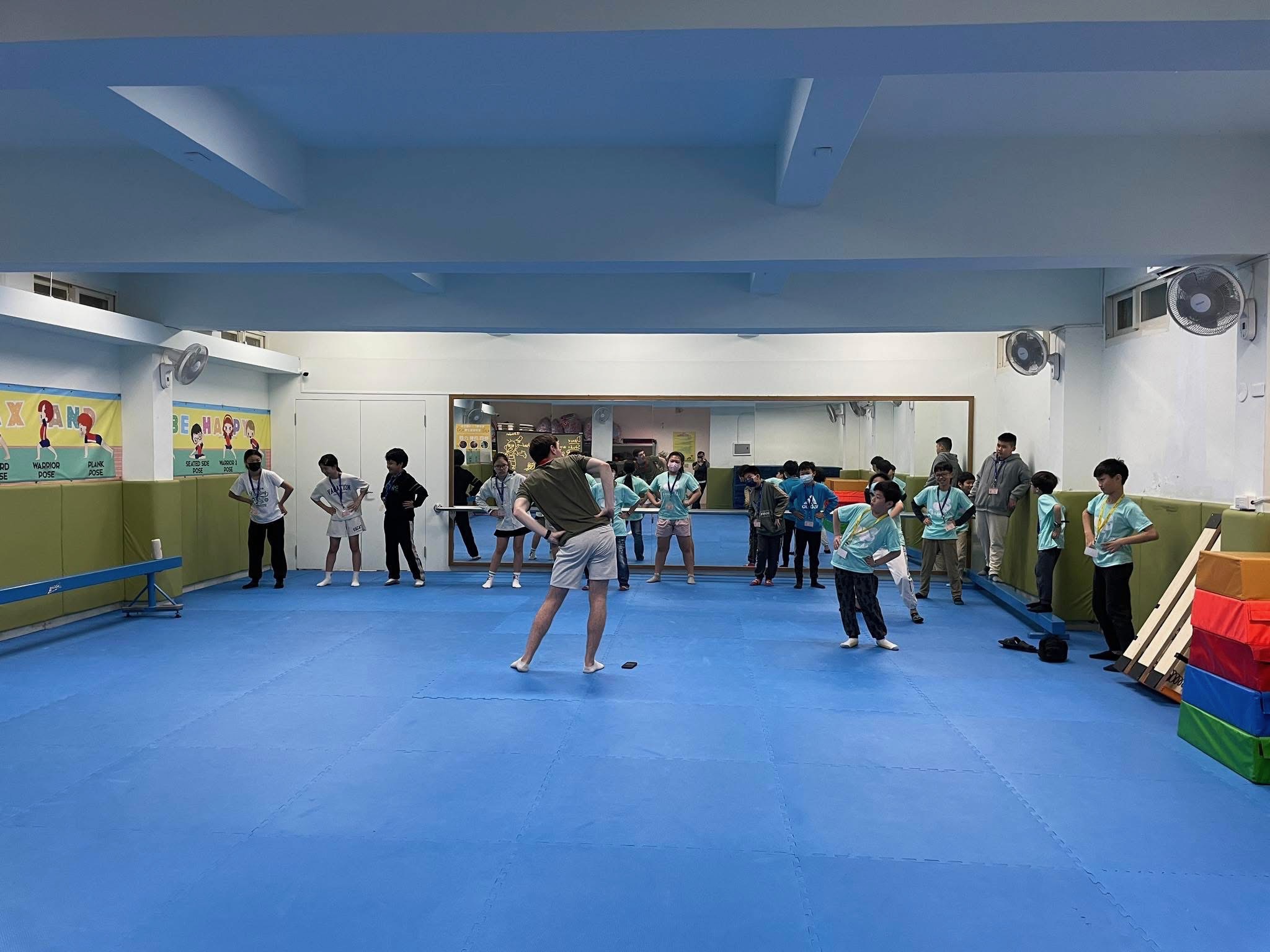
EV. Mid-macarena lesson.
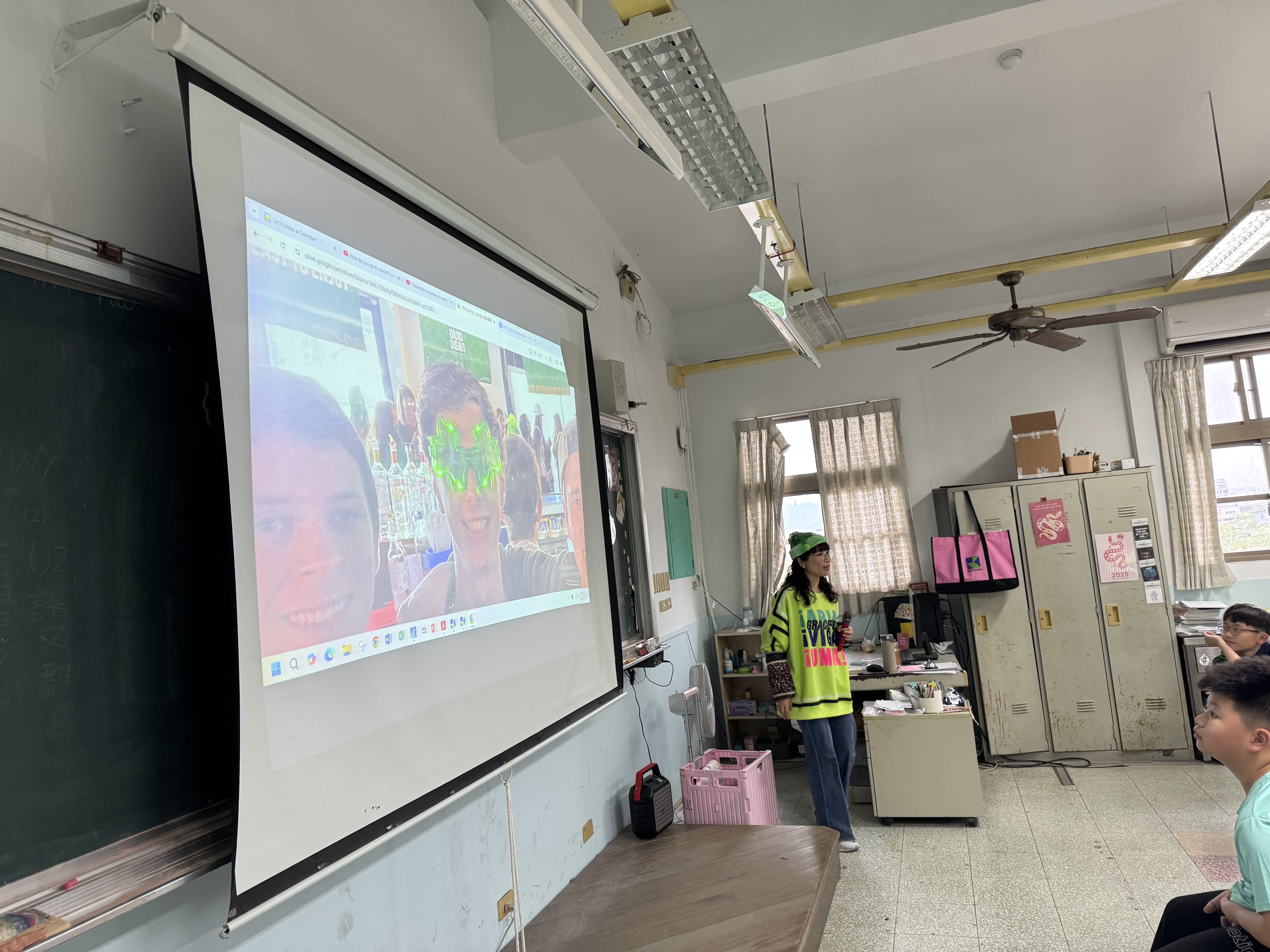
School. St. Patrick’s Day lesson. Tina is a particularly big fan of this western holiday because of her love for Boyzone, an Irish boy band from the 90s. They came to Taipei once while she was in high school and she’s been hooked since.
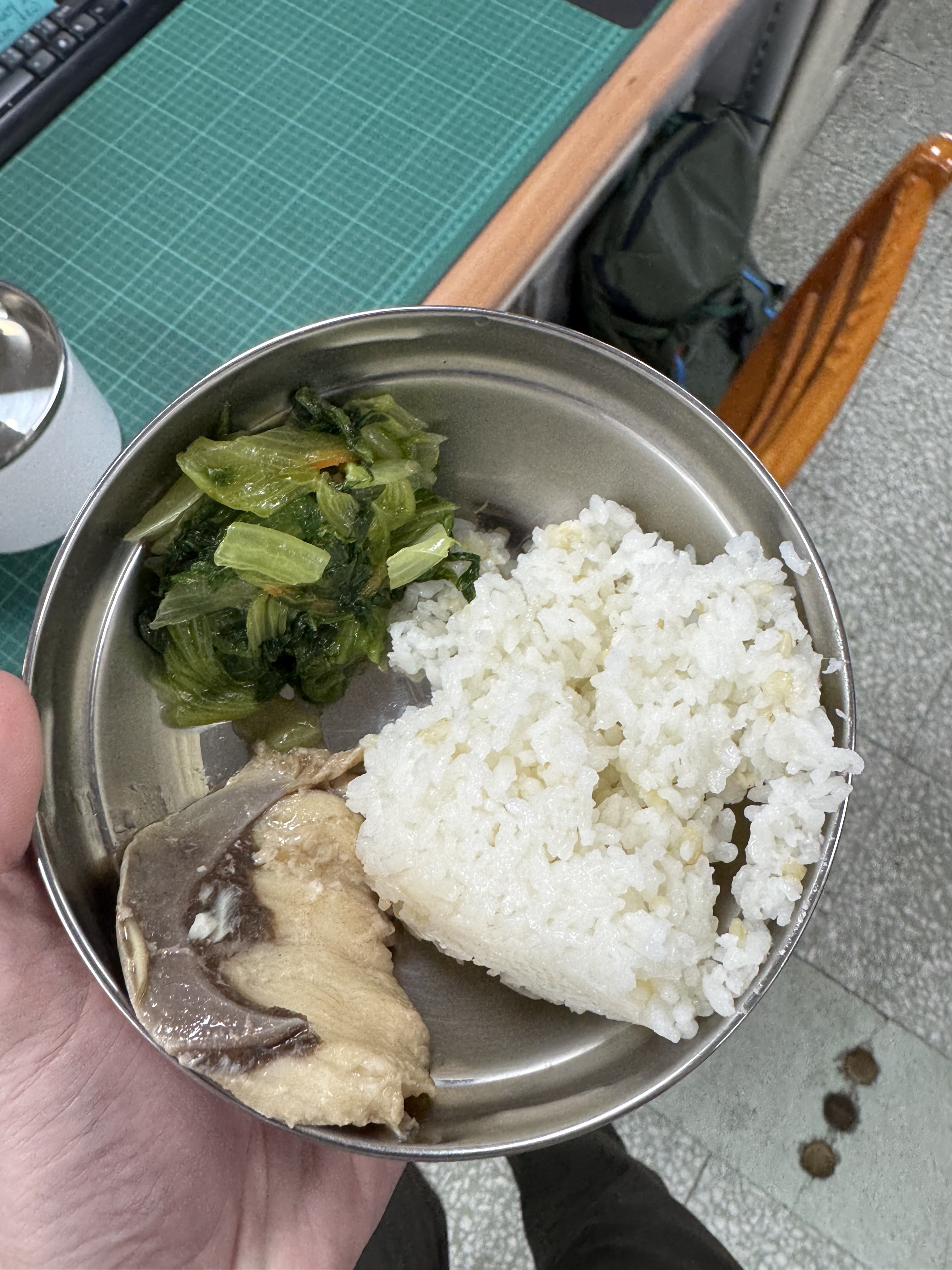
School. A pretty standard school lunch. Rice, fish, greens. While very affordable, I really have no good things to say about school lunch, and neither do the kids.
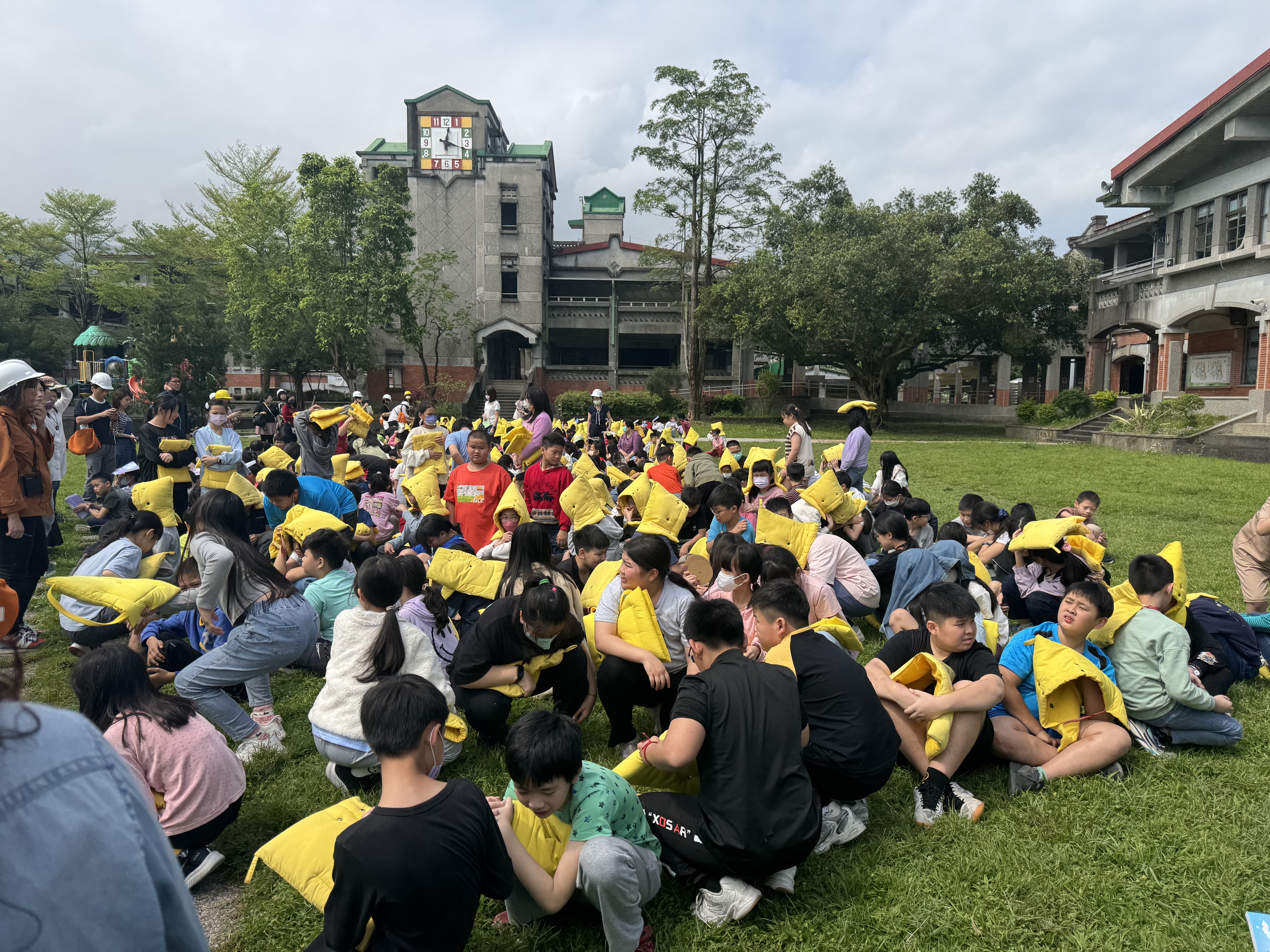
Earthquake at school! Nothing serious, but it put the readiness procedure to the test. First, phones will make an alert, usually several seconds before the earthquake can be felt, then in the classroom the projector will shake ever so slightly but certainly noticeable until the intensity peaks and you can really feel the whole building shake.
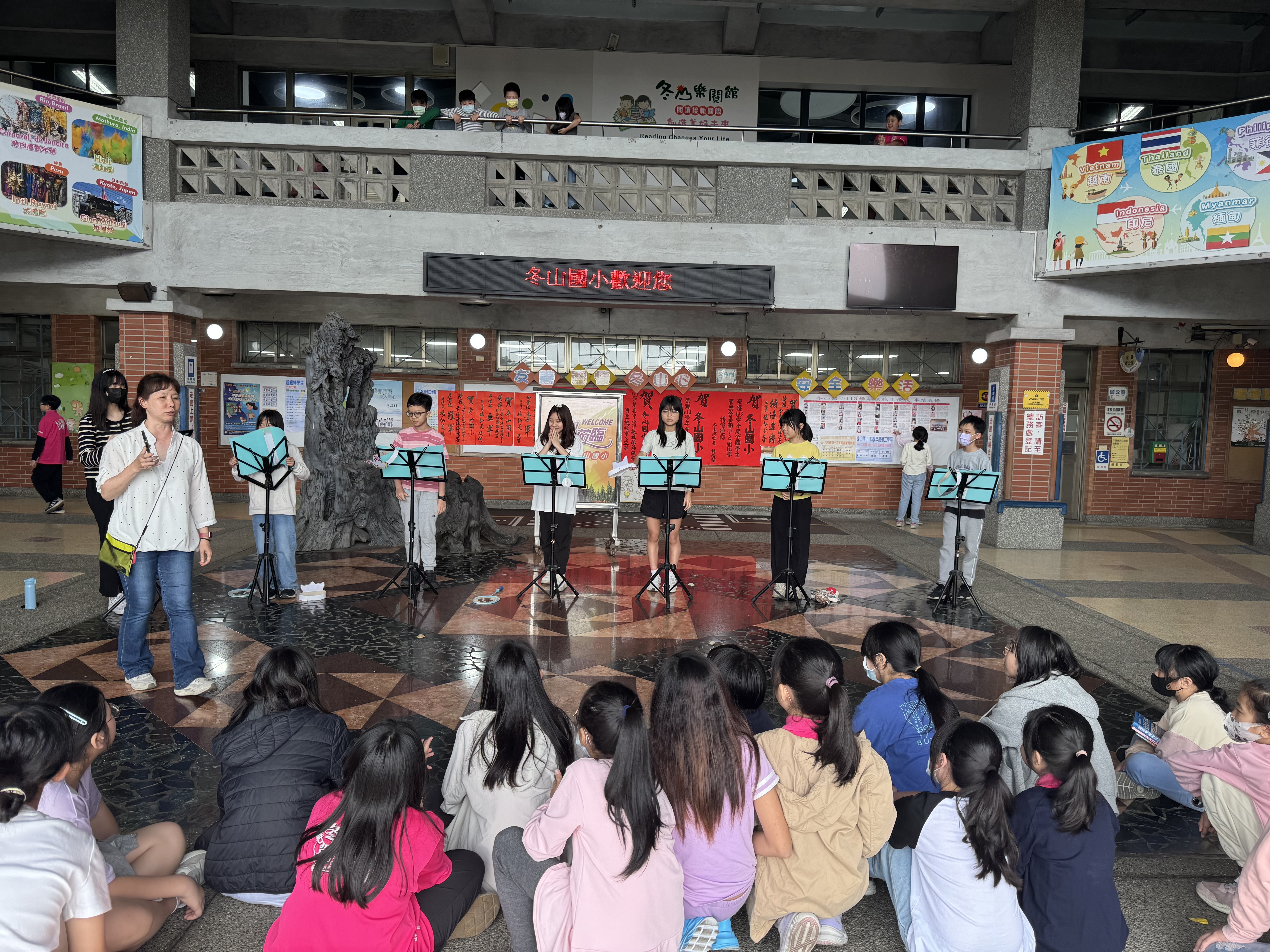
Rehearsing our English competition performance in front of an audience.
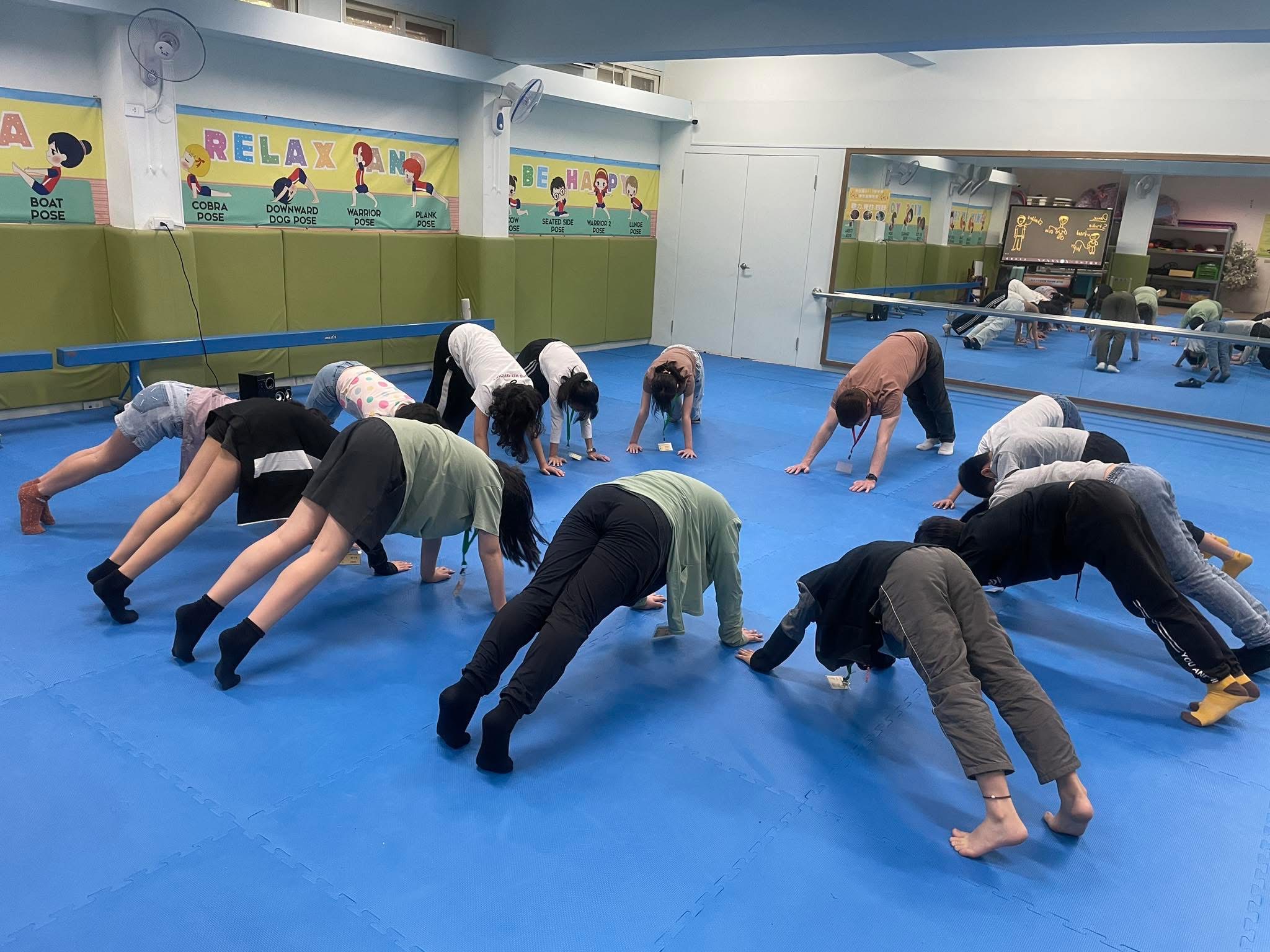
EV. Downward, dawg.
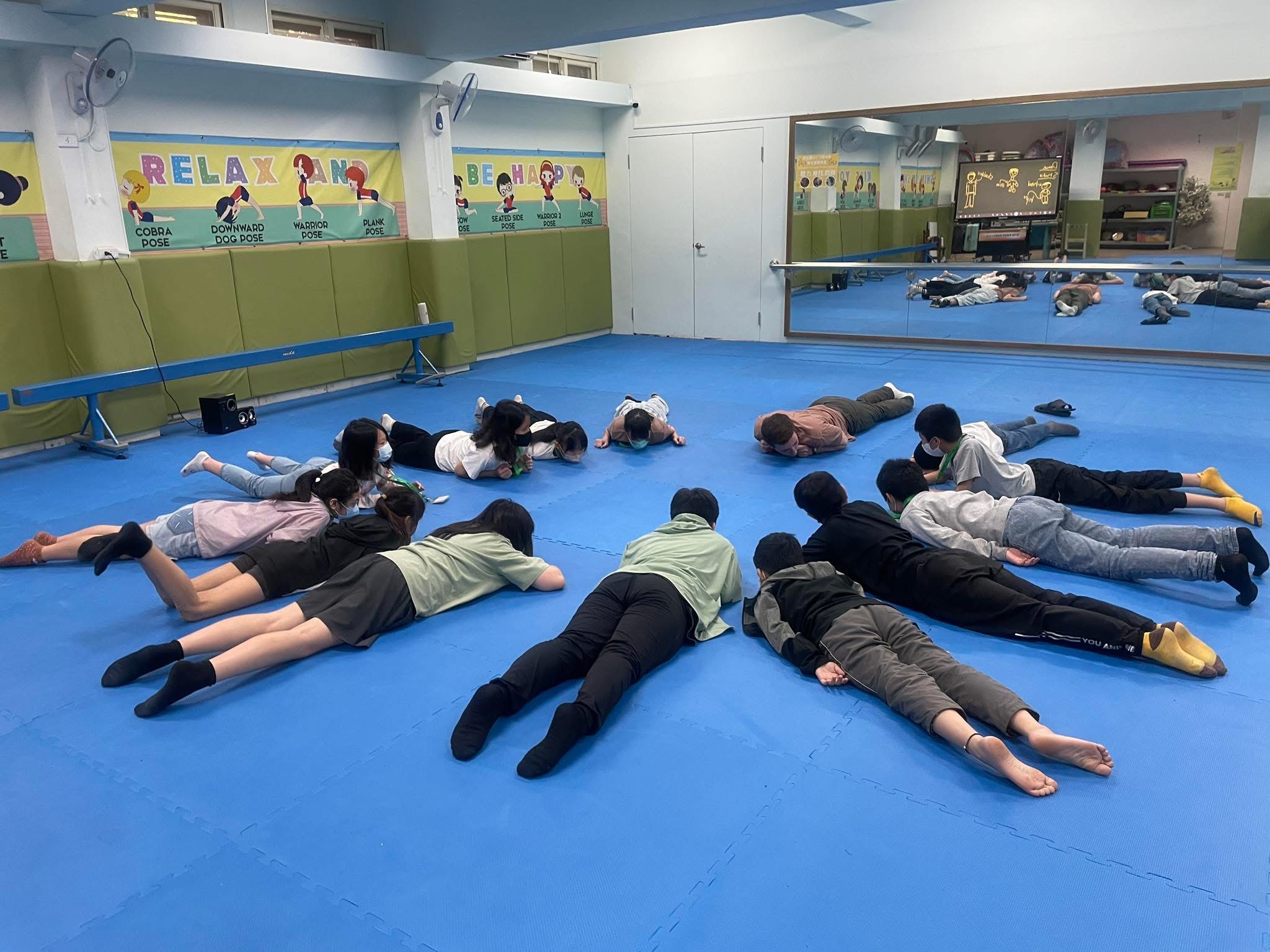
EV. A rest, but NO SLEEPING!
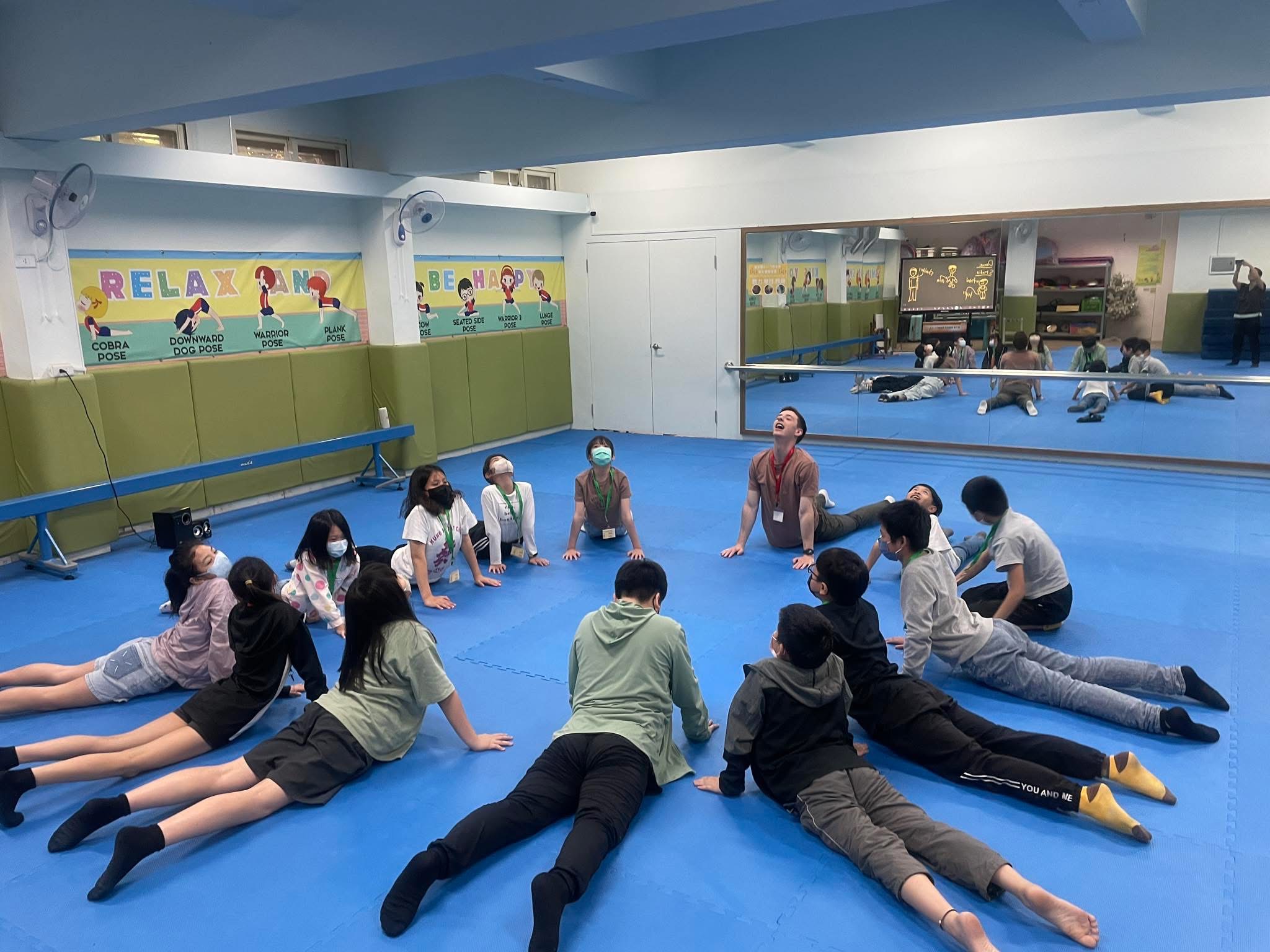
EV. Look up to the skies and seeeeee…
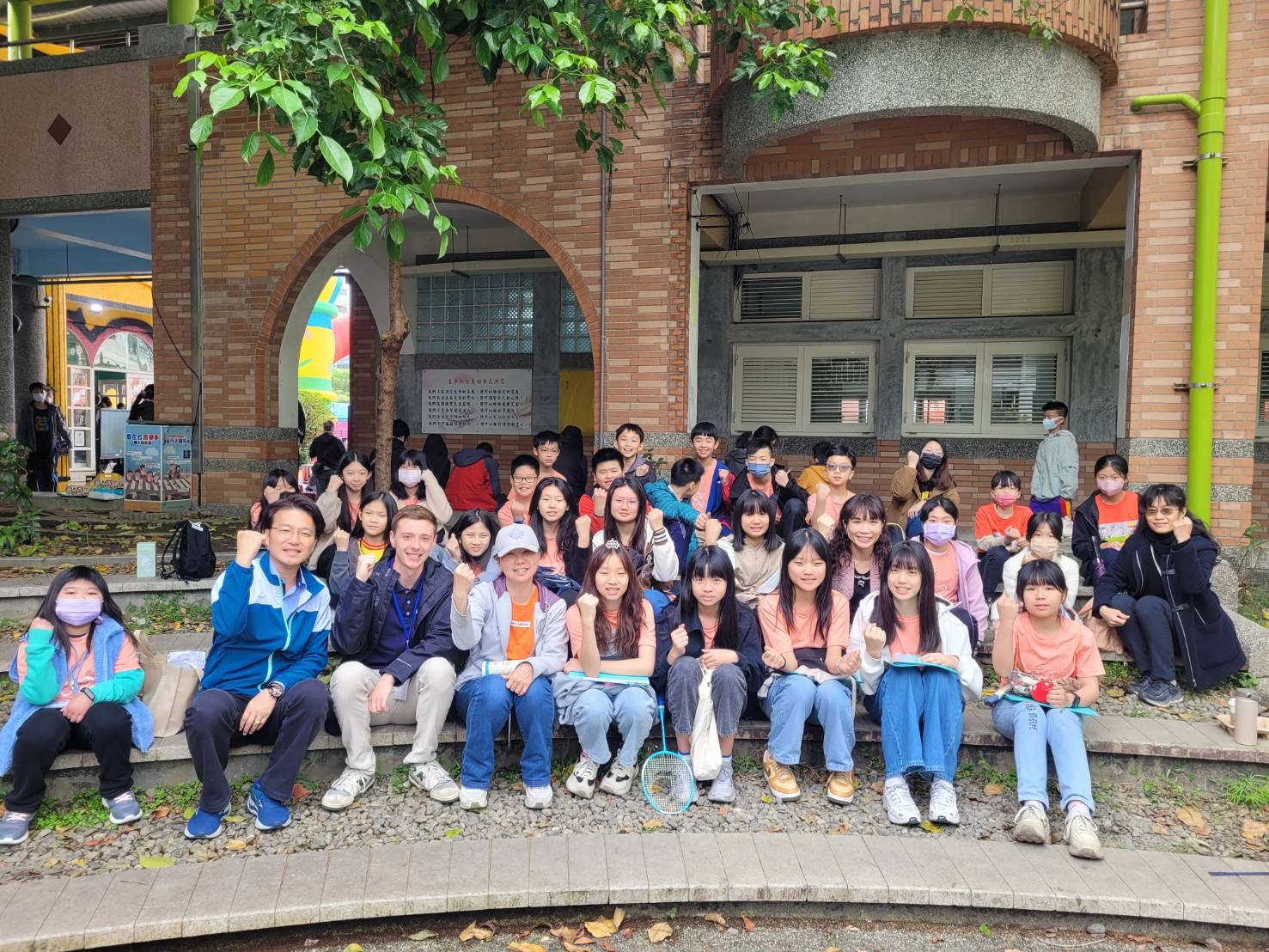
Xinsheng Elementary School, Yilan City. English Easy Go, the annual English competition. Kids compete in a spelling bee, individual and group speech competitions, and singing and dancing performances.
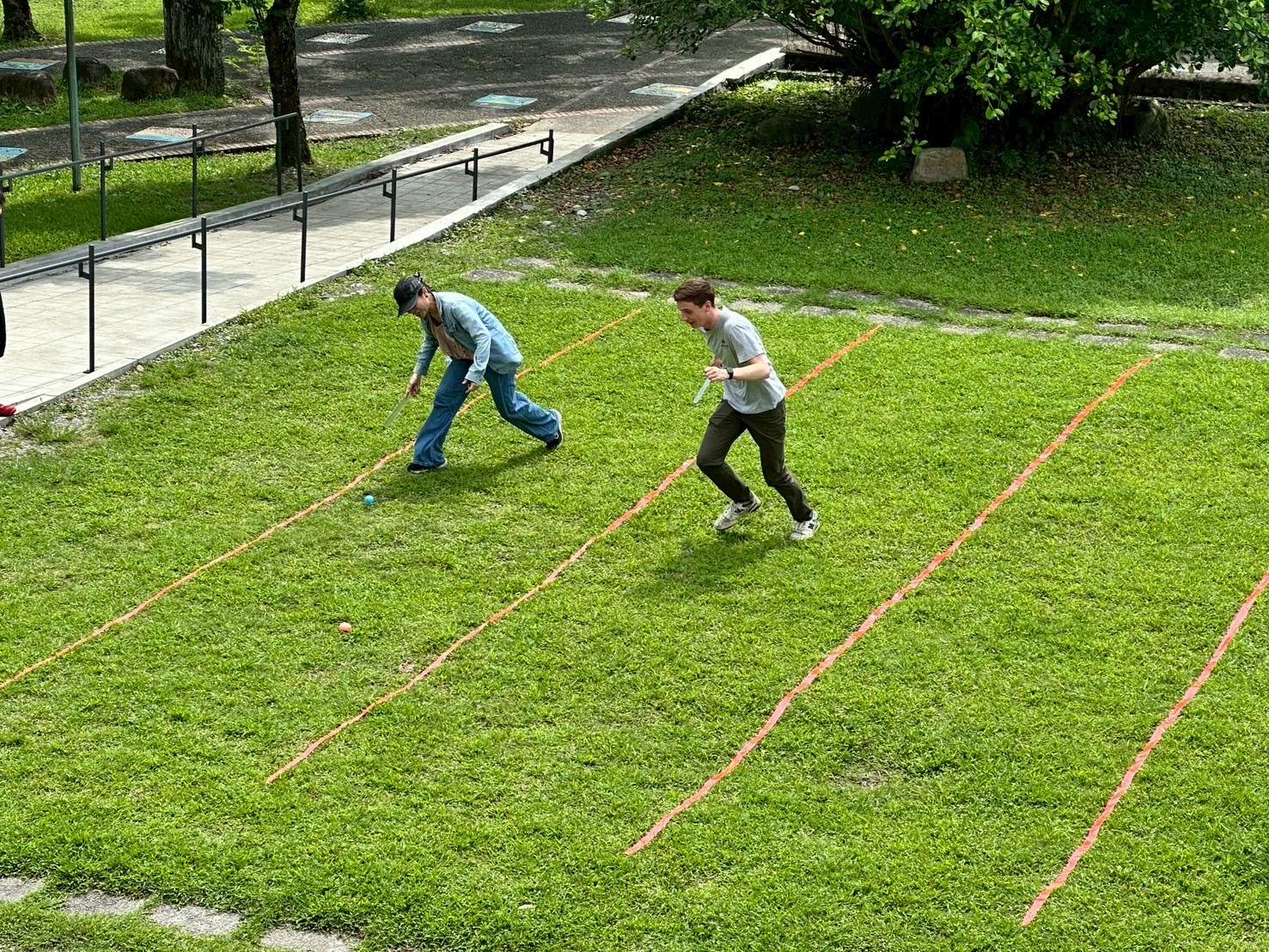
School. Tina and I racing each other in an easter egg roll, a tradition I had not heard of until this year when Tina informed me that the White House does it every year. Cool!
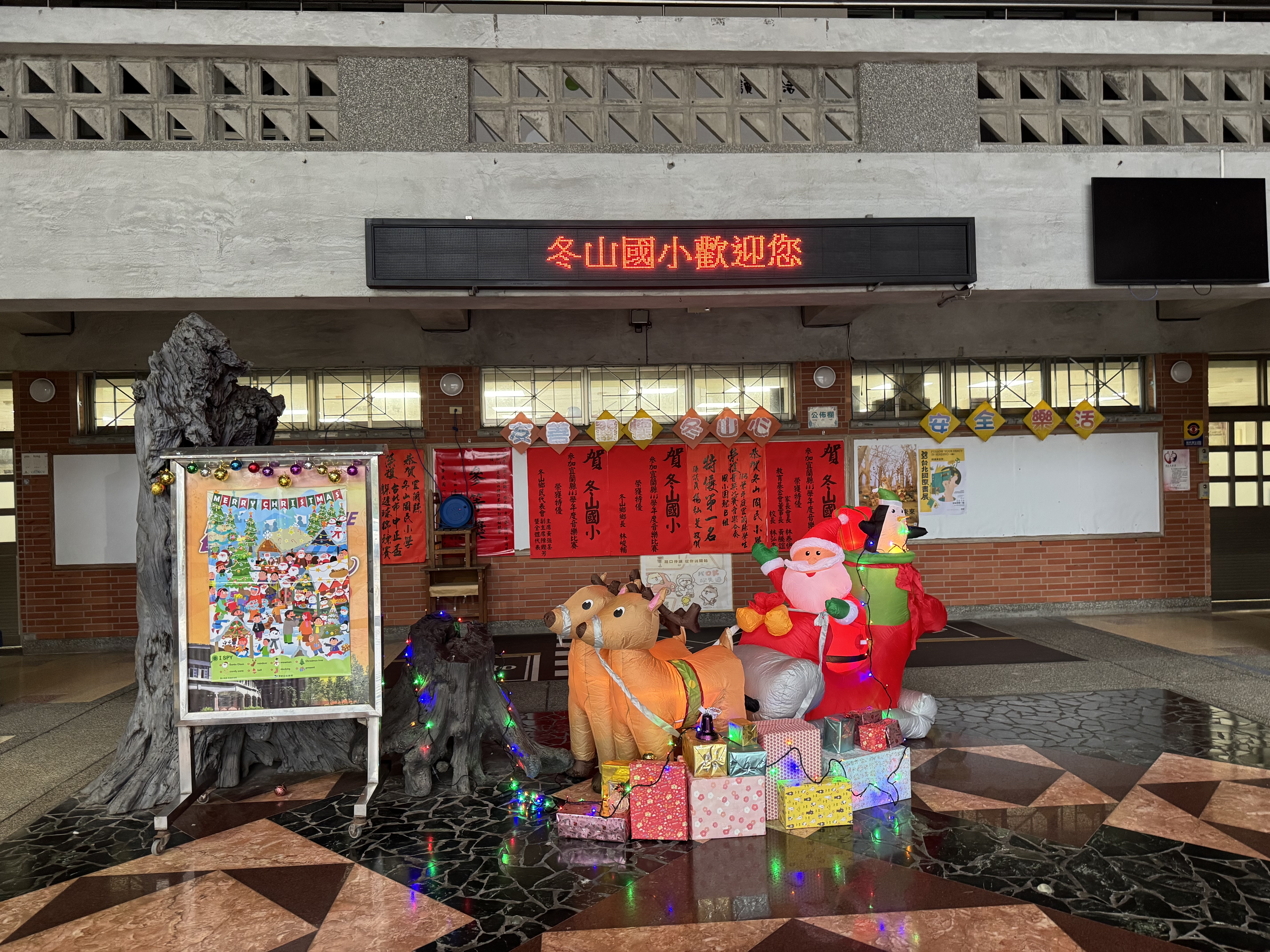
Christmas decorations in the school entryway.

(Left to right) Captain, Benson, Dean, me, Joe.

(Left to right) Olie, Hank, Sam, Hero.
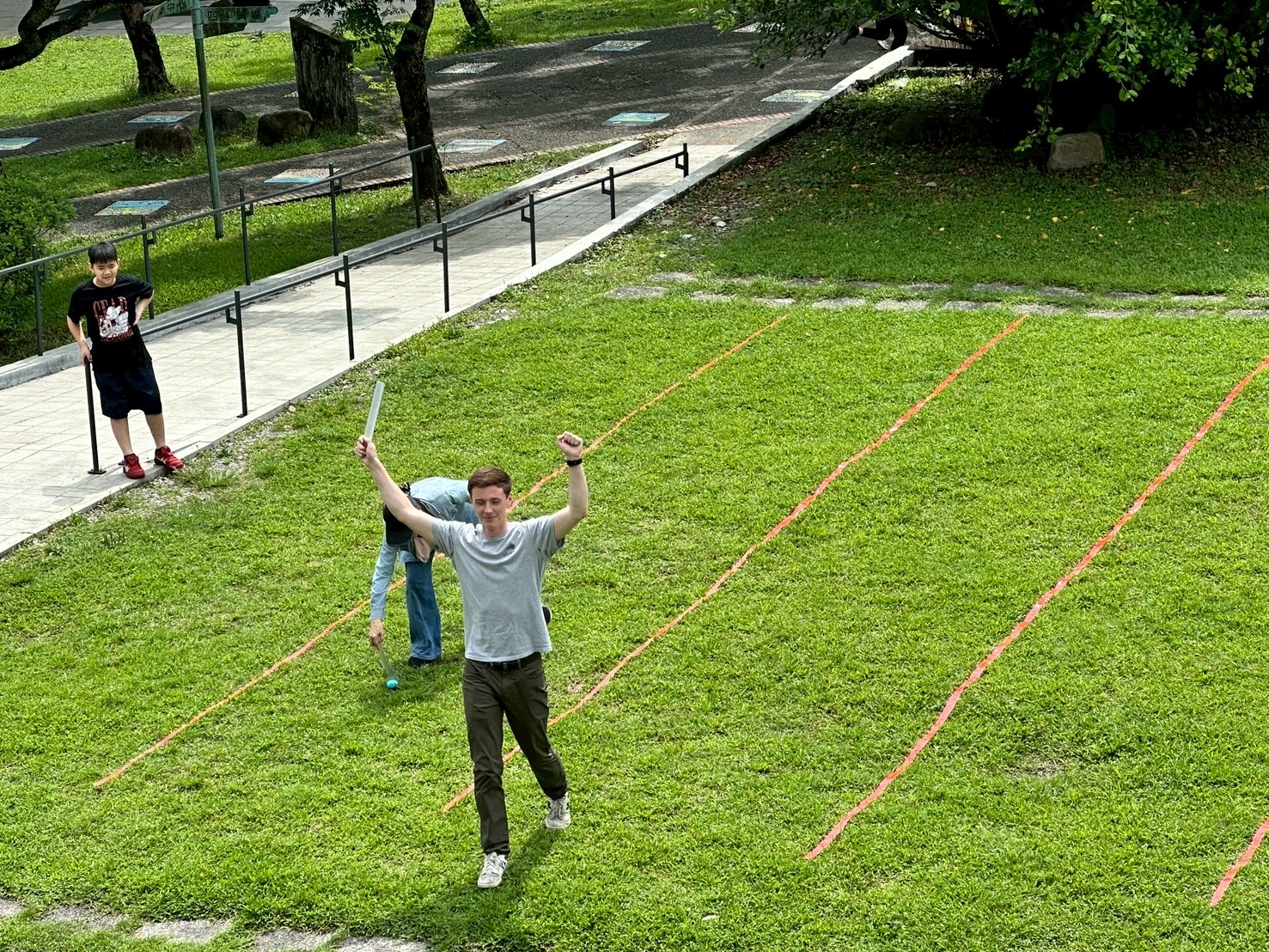
Victory.
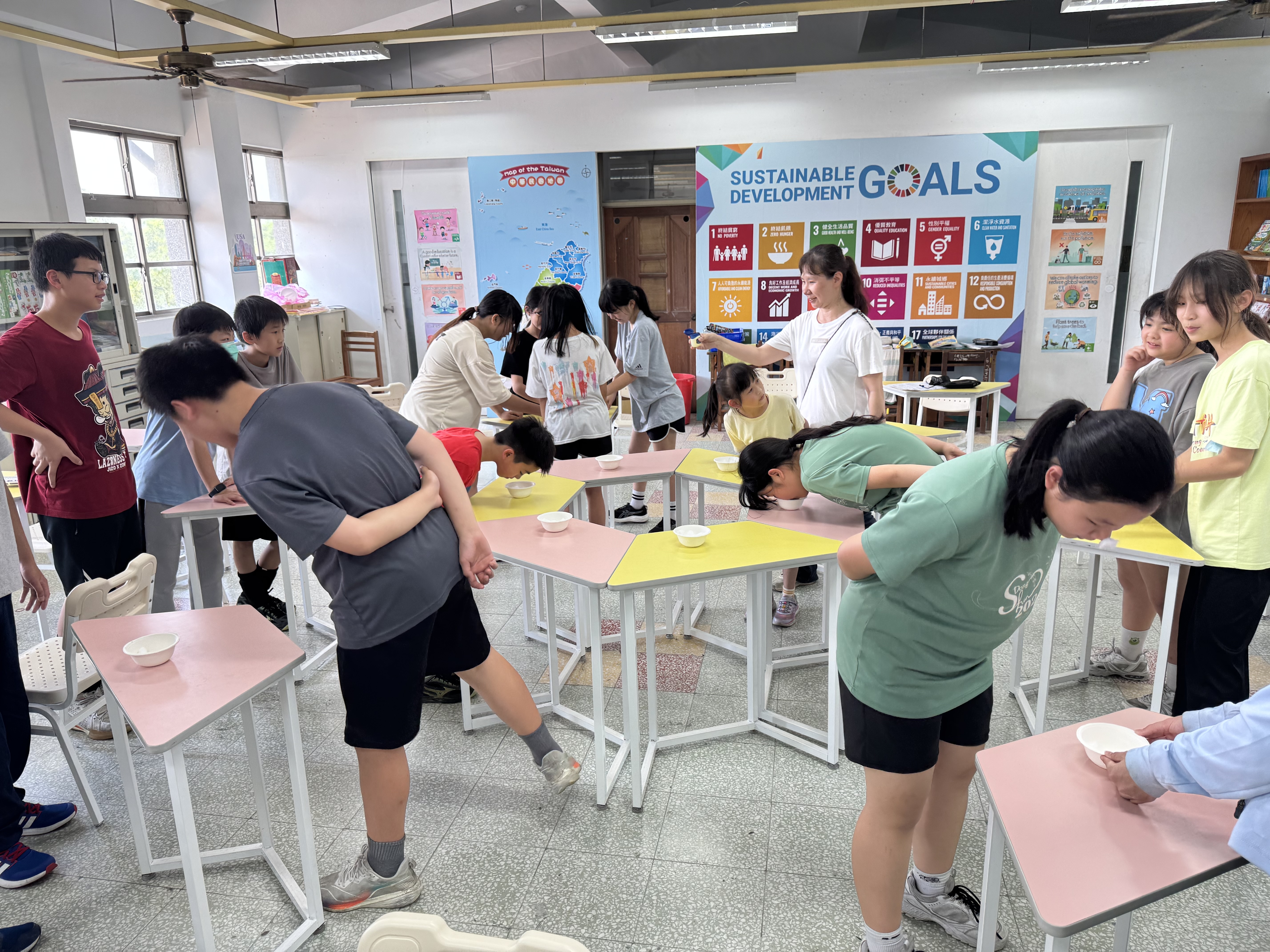
Minute to Win It: Easter edition. Vicks and cotton balls are all you need.
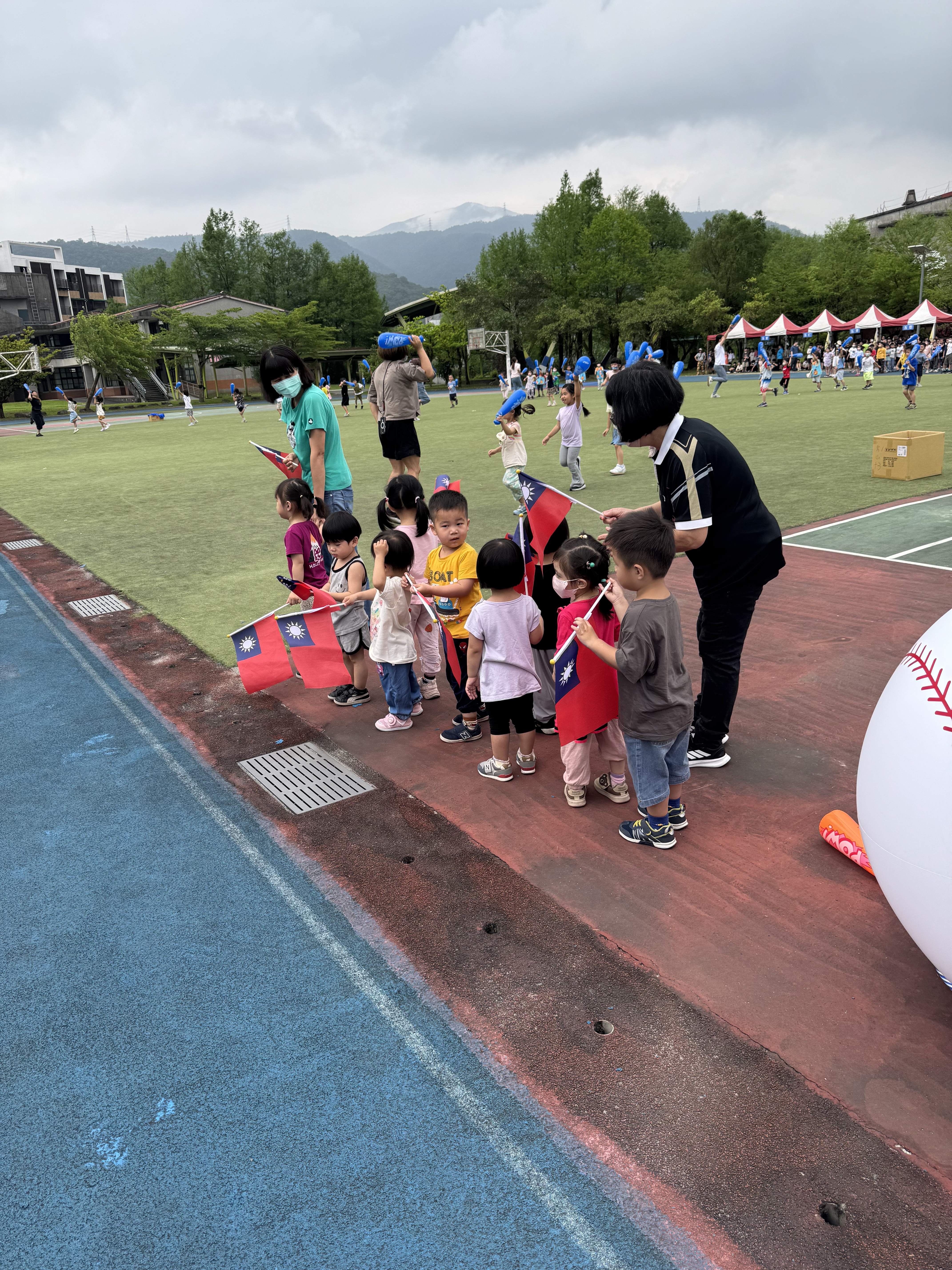
Preschool kids lining up for their sports day performance.
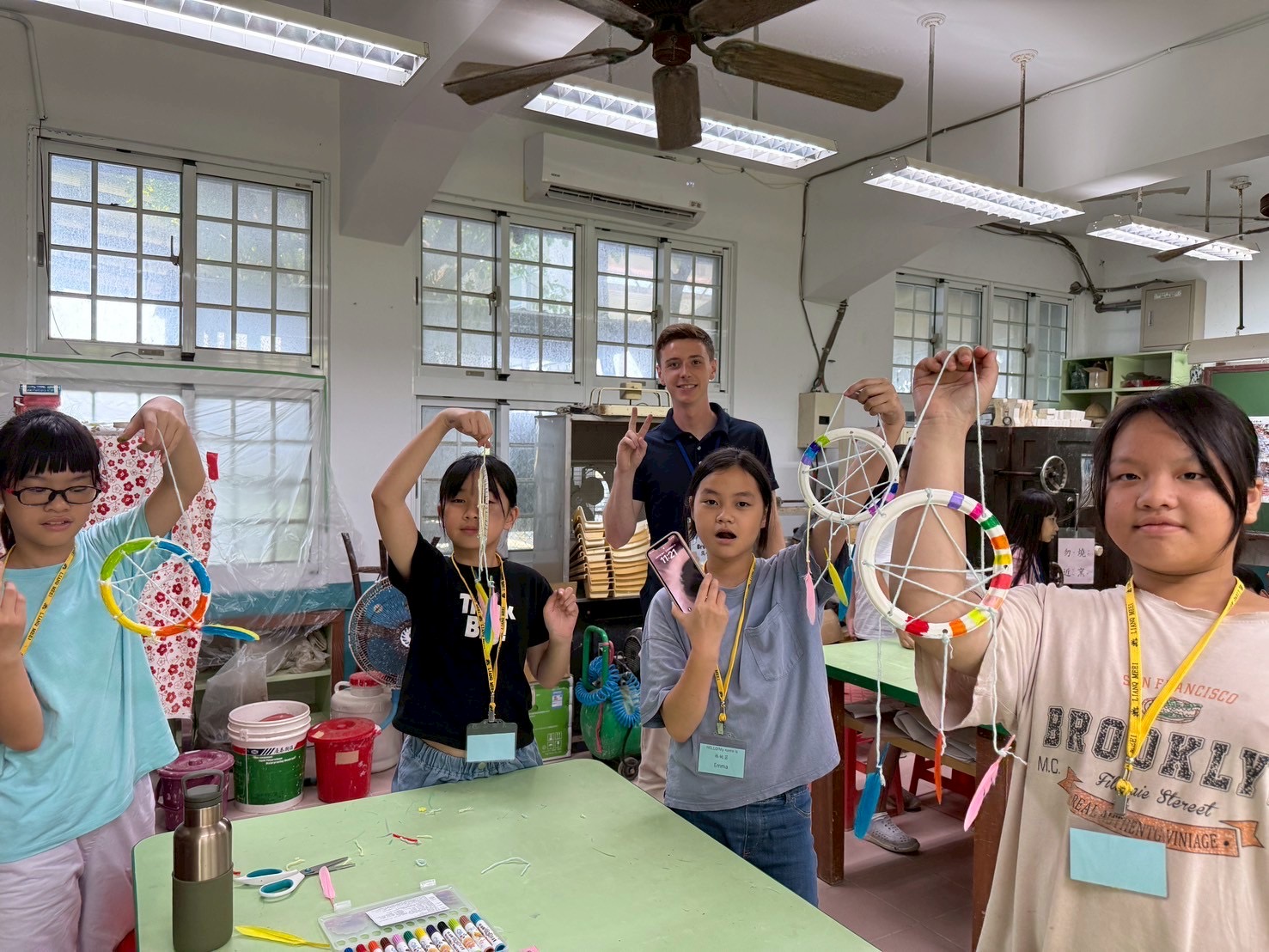
Dafu Elementary School, Zhuangwei Township. Second semester English Camp. Dream catchers this time.
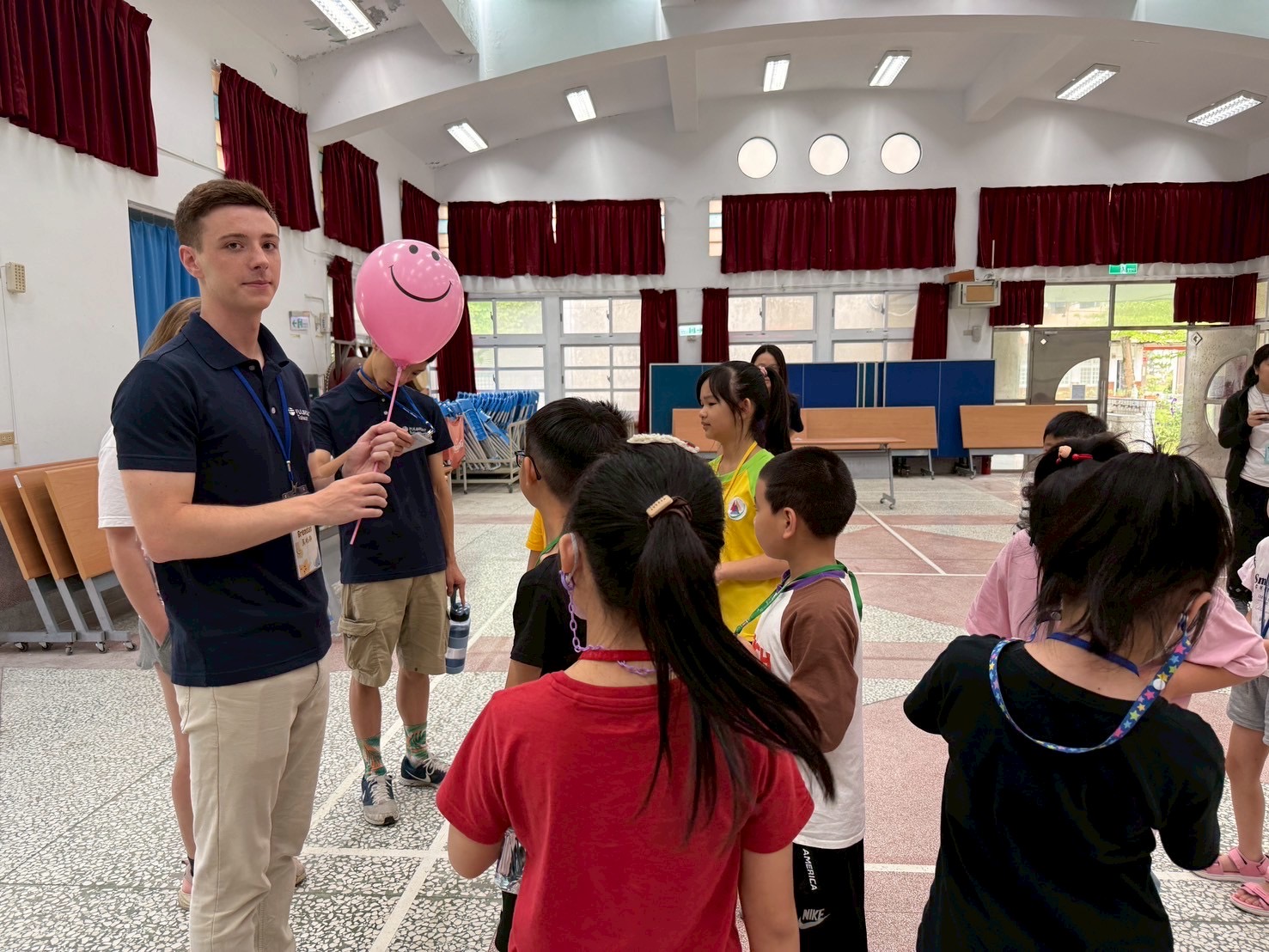
Dafu Elementary School, Zhuangwei Township. Team pink.
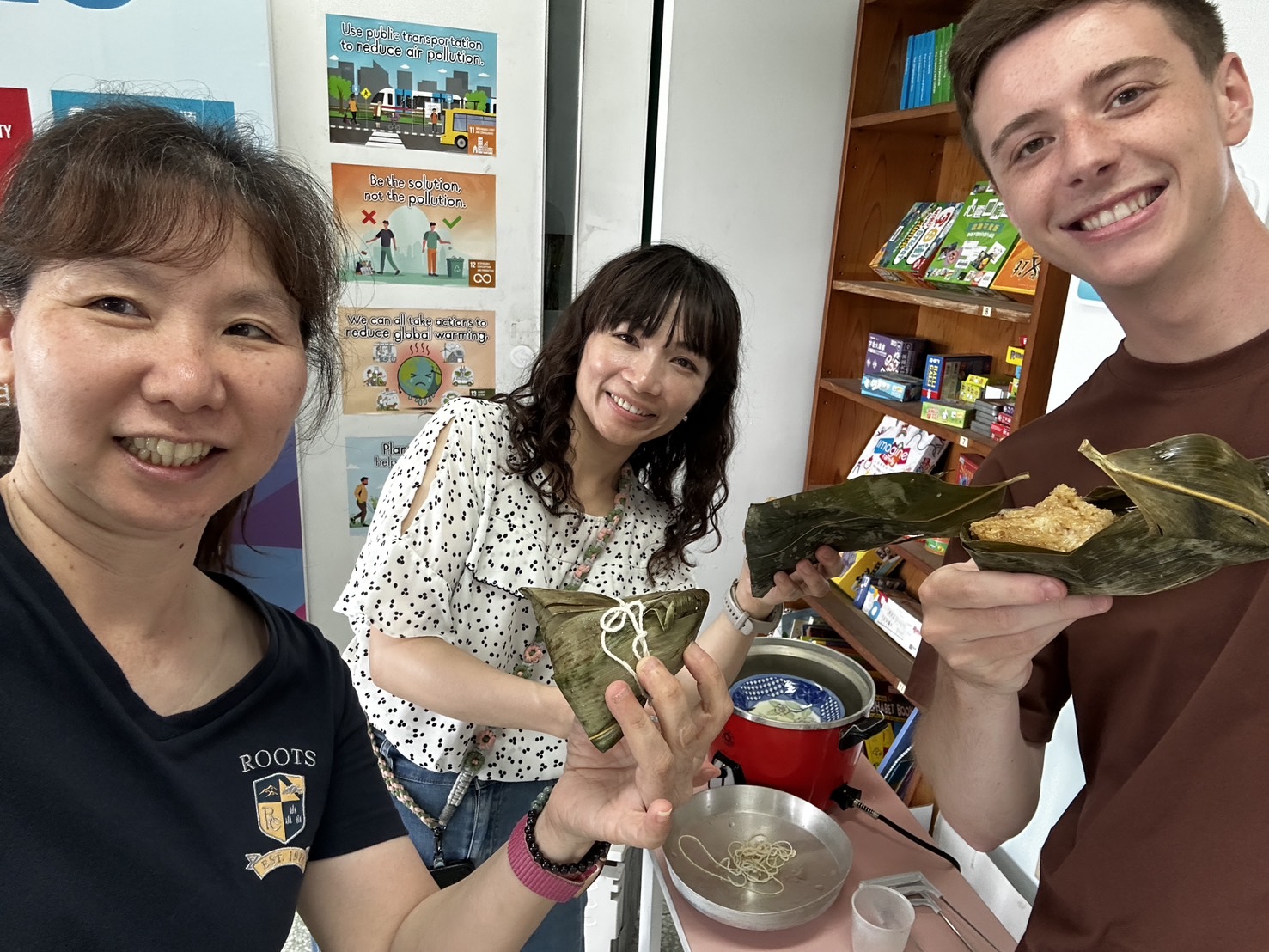
School. Zongzi, rice dumplings, for Dragon Boat Festival. Thank you to my host family for supplying me with a pack of them, and Jennifer for bringing her steamer in to school to cook them because my apartment only has a sink and a fridge!
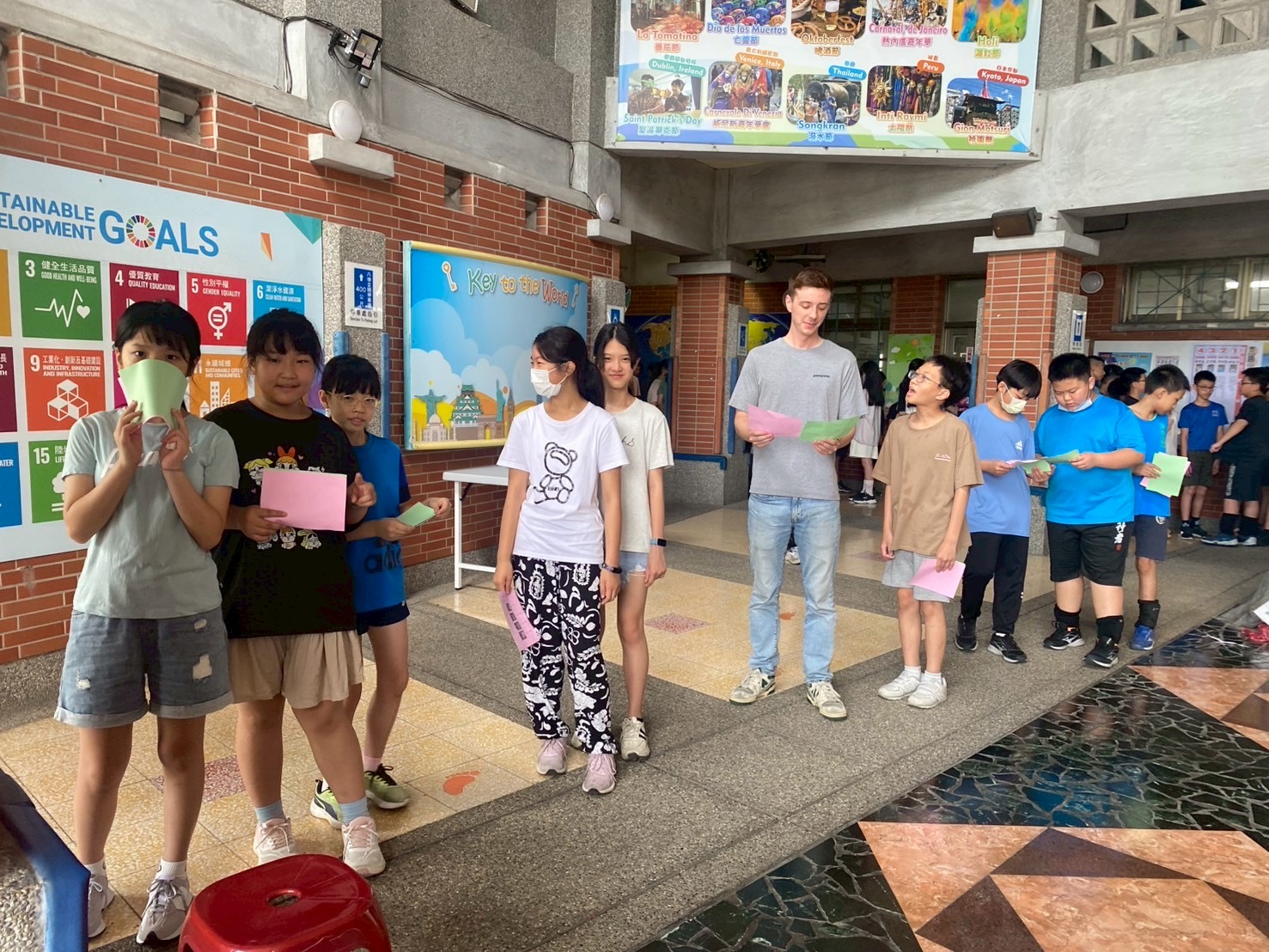
Election day for new student leaders at school.
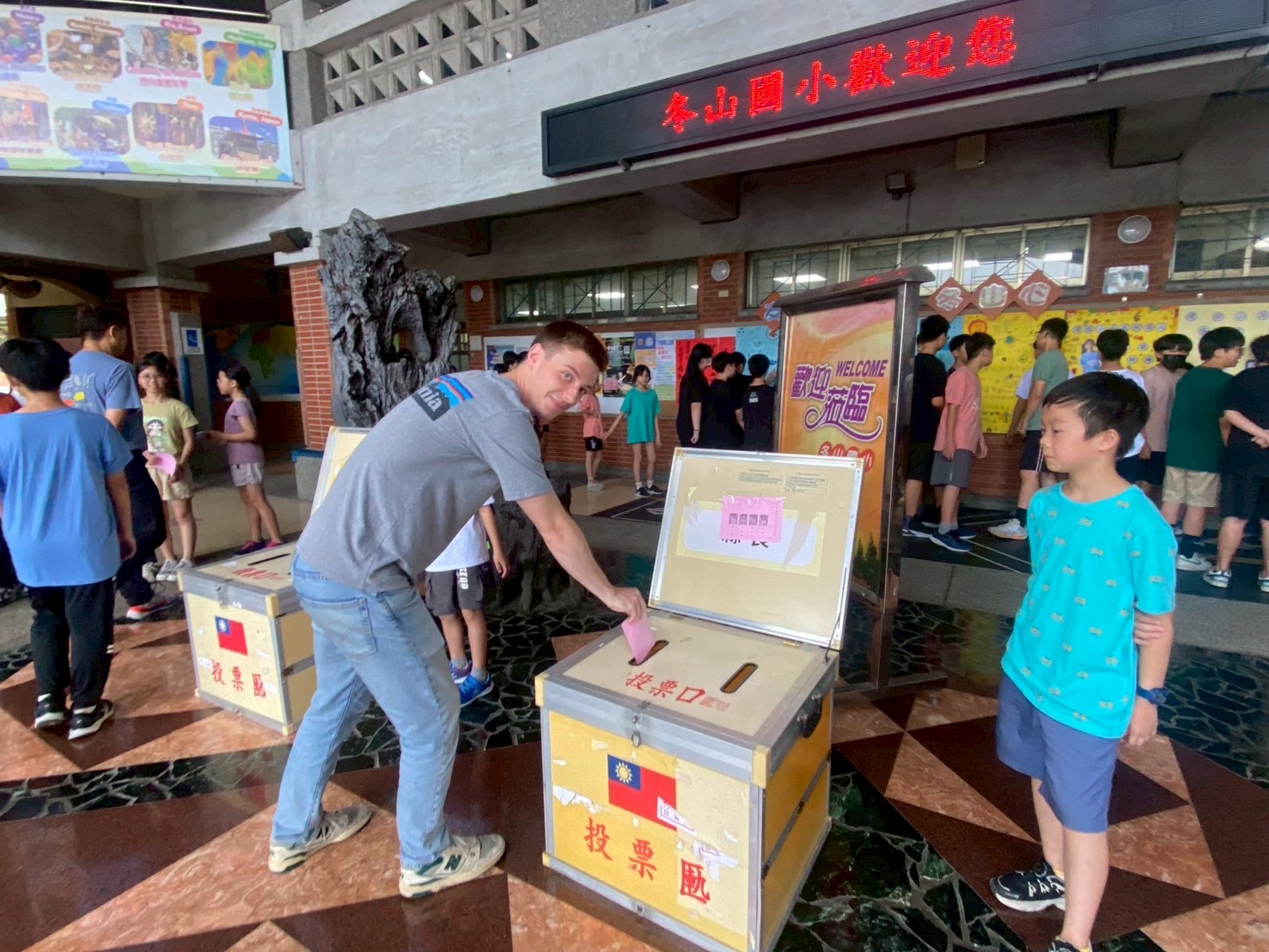
I voted!
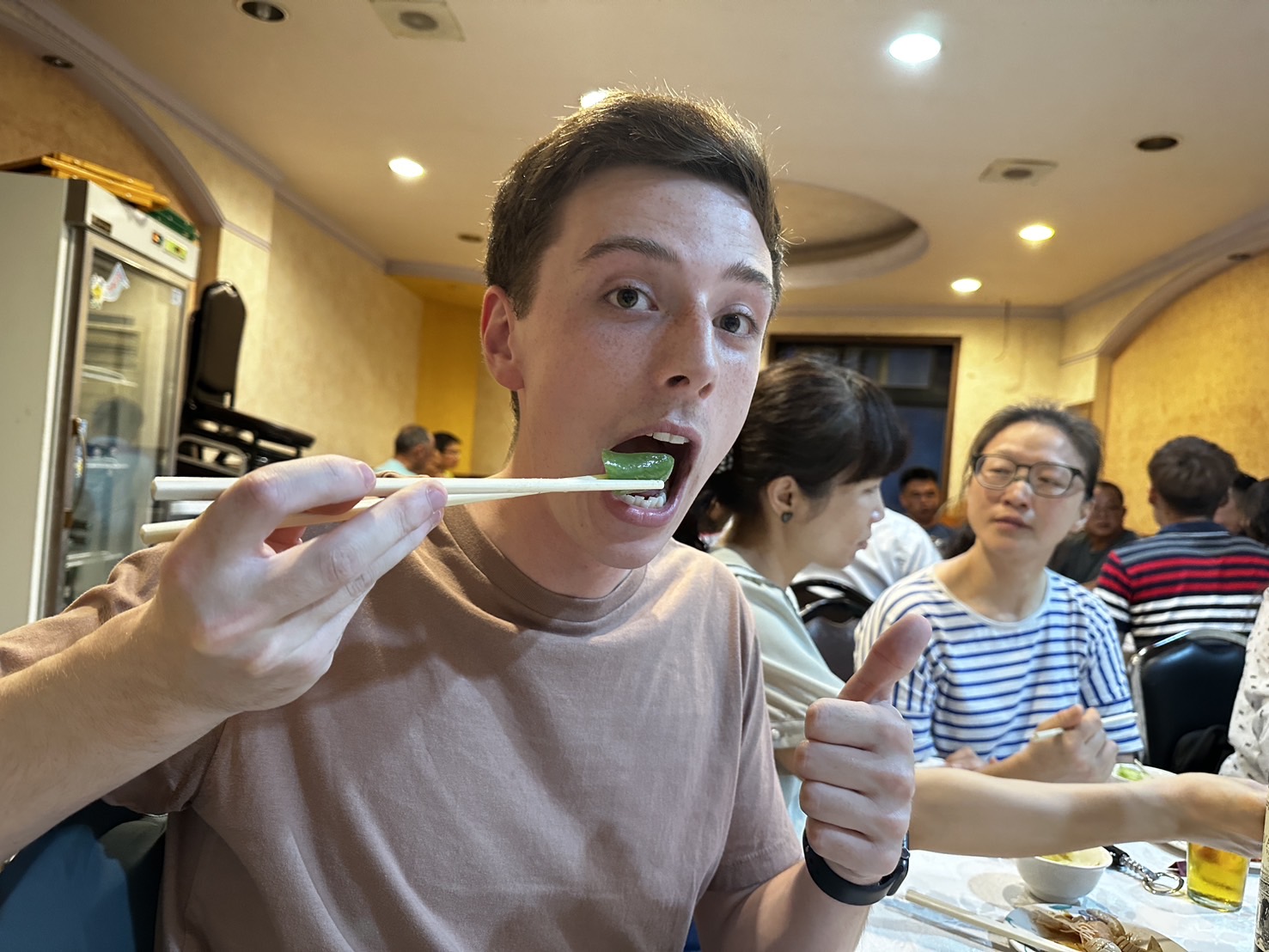
Mingguan Restaurant, Luodong. Staff dinner.
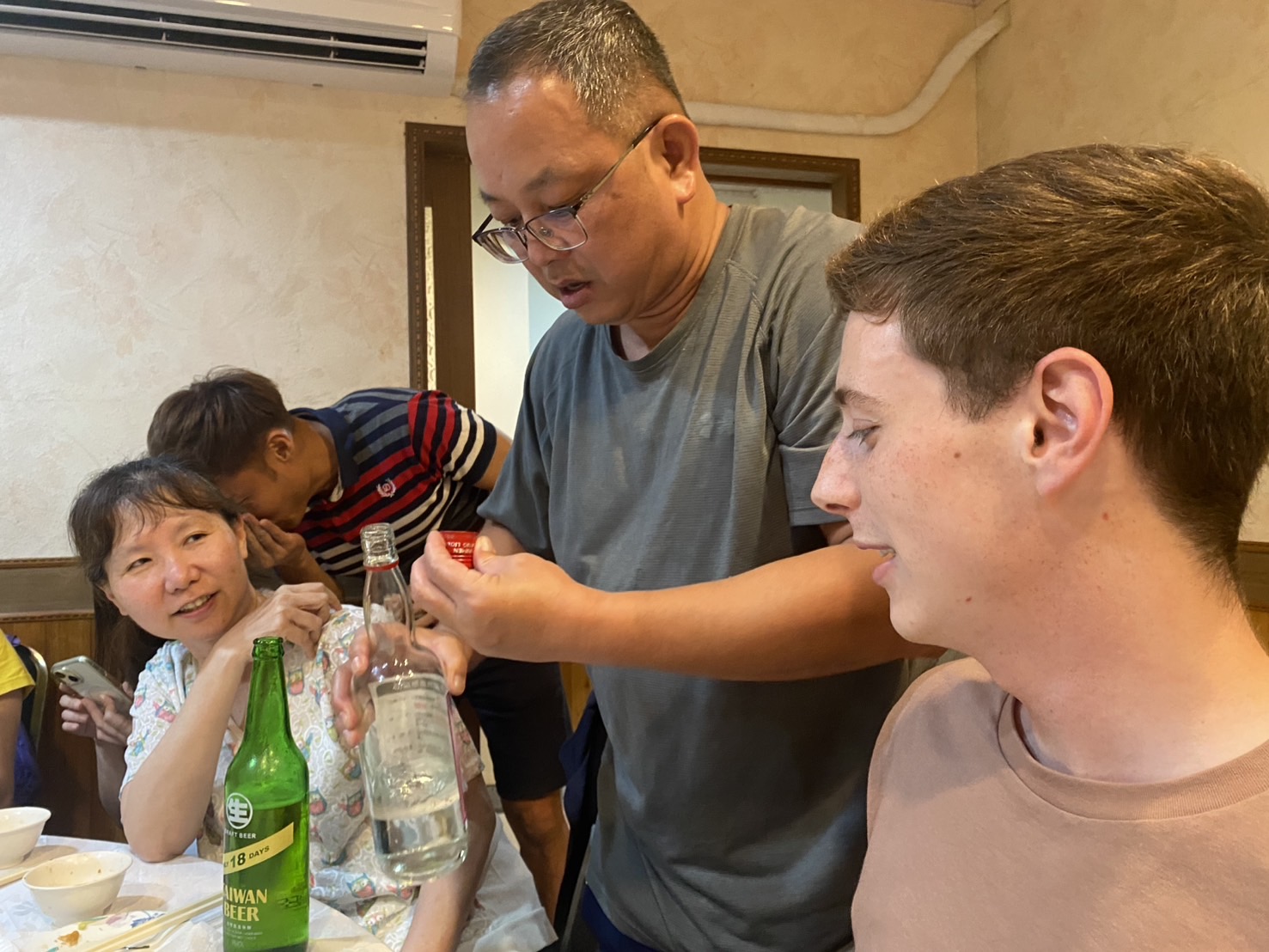
Mingguan Restaurant, Luodong. Instructions for this meal were: Don’t drive here.

Mingguan Restaurant, Luodong. Me and the principal pinky promising that I’d stay another year and marry his daughter. And that I’d have to call him father.
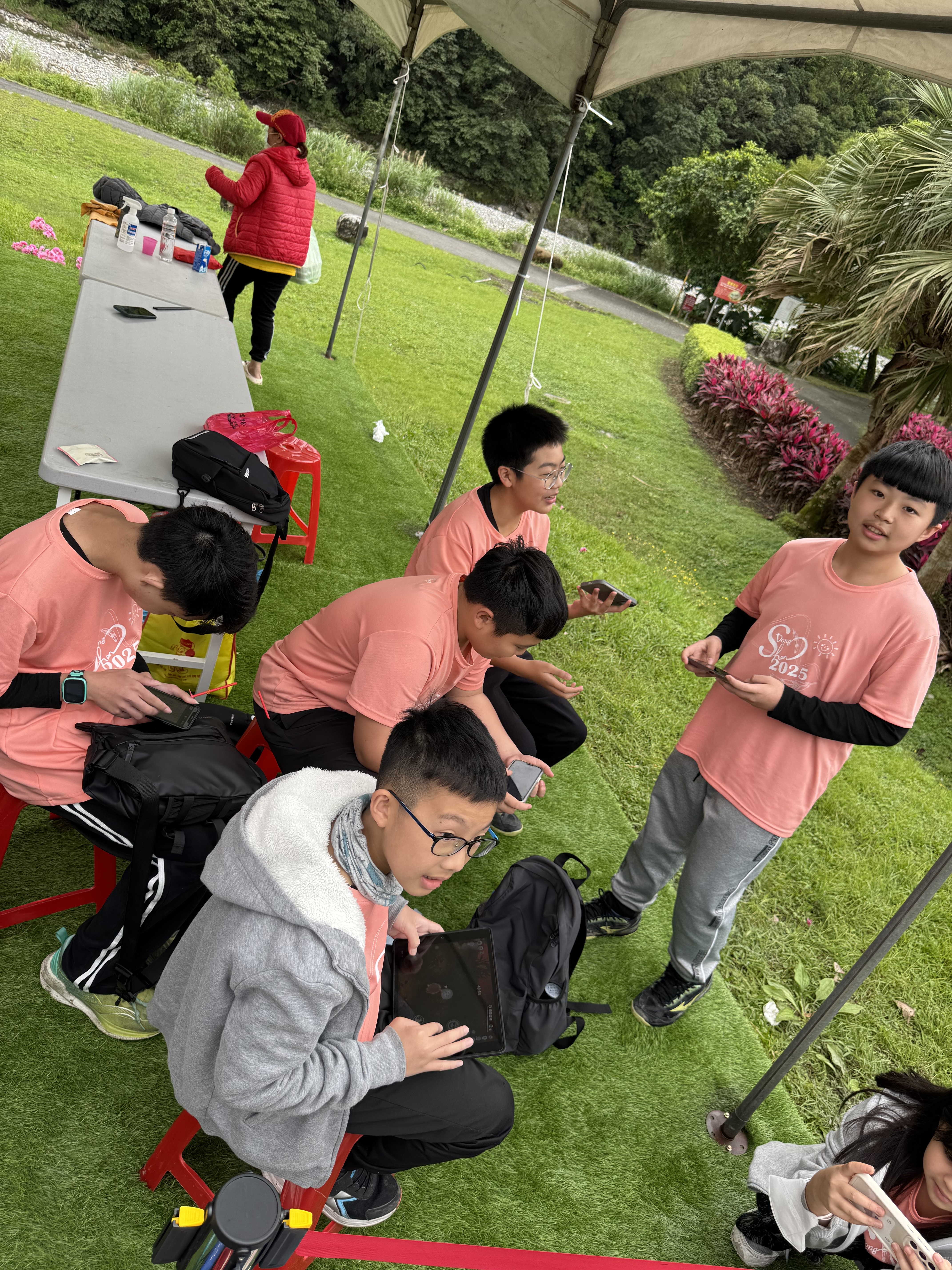
Green Expo, Su’Ao Township. Field trip with the kids. Gamers.

Xinsheng Elementary School, Yilan City. Posing with my twin. Mr. Brown is a well known coffee brand here in Taiwan and it’s also the name my co-teachers called me for the first couple weeks at school. Fitting.
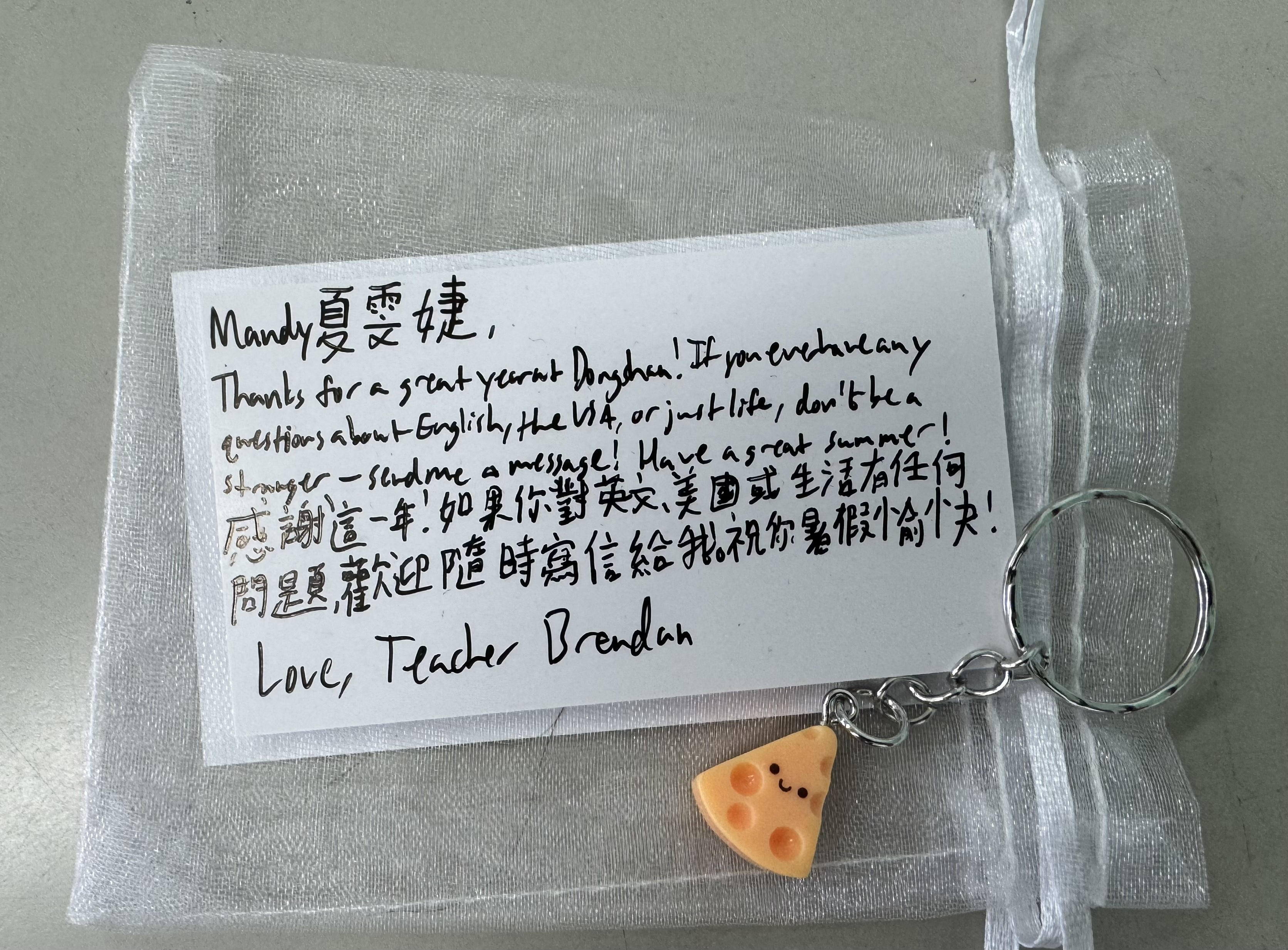
A gift bag I gave each of my sixth graders before graduation.
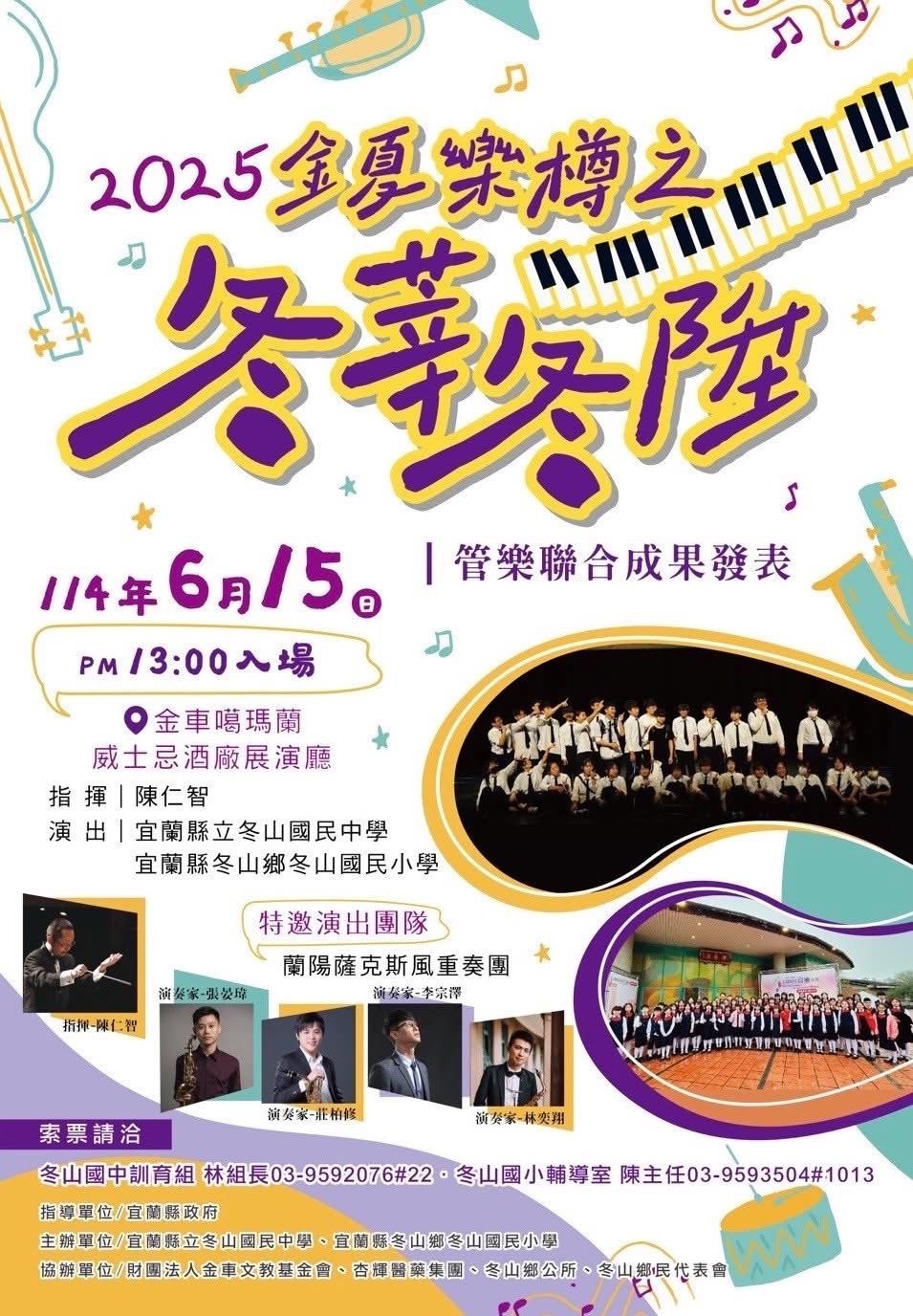
Year end concert that I got to play in with my students!
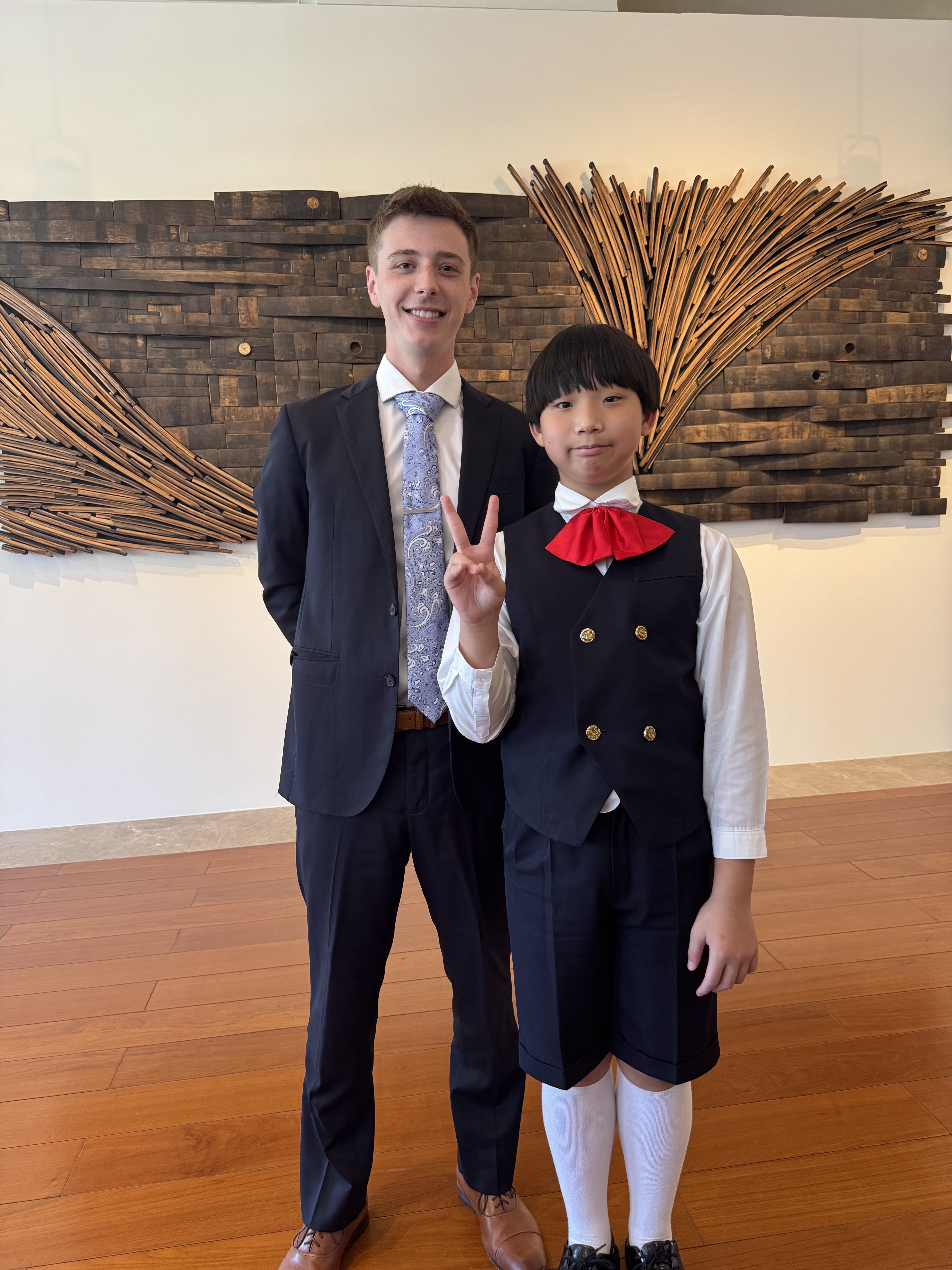
Kavalan Distillery Performance Venue, Yuanshan Township. Me and Craig and Craig’s bangs.
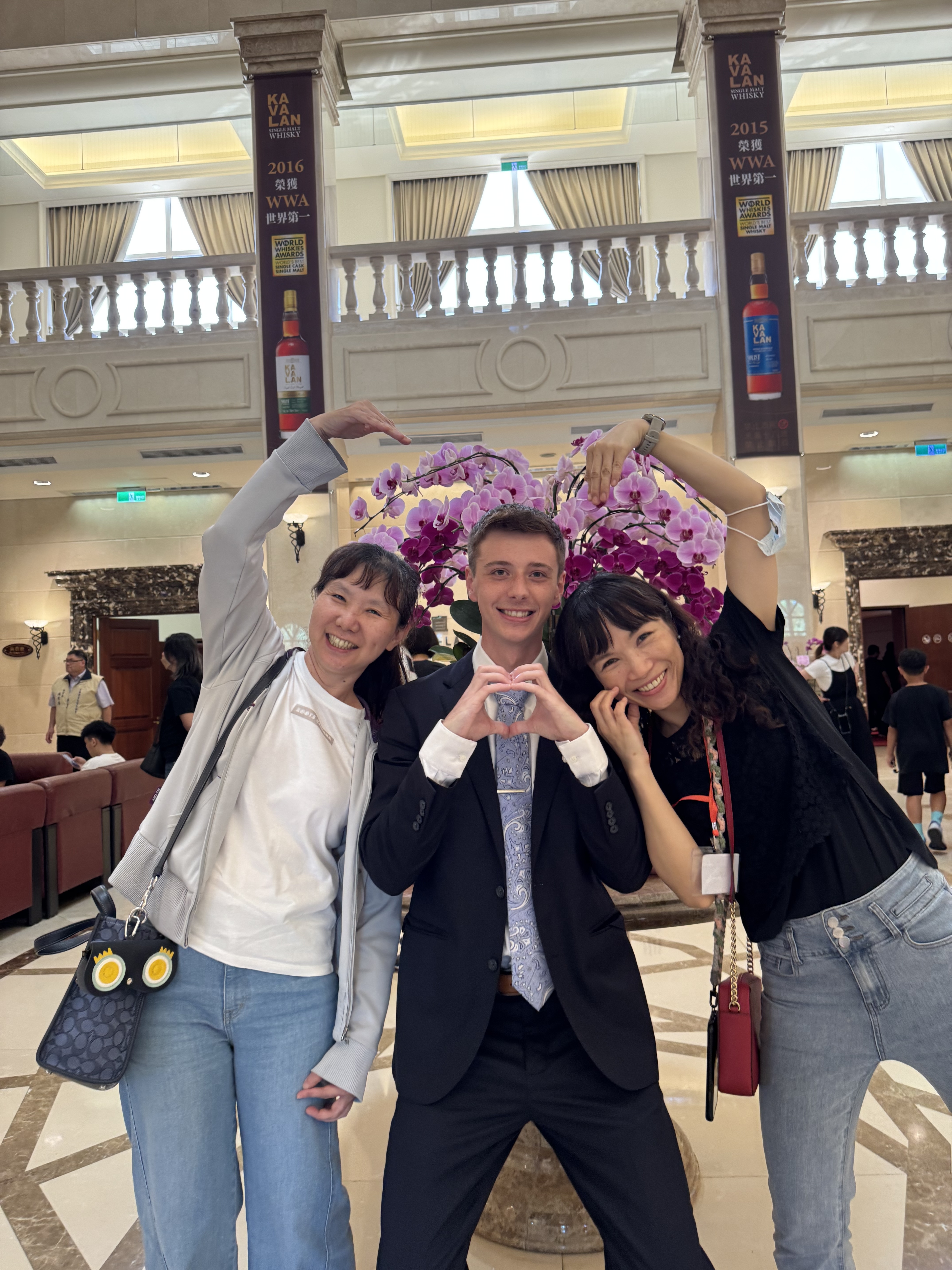
Kavalan Distillery Performance Venue, Yuanshan Township. Posing with my moms for the year.
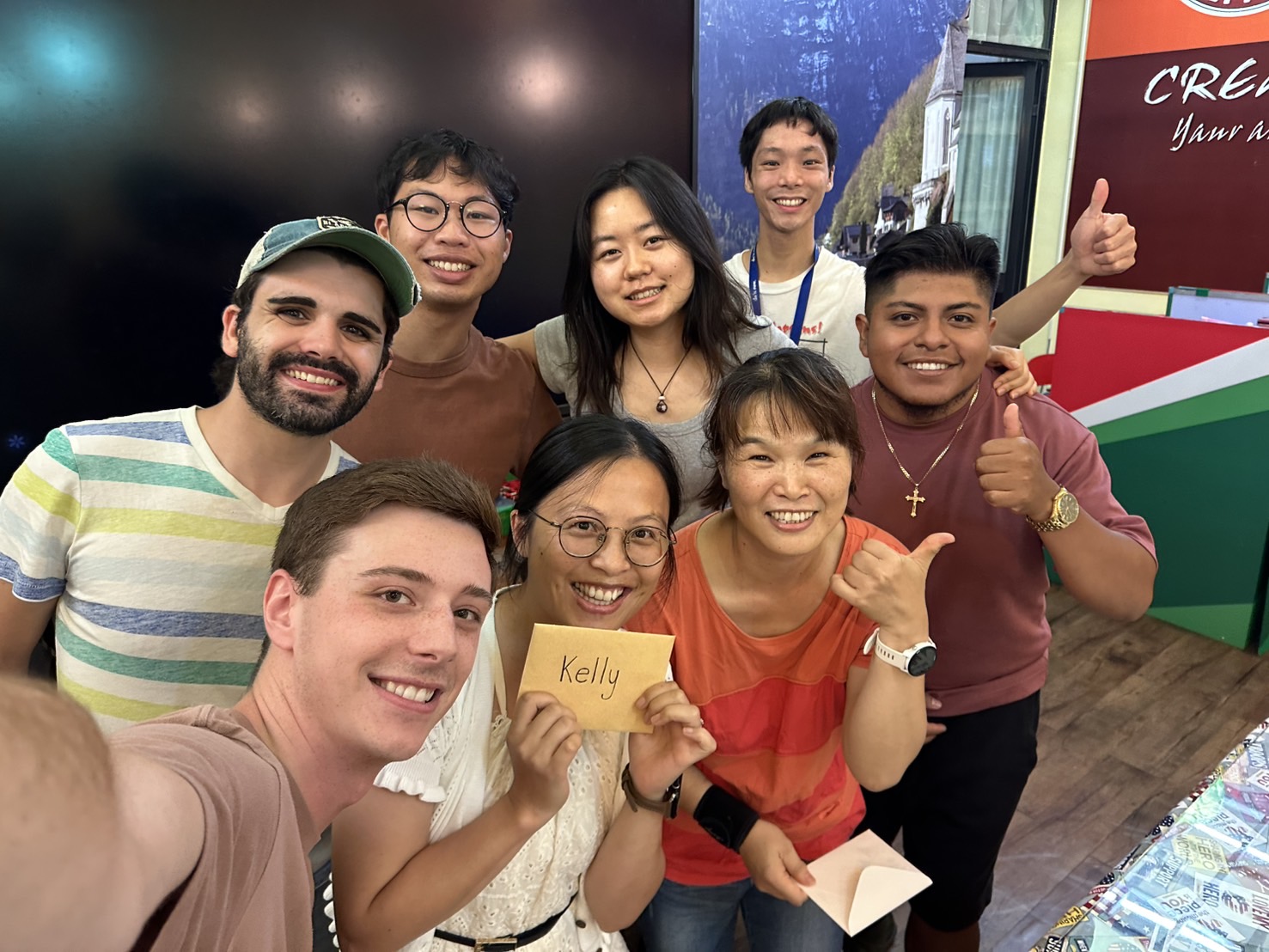
EV. English Village squad and coordinators after our last class of the year.
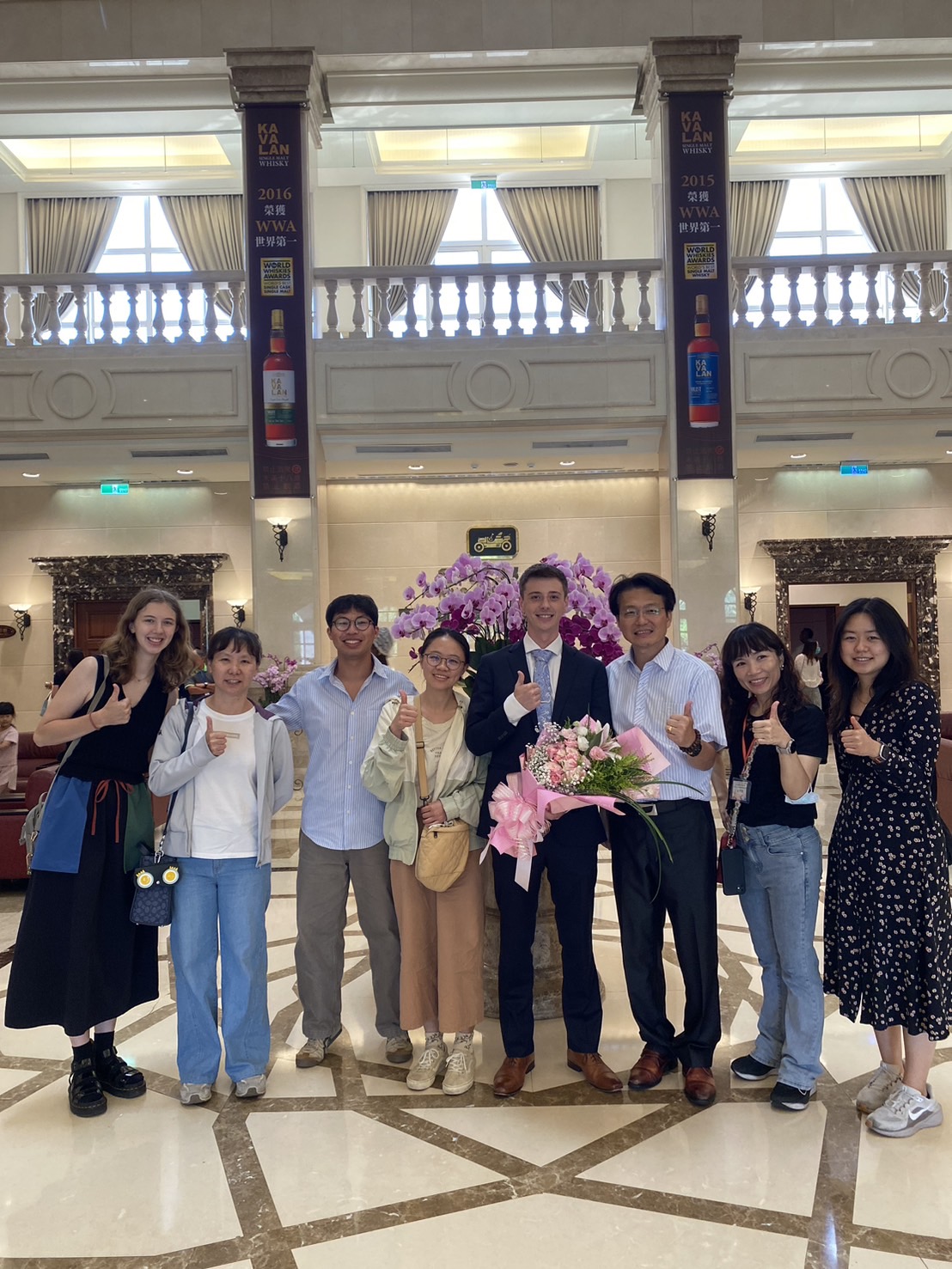
Kavalan Distillery Performance Venue, Yuanshan Township. Thanks for coming guys!
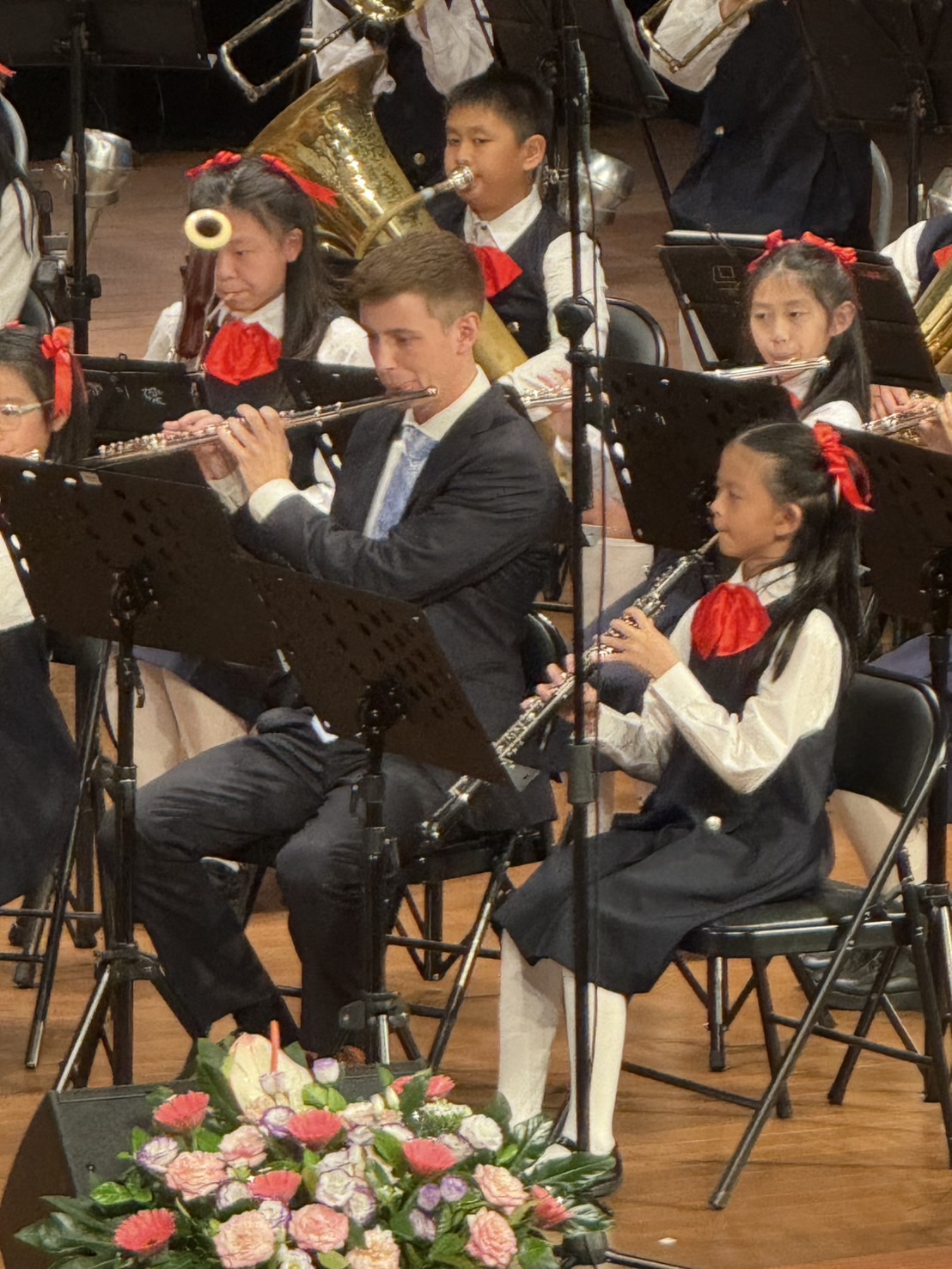
Kavalan Distillery Performance Venue, Yuanshan Township. Action shot.
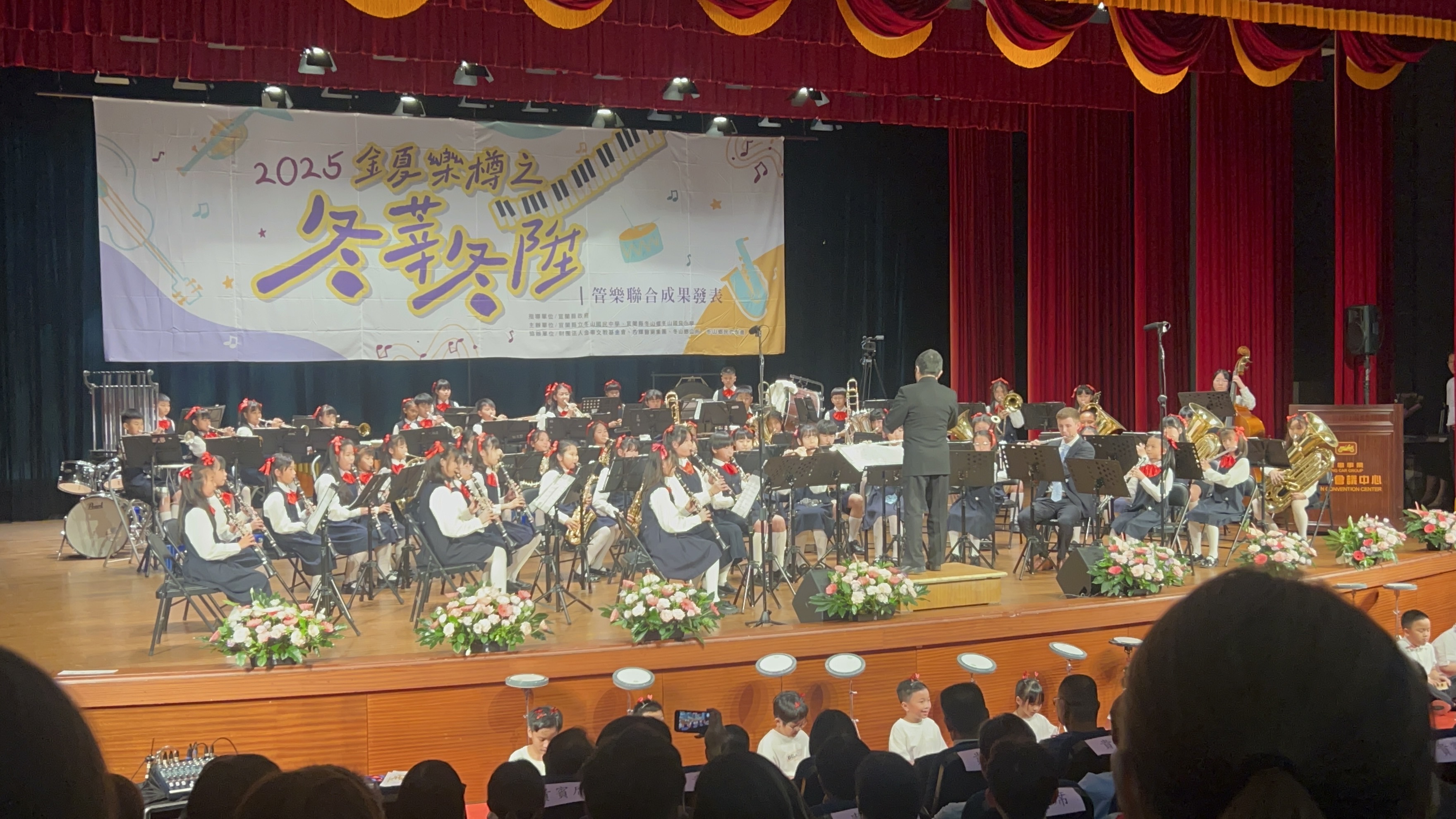
Kavalan Distillery Performance Venue, Yuanshan Township. Don’t let the costumes distract you — these kids play with serious maturity and confidence.
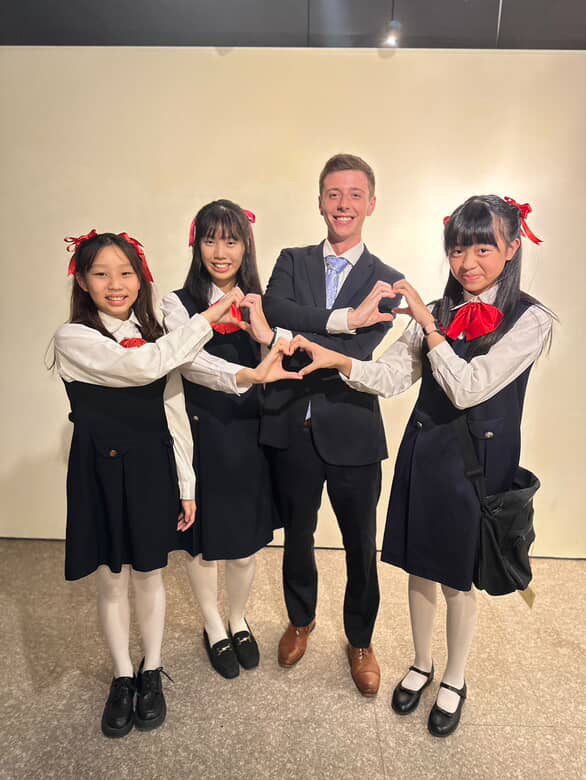
Kavalan Distillery Performance Venue, Yuanshan Township. Post concert photo shoot!
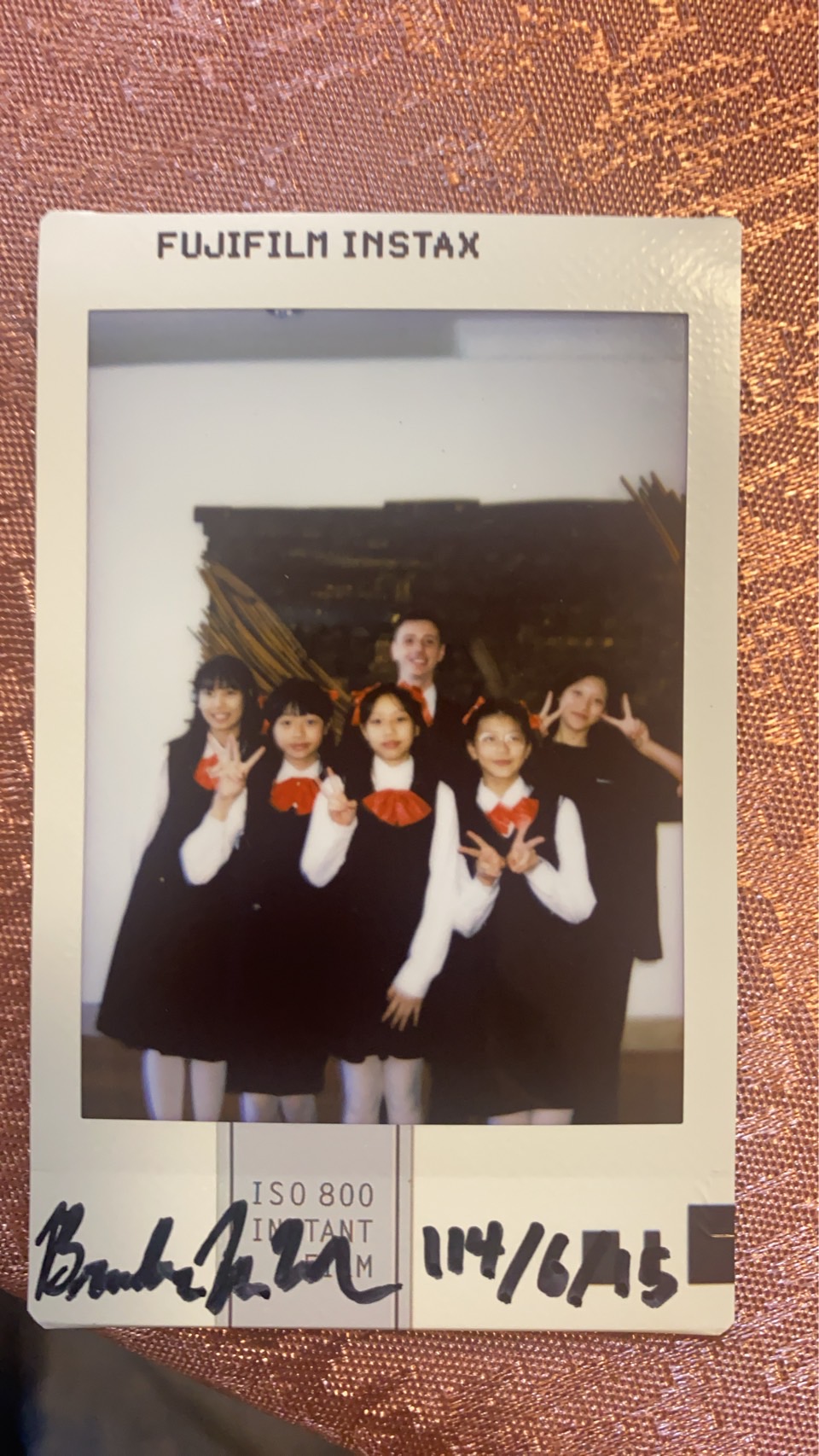
Kavalan Distillery Performance Venue, Yuanshan Township. Did it even happen if no one took a polaroid?
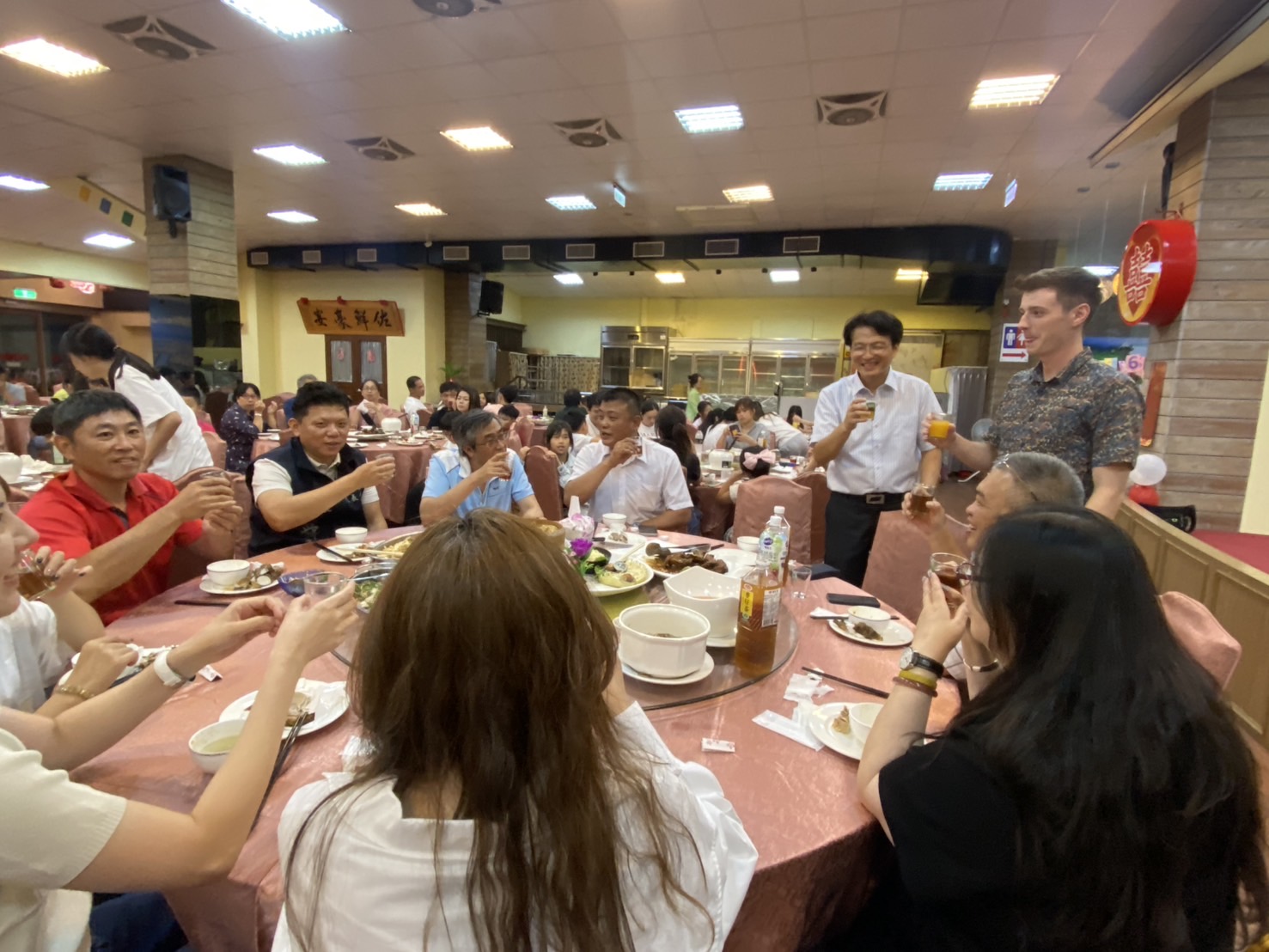
Zuoyan Banquet Hall, Dongshan Township. Principal introducing me to the school board and asking me to give a toast. If this had happened at the beginning of the year I would have turned white as a ghost, but by this point at the end of the year I knew exactly how few words I needed to say to get some applause, take a ceremonial sip, and then sit back down at my table.
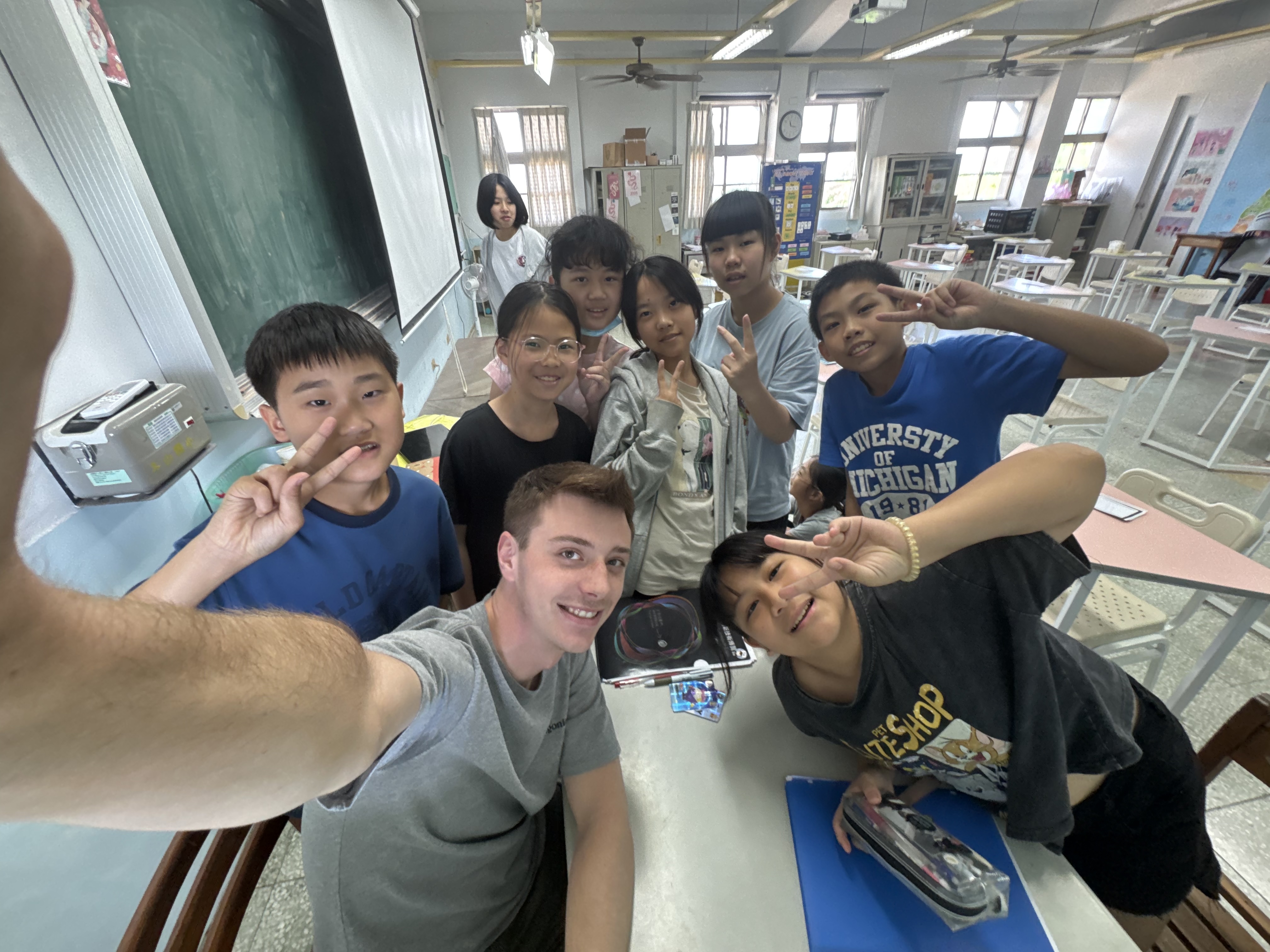
Selfie with fifth graders!
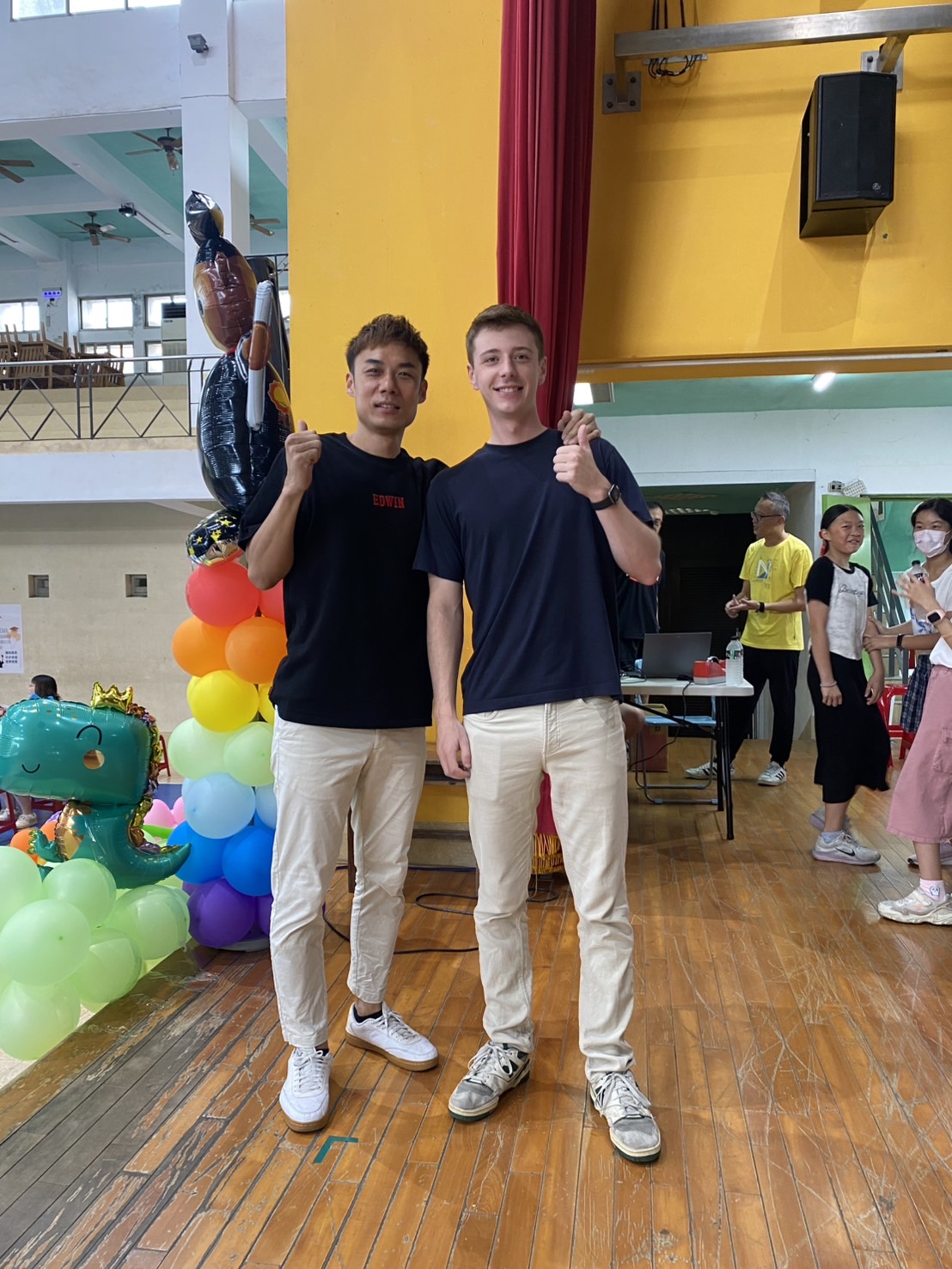
Selfie with our school's dean of student affairs at graduation rehearsal.
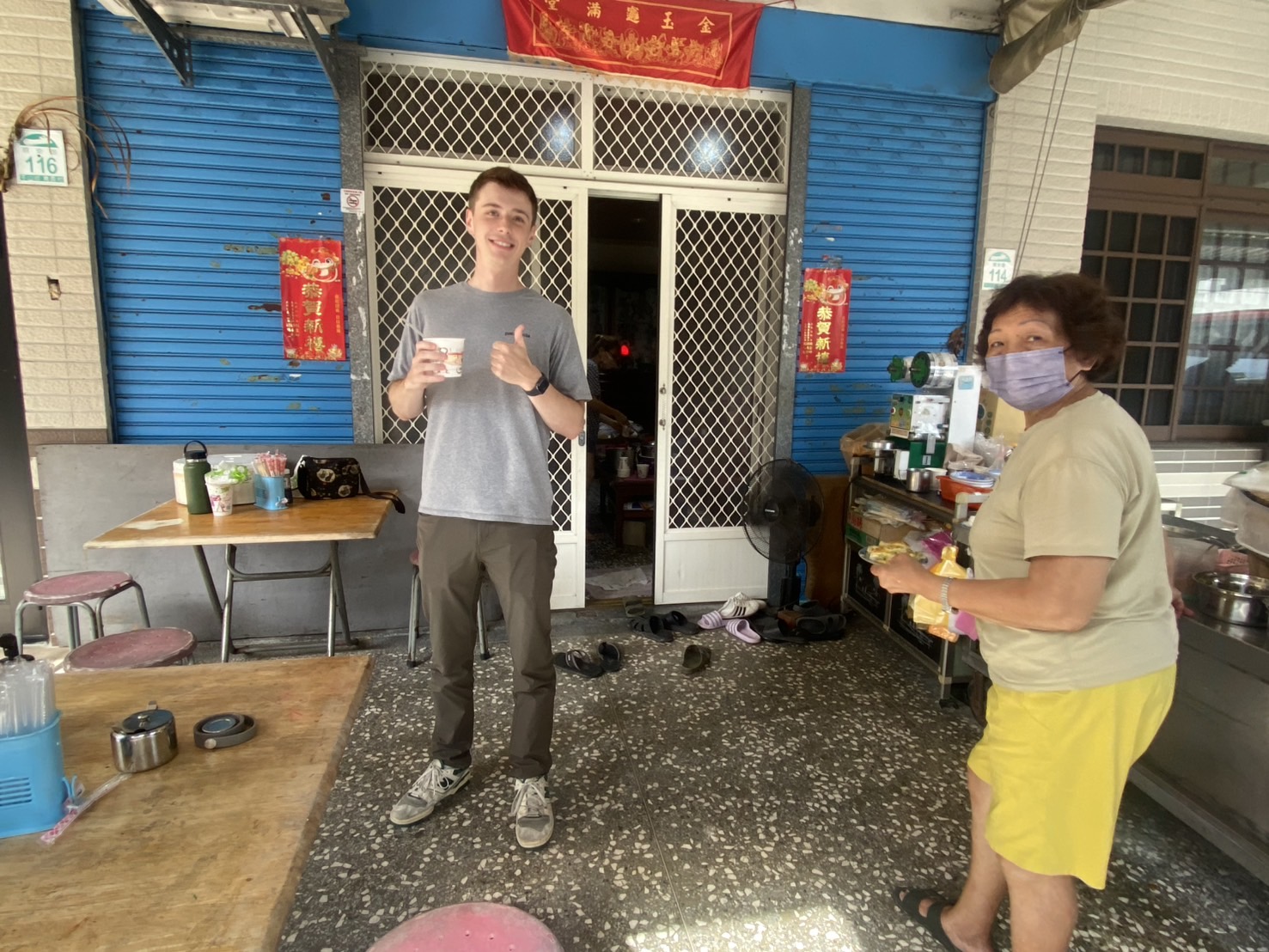
Ah Qin Breakfast, Dongshan Township. Breakfast at one of my sixth-graders’ family’s breakfast place, which is also their front porch.

(Left to right) Amy, Sherry, May.
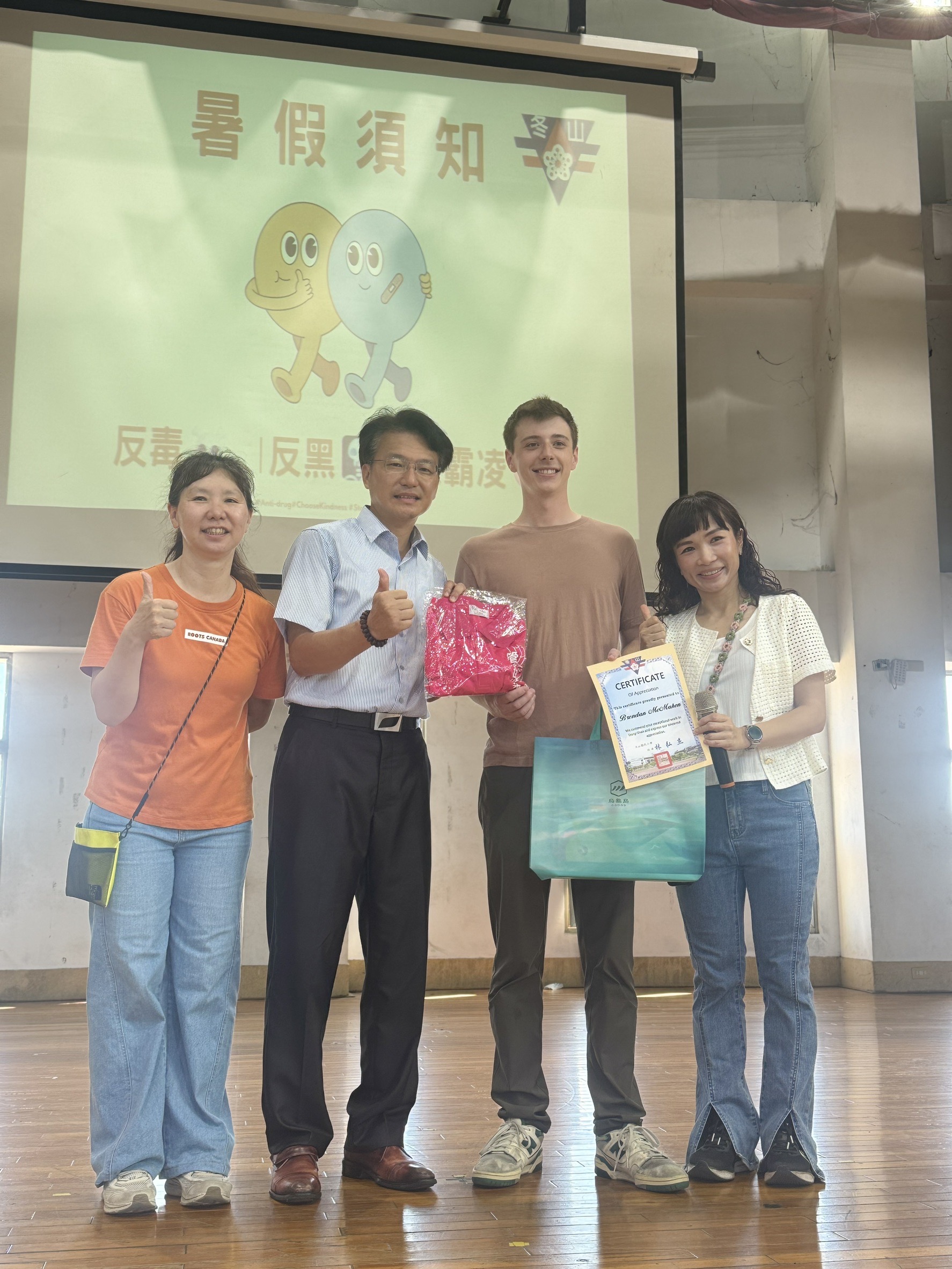
Tina, Jennifer, principal, and me.





















































































































































































































